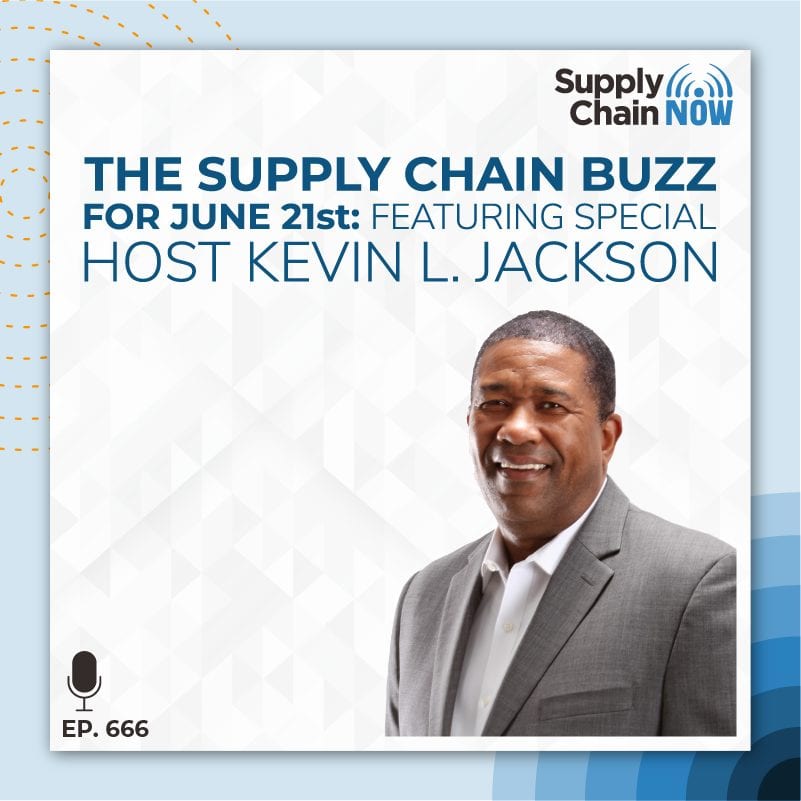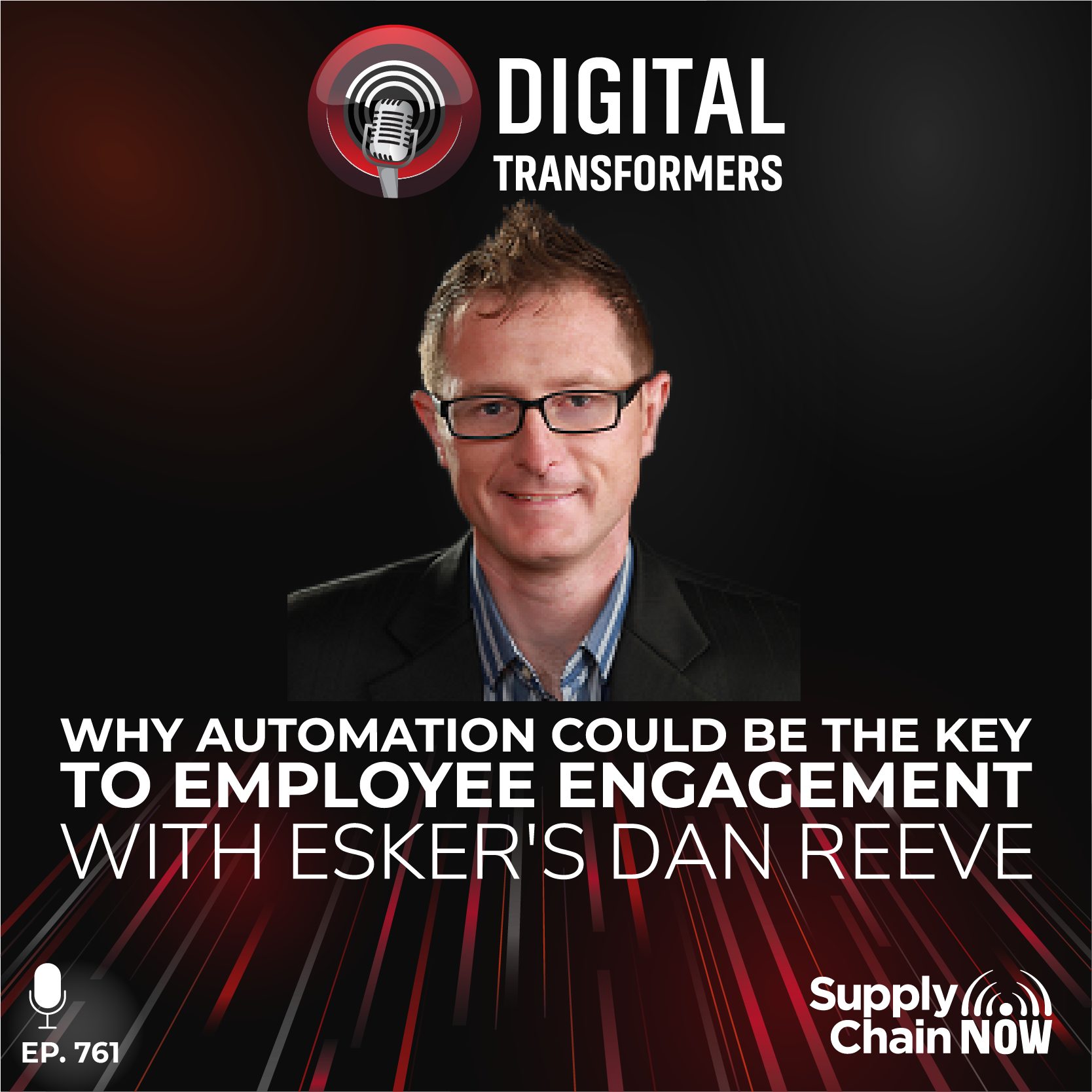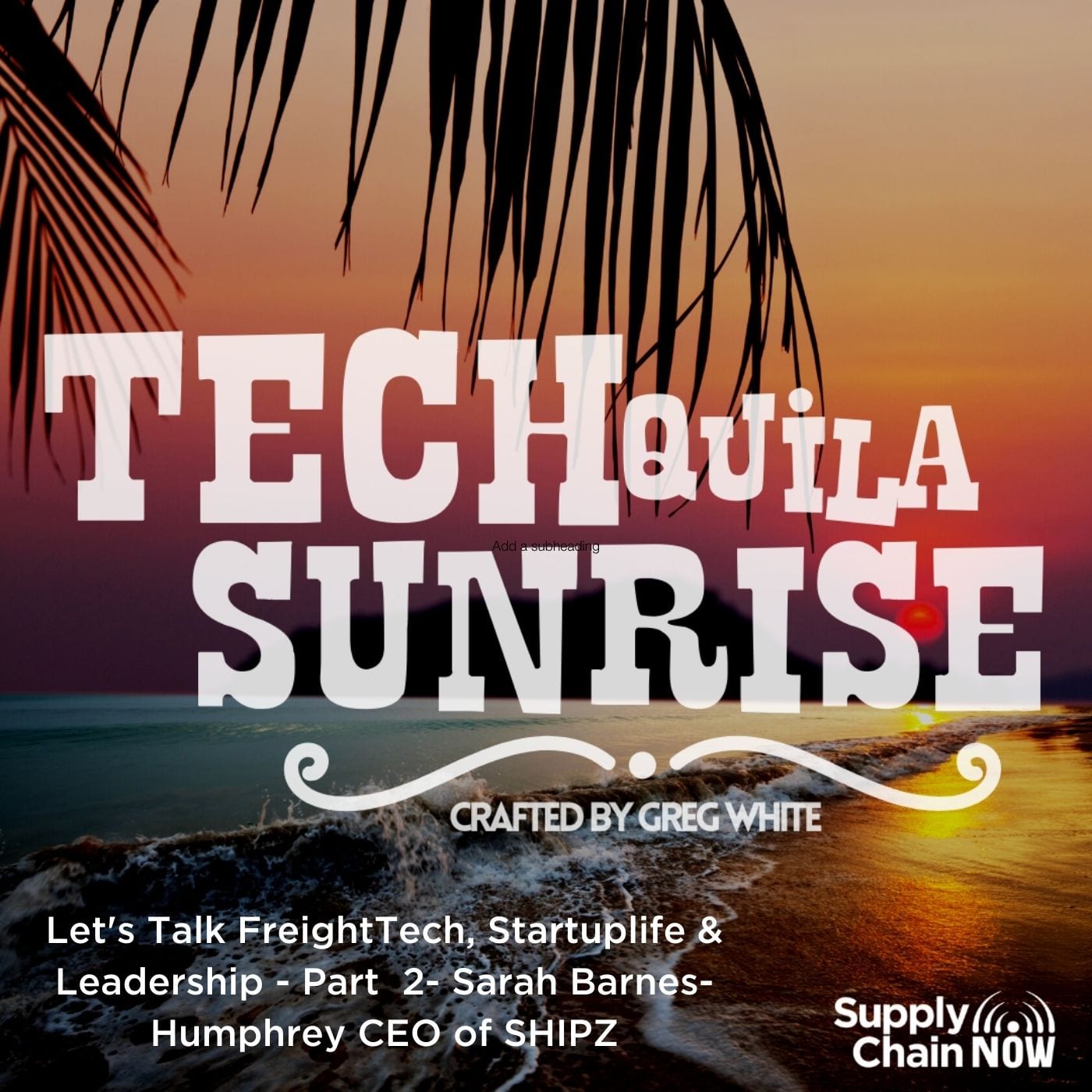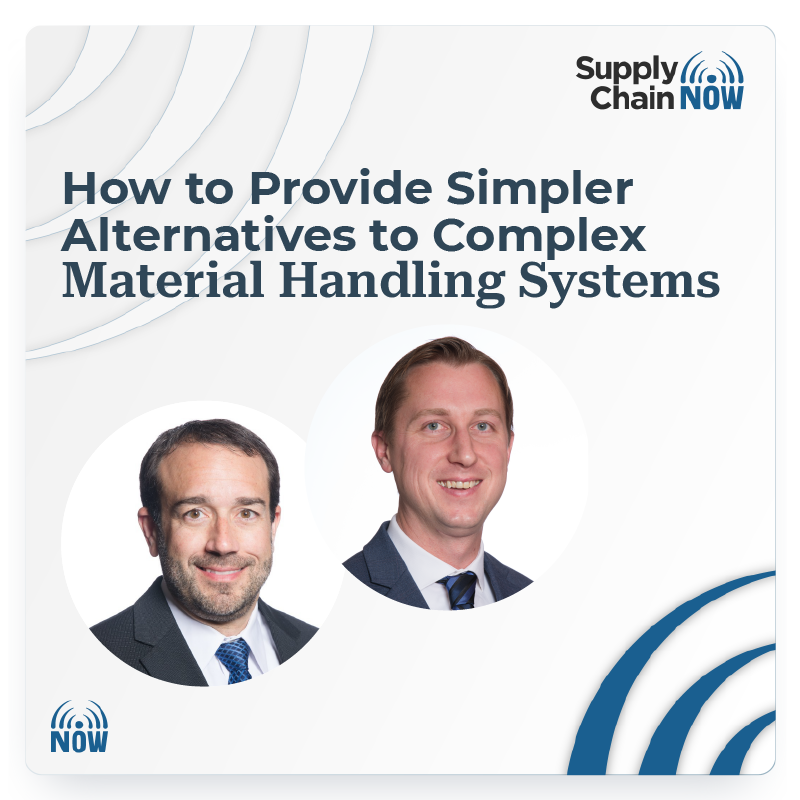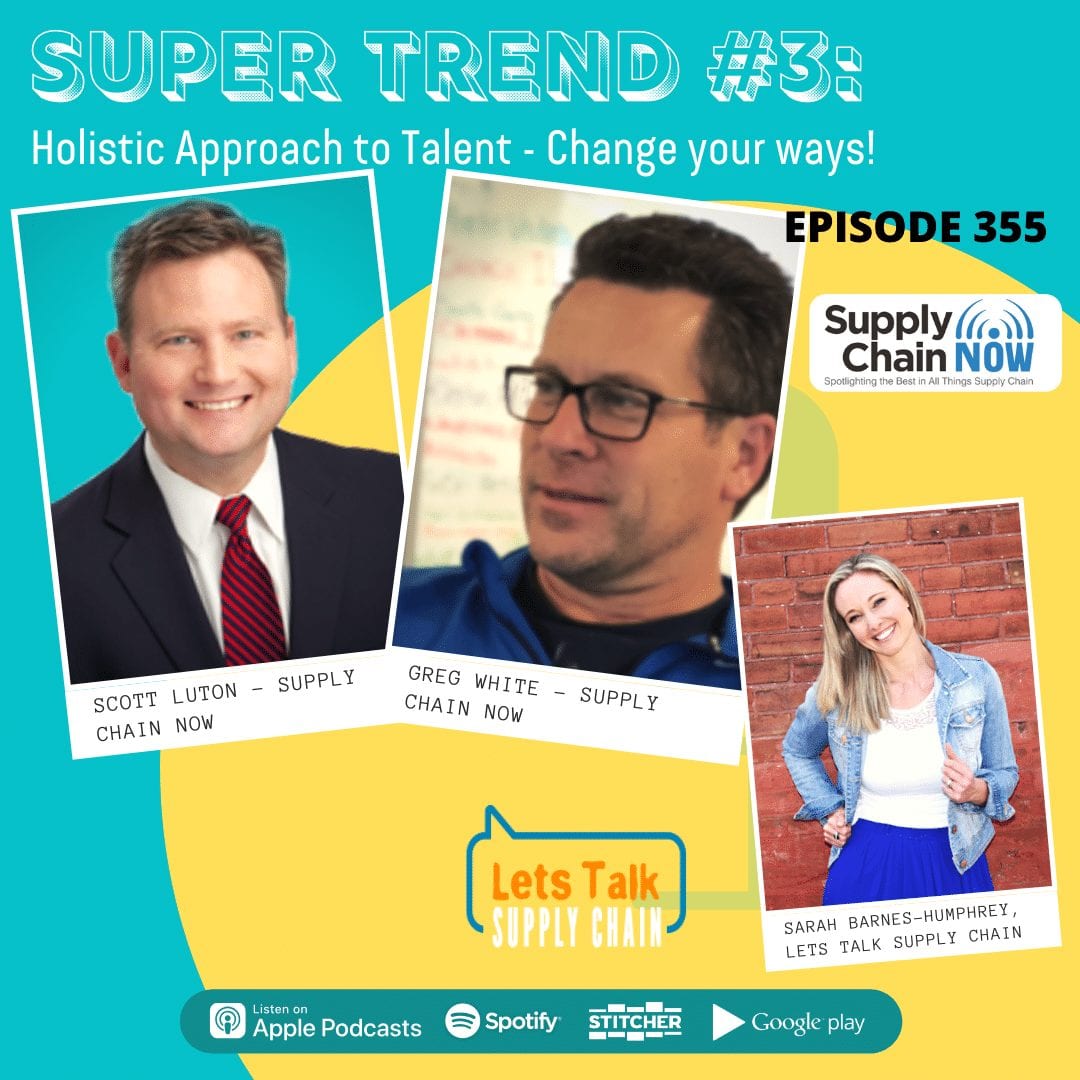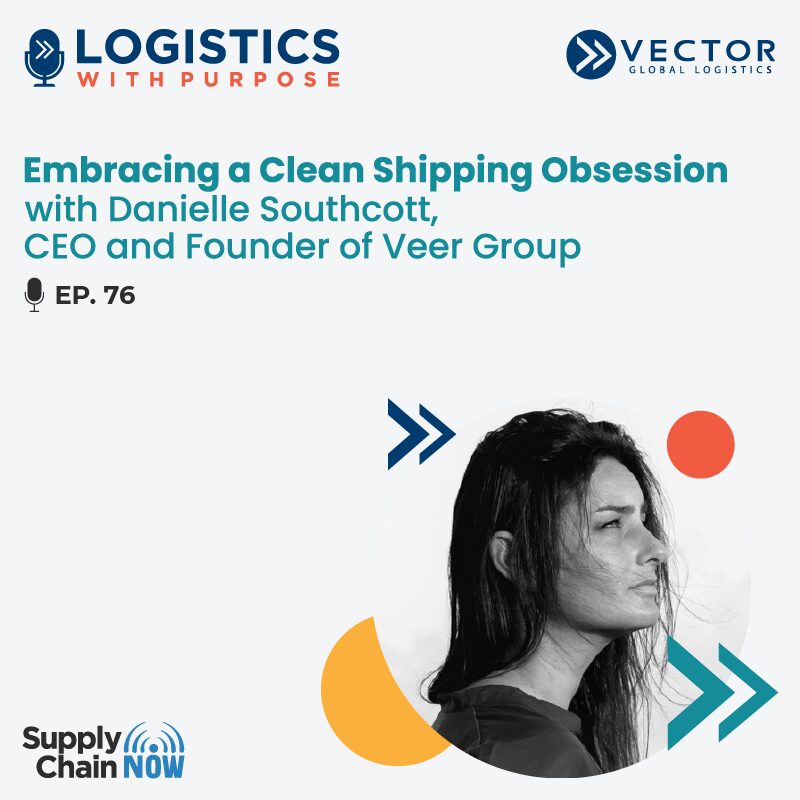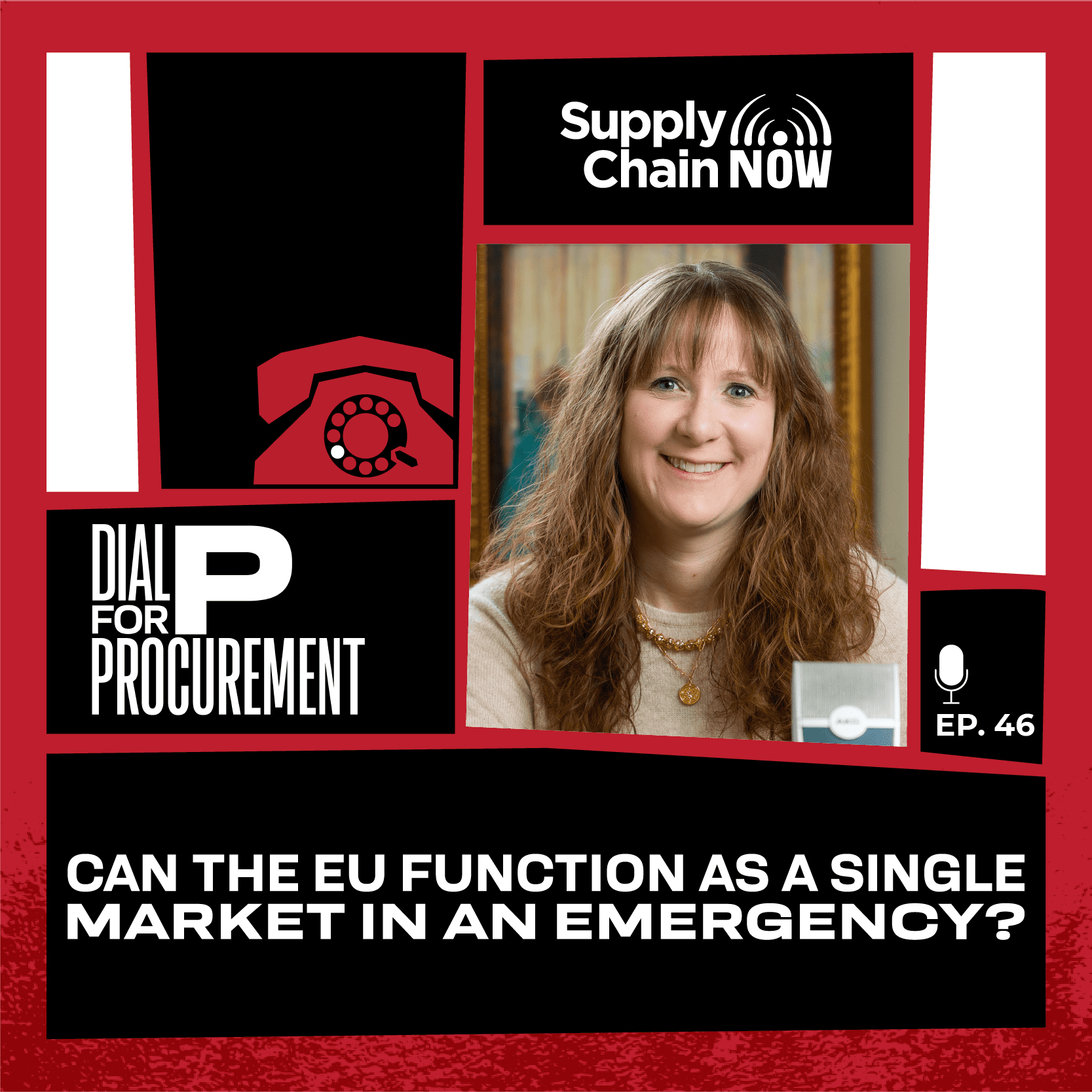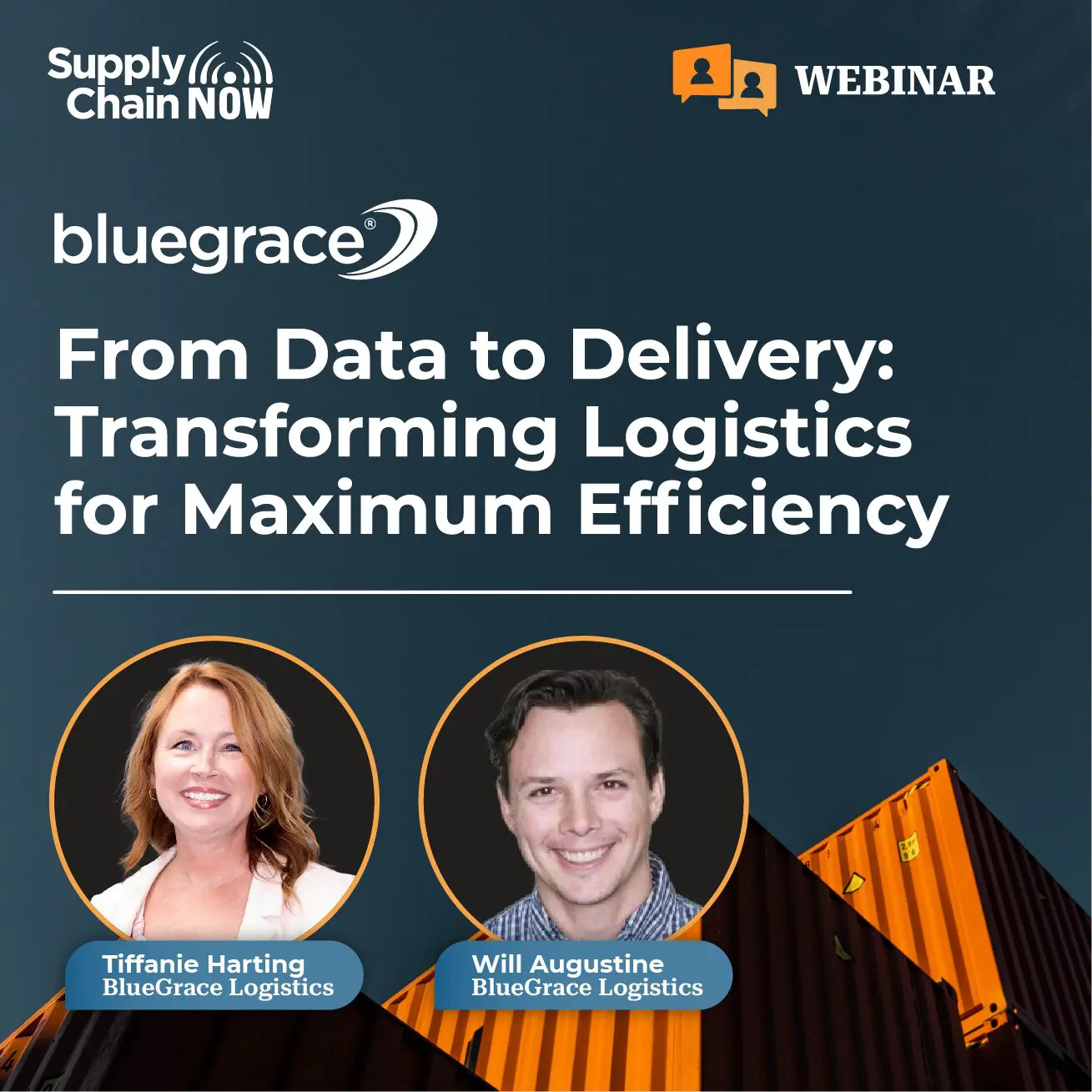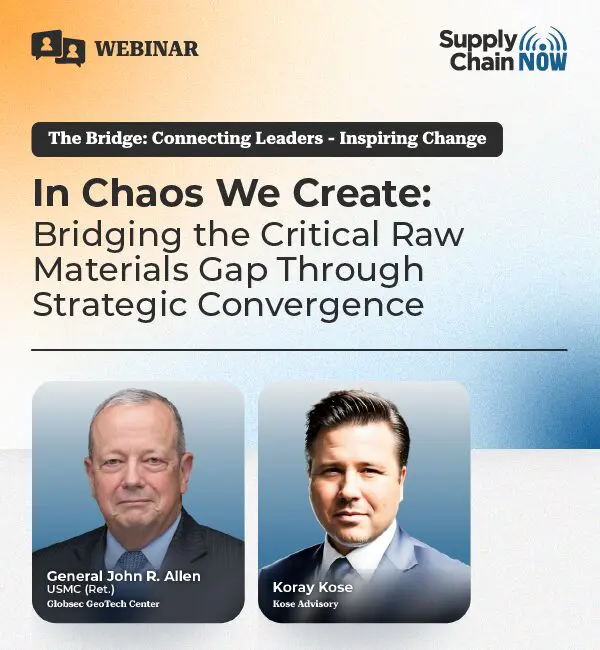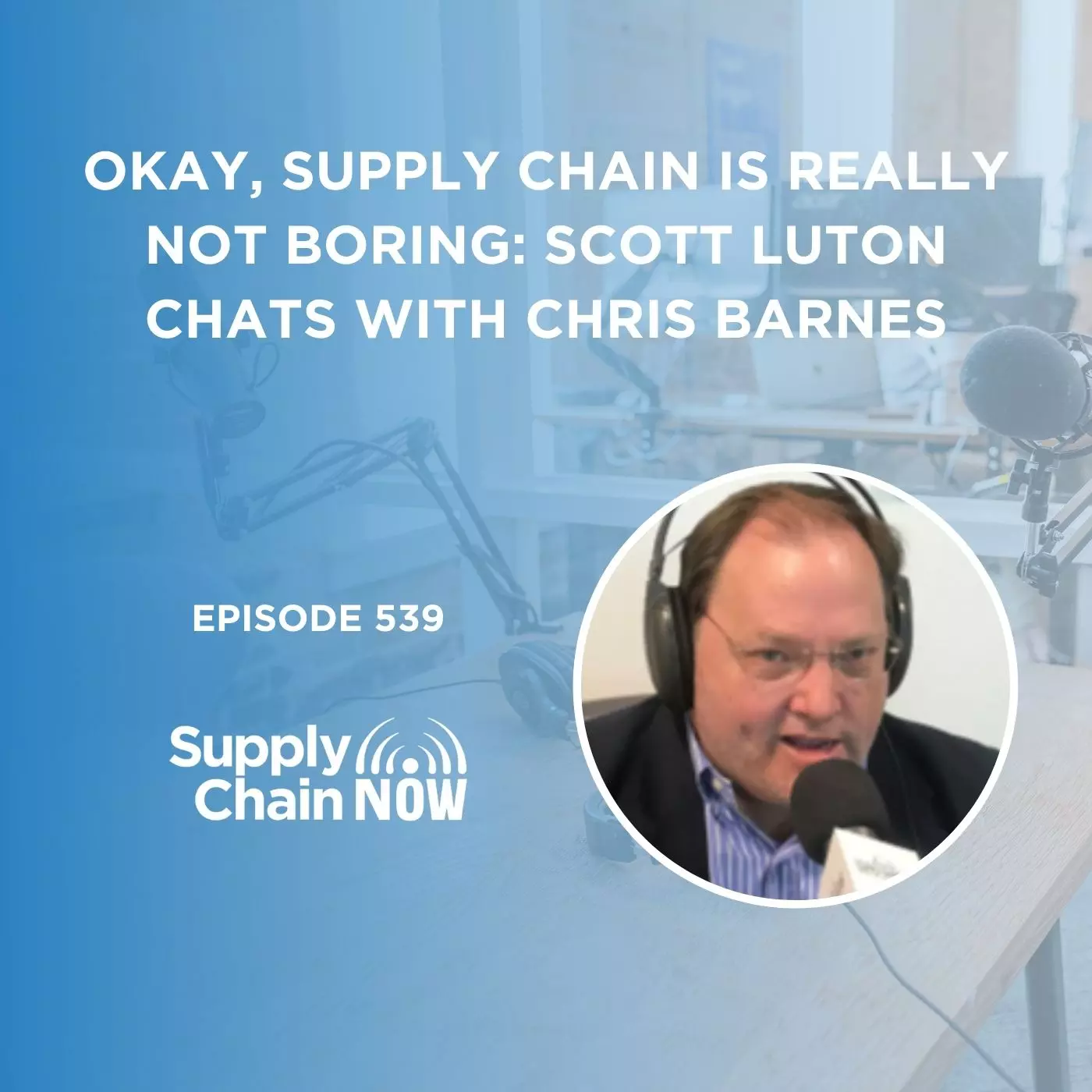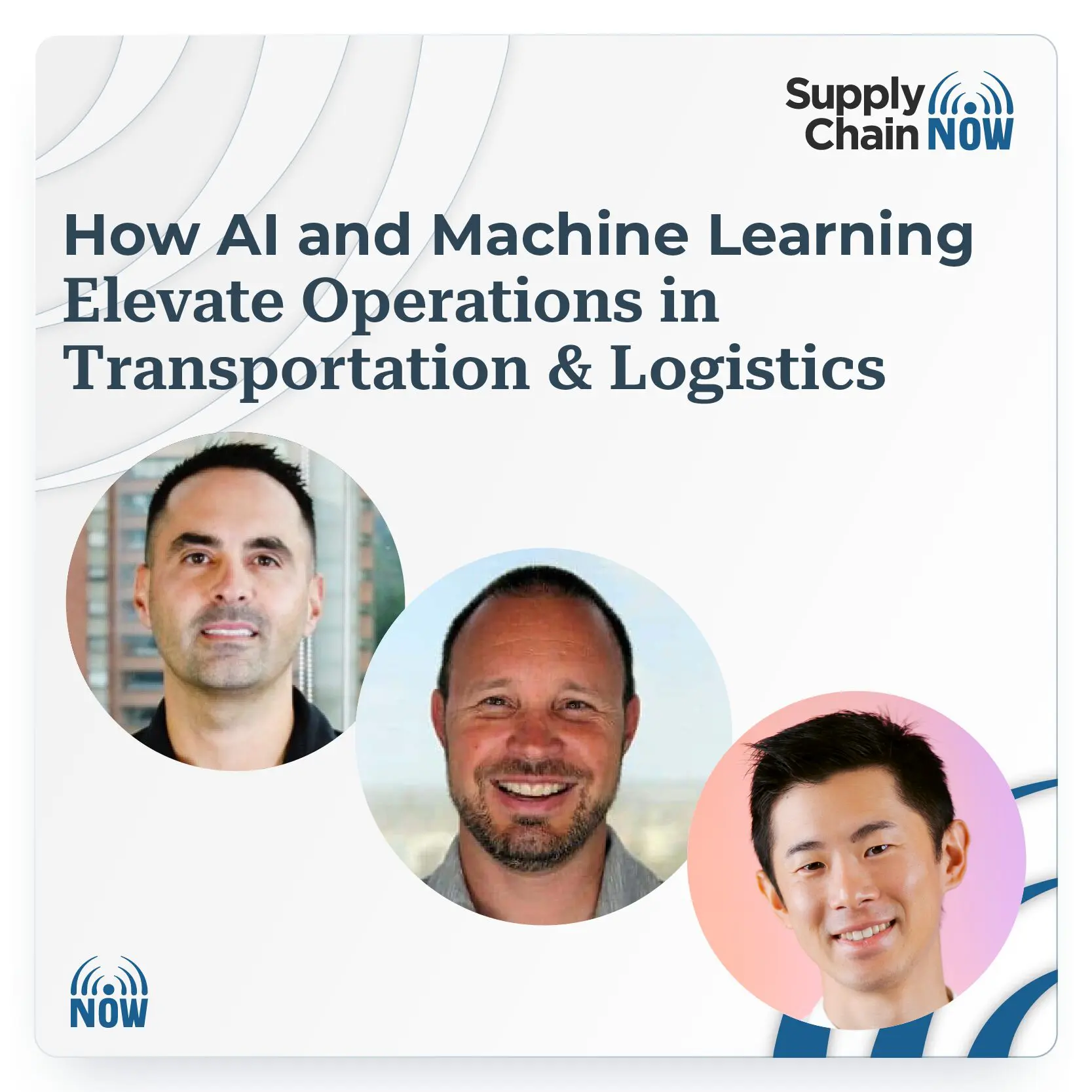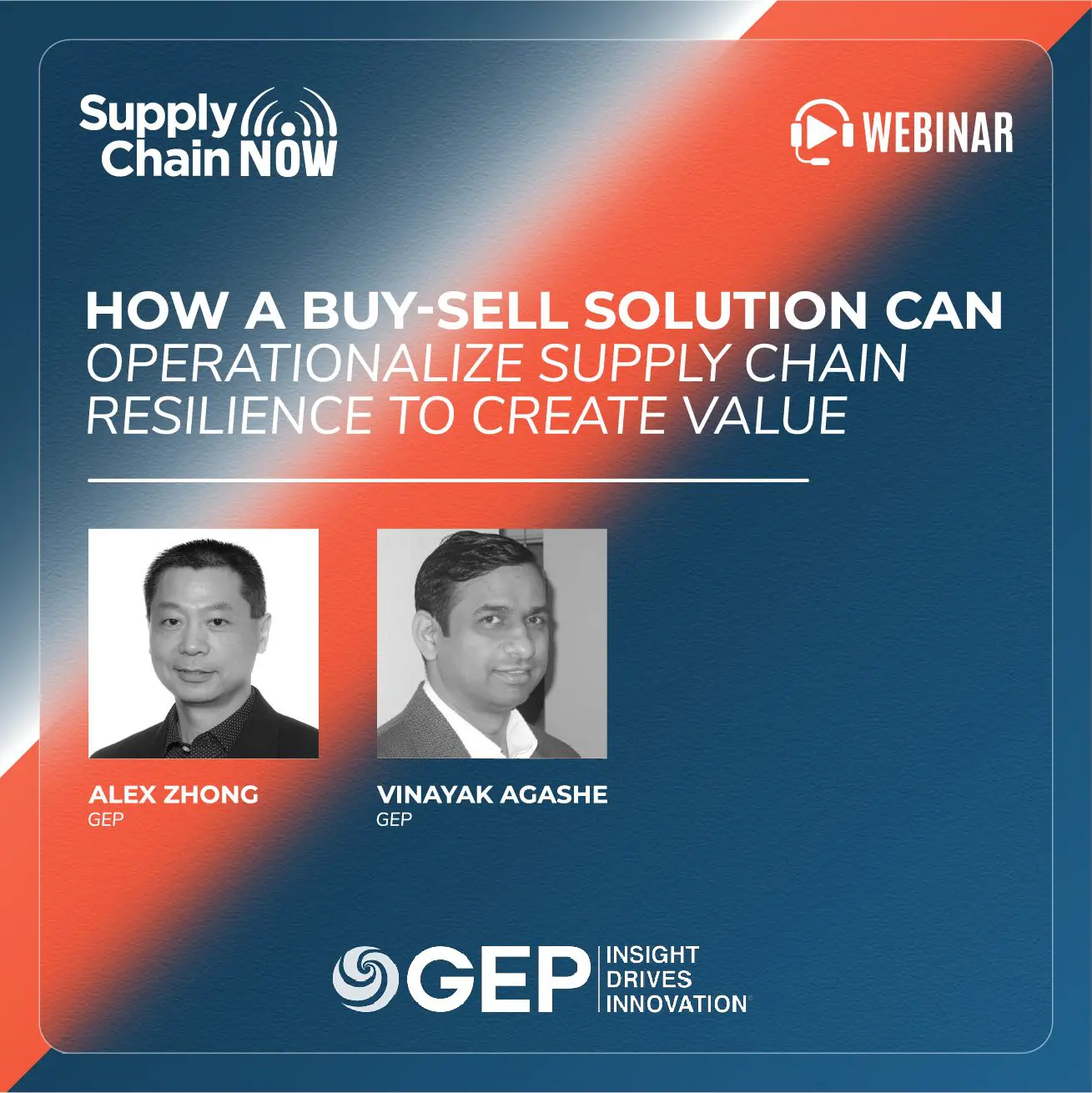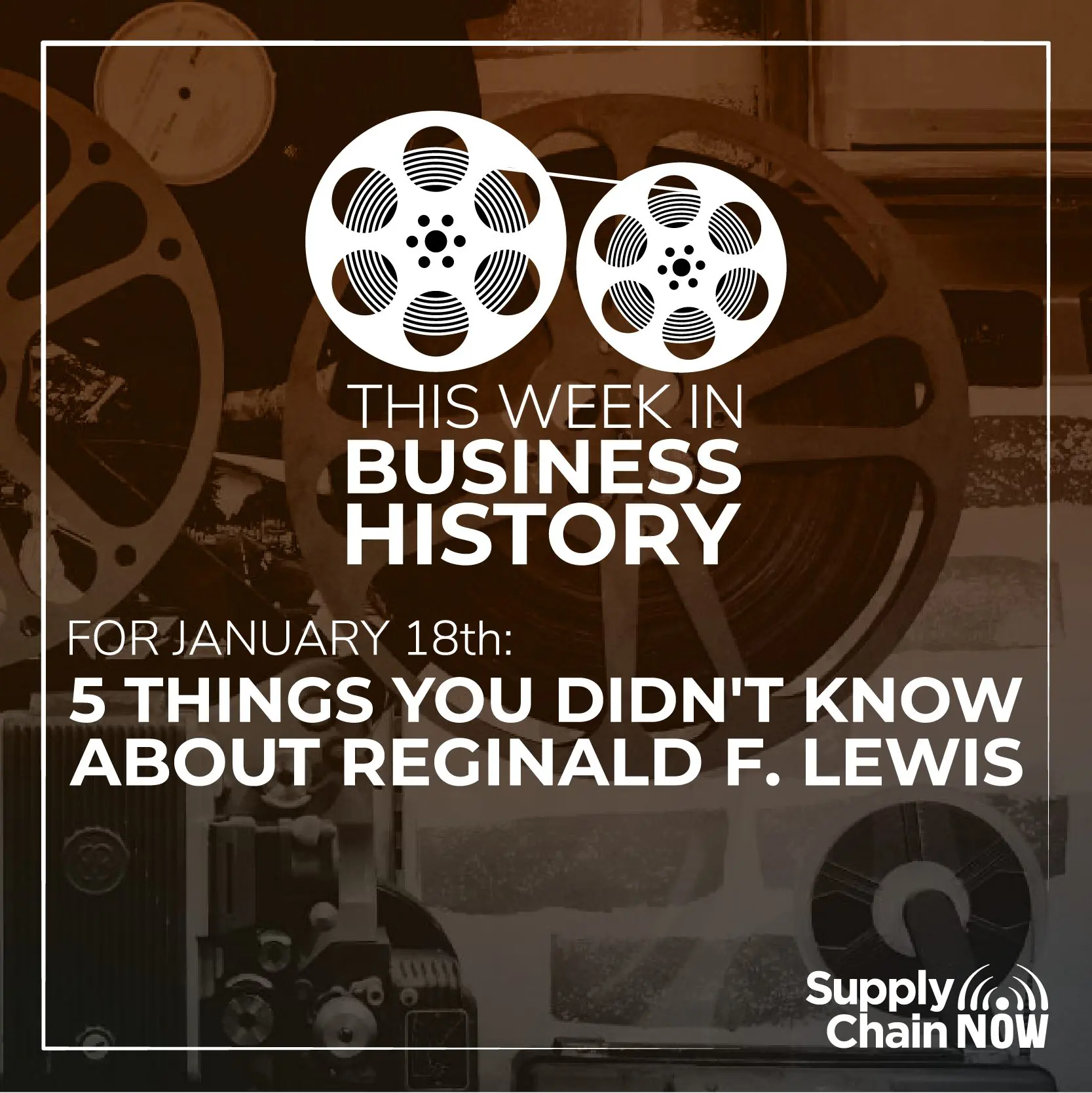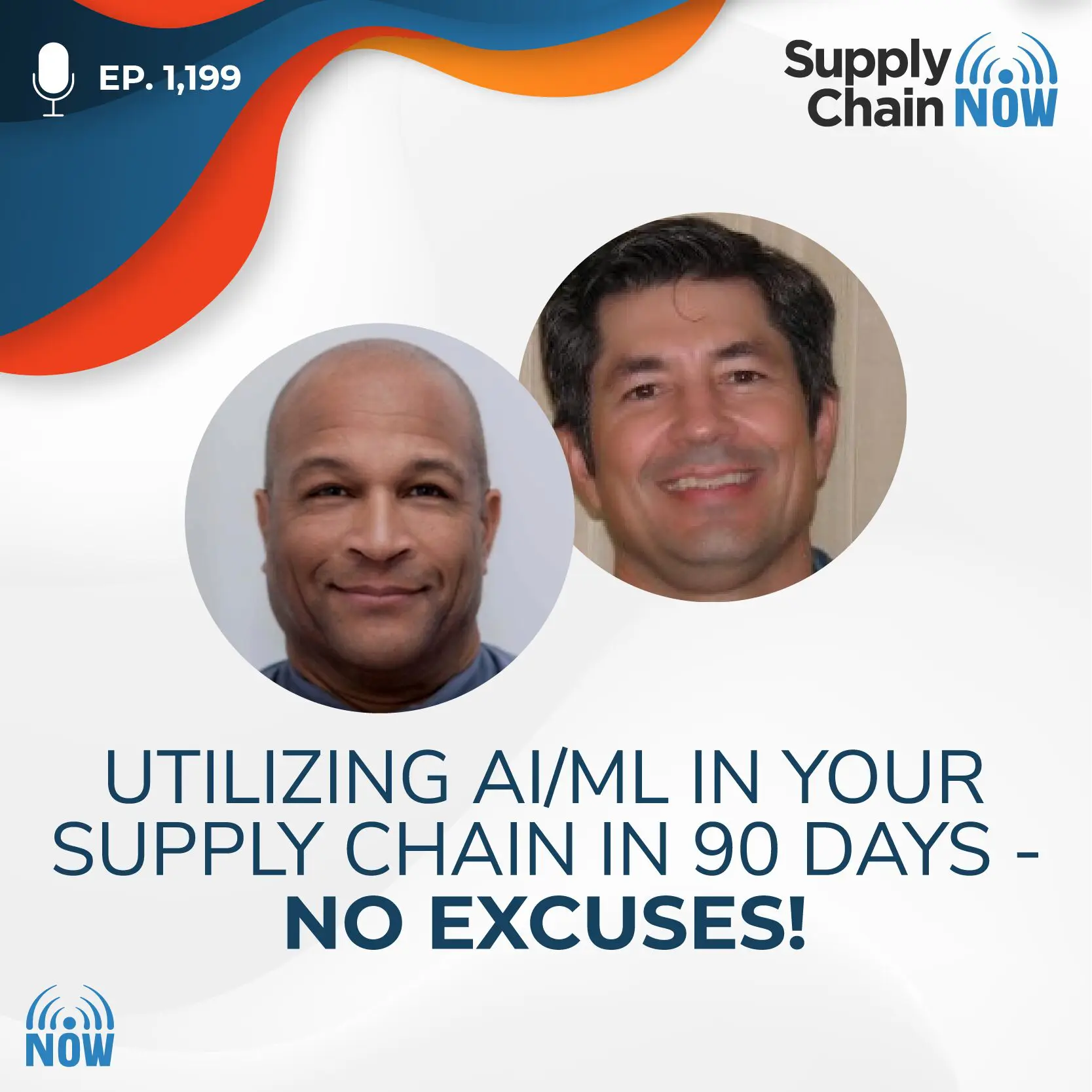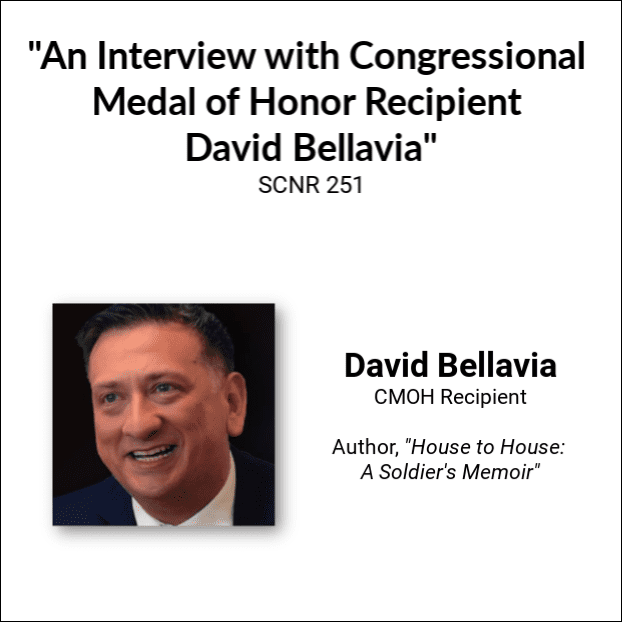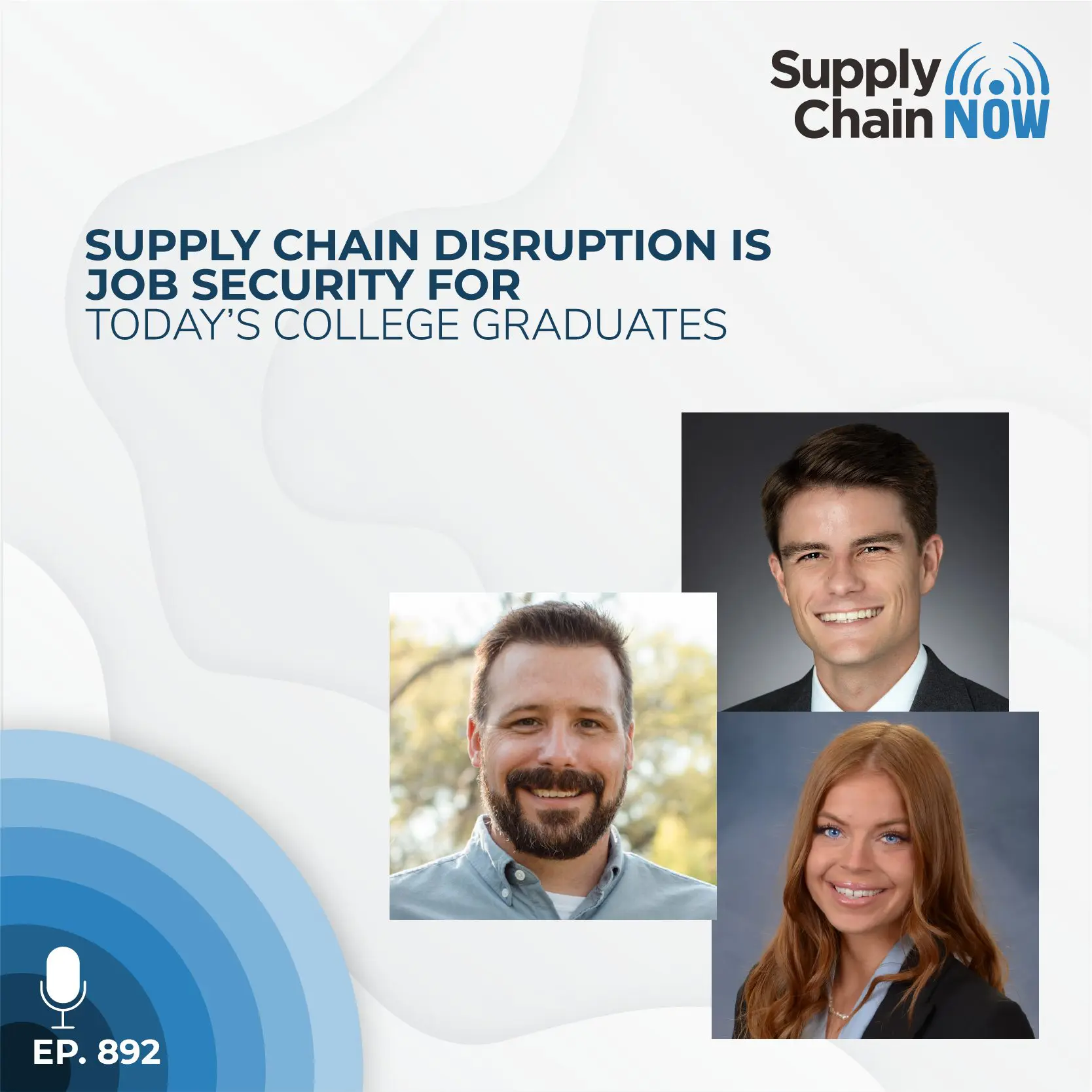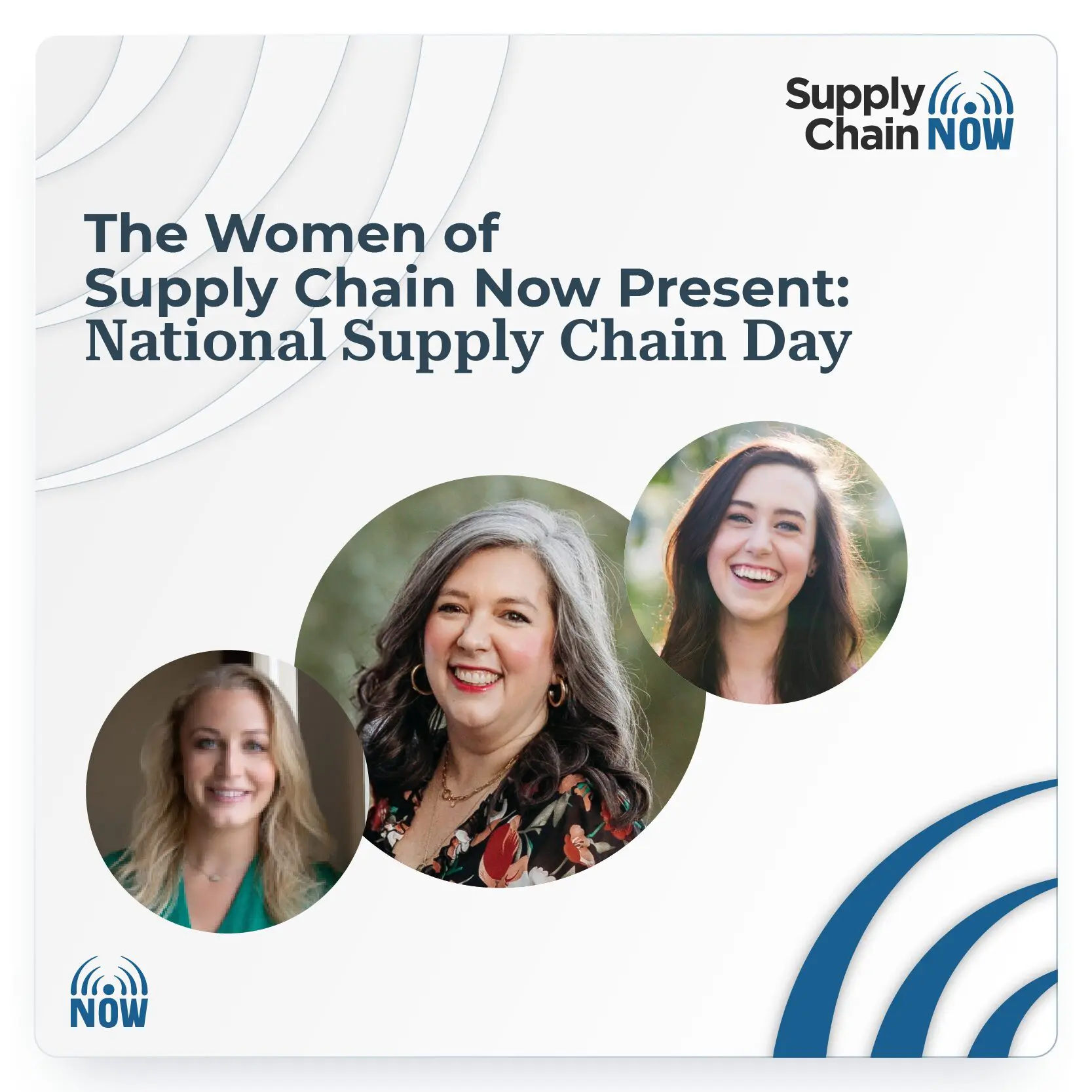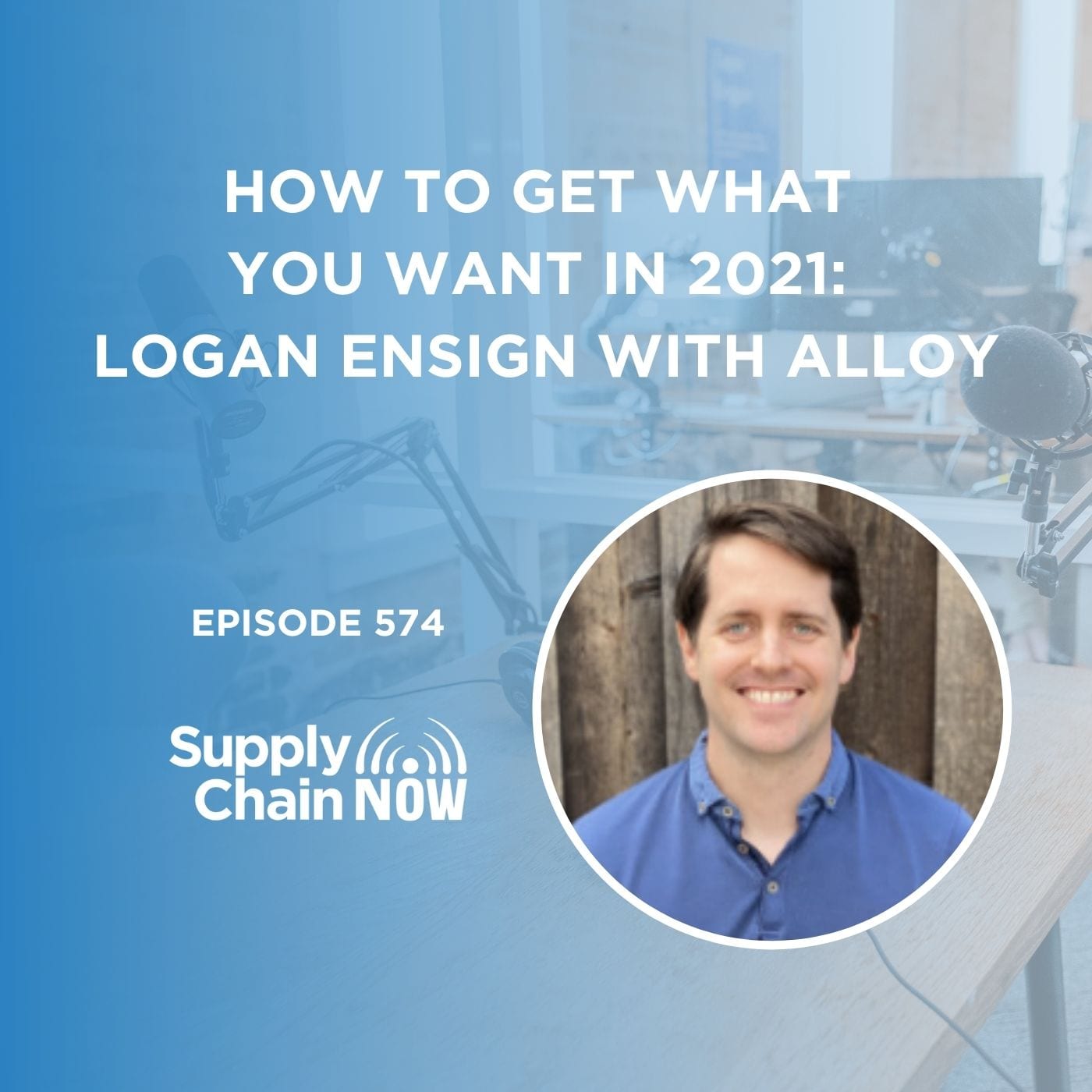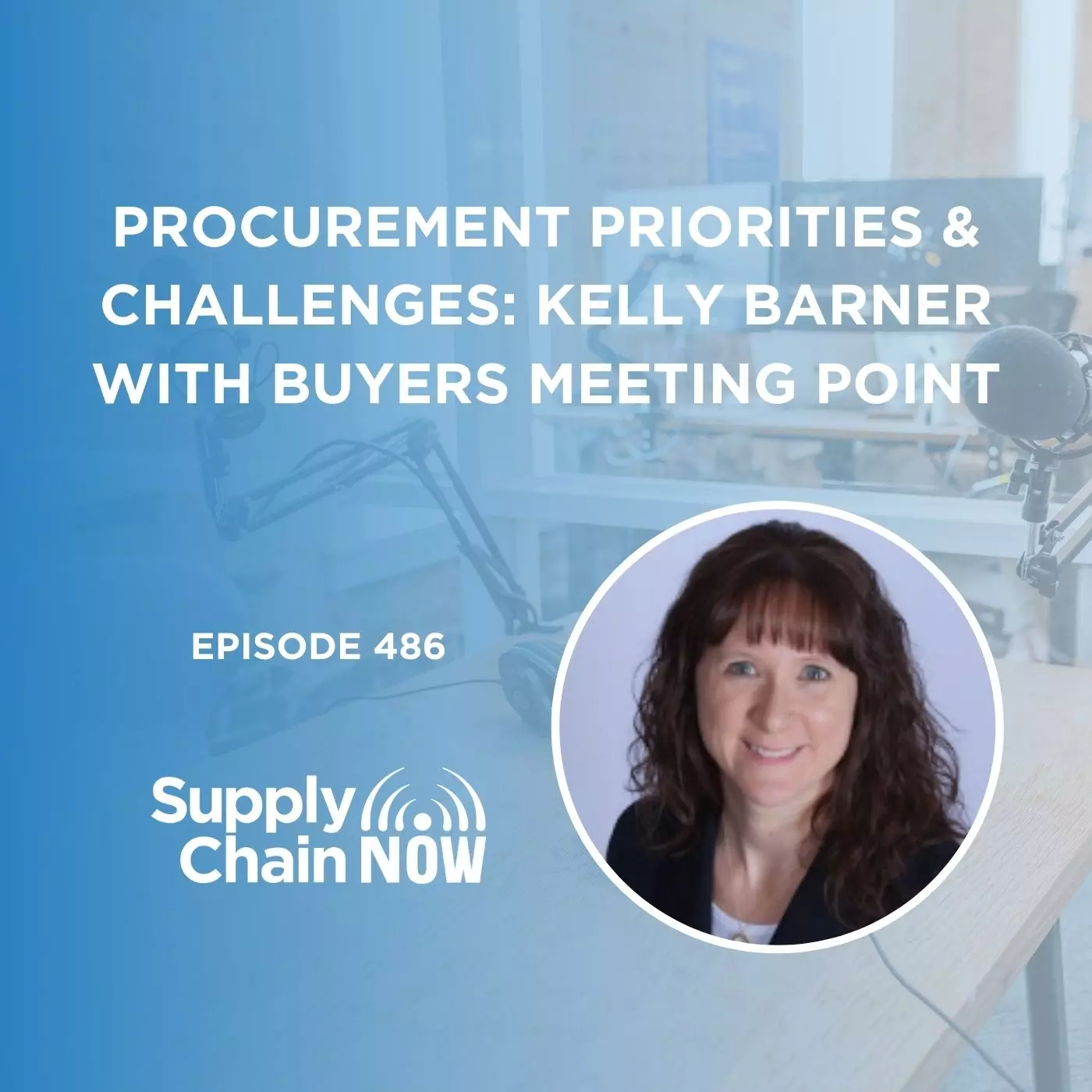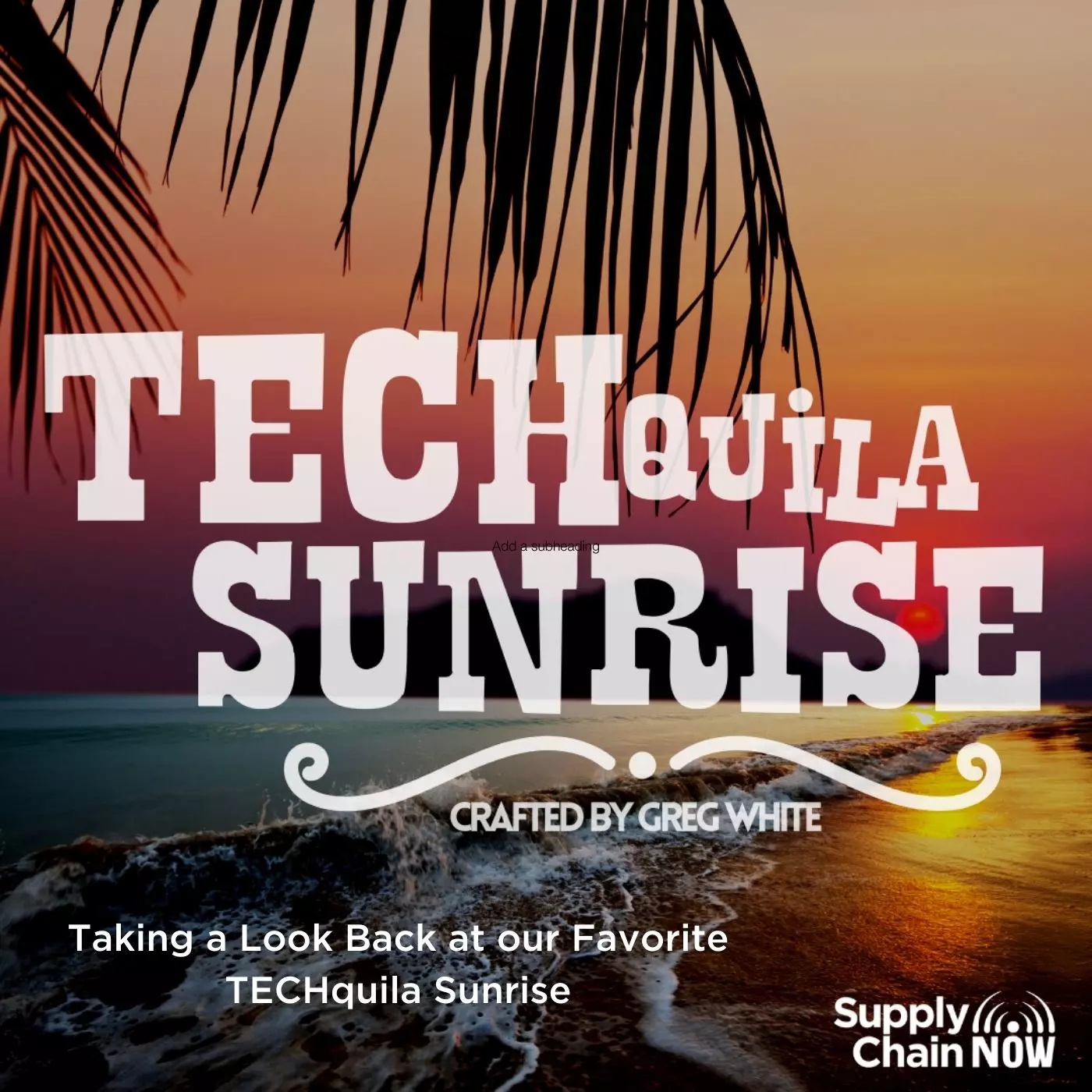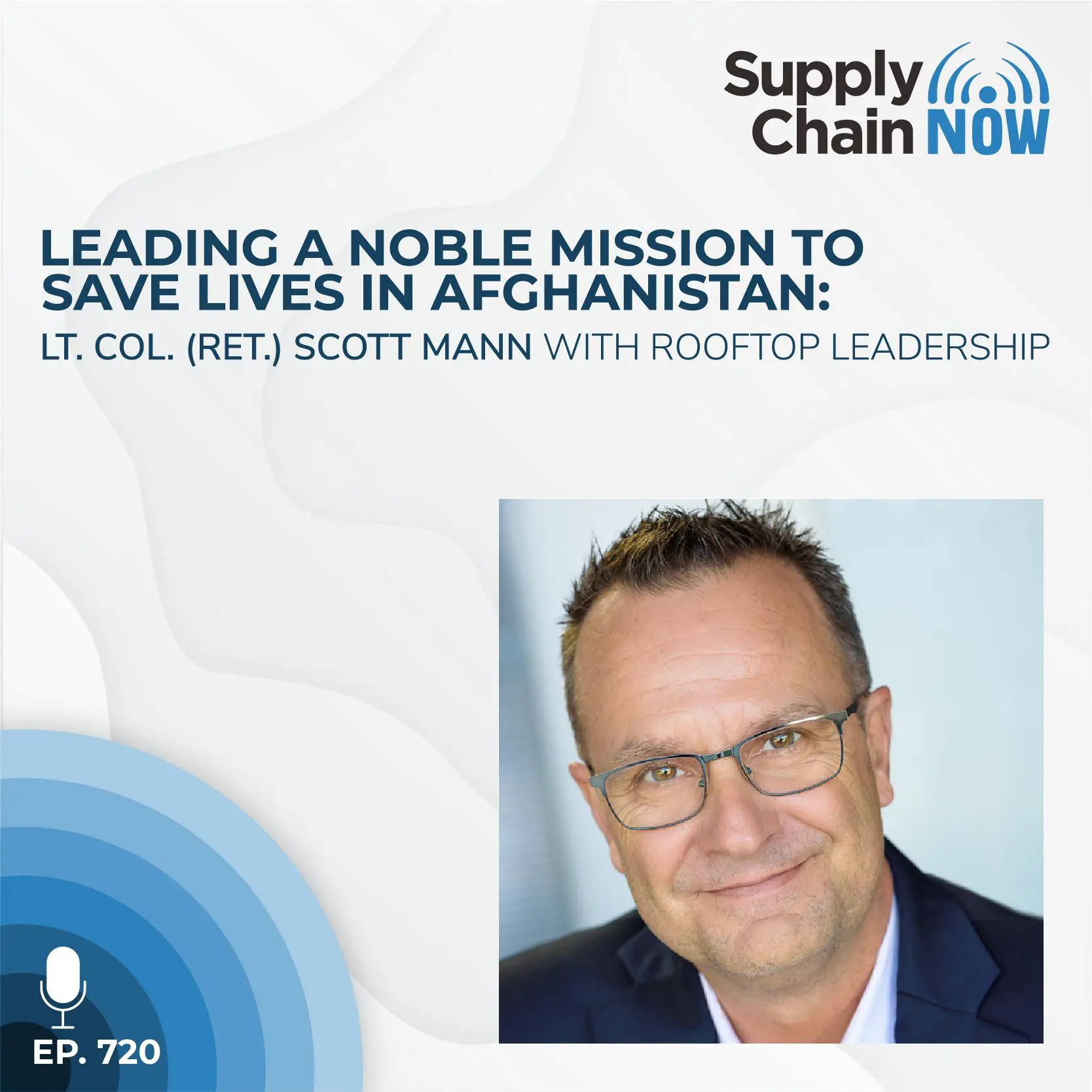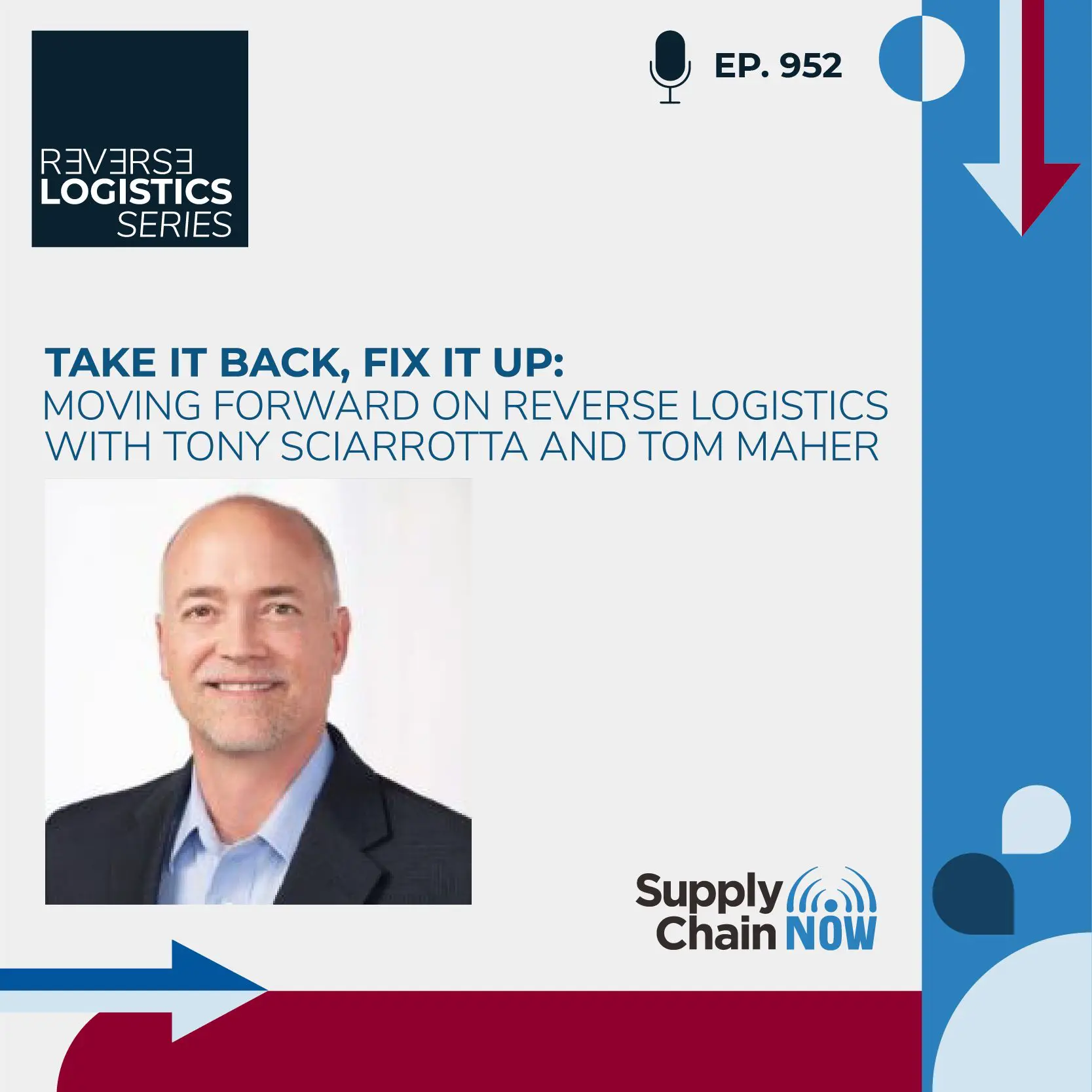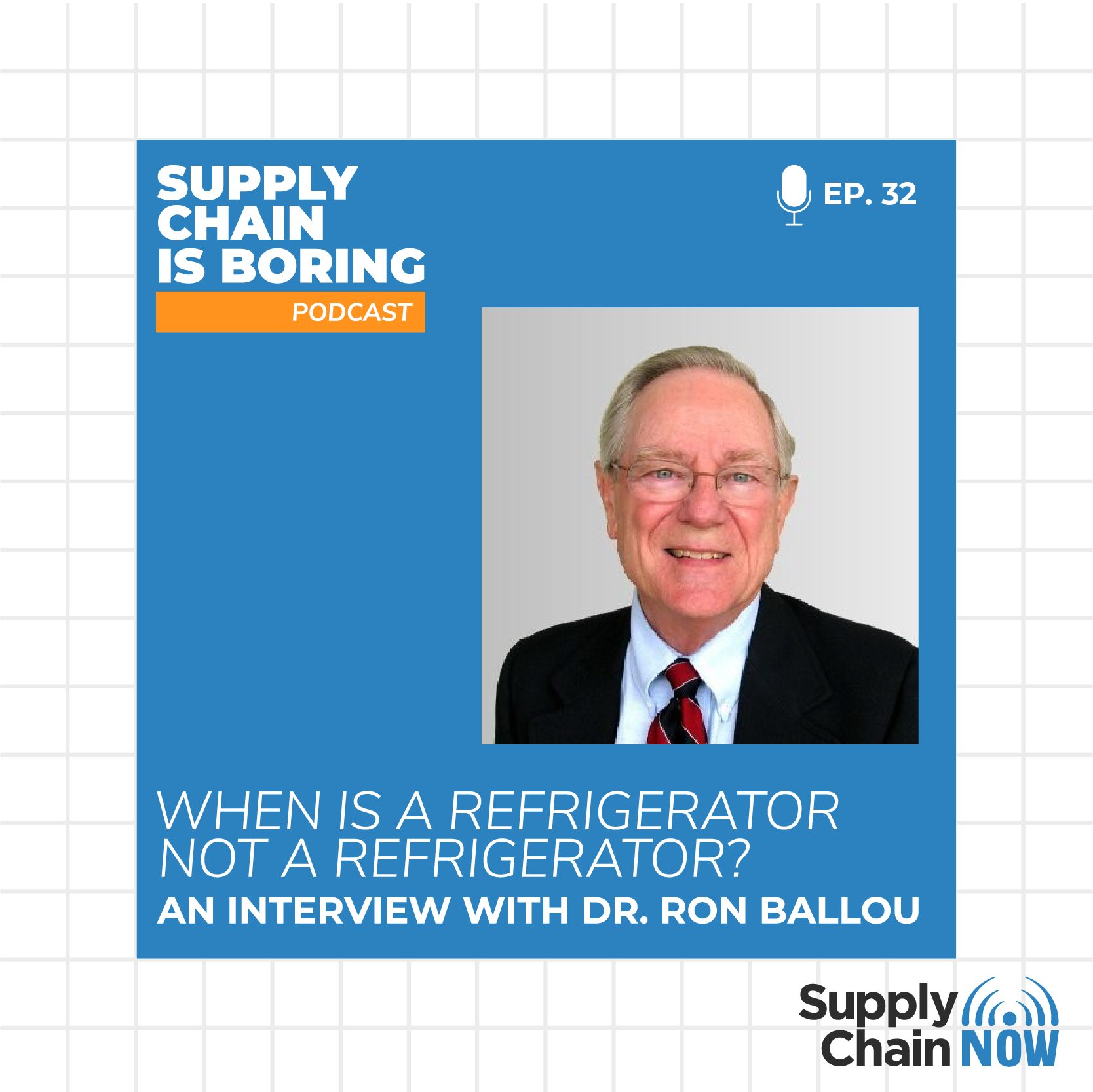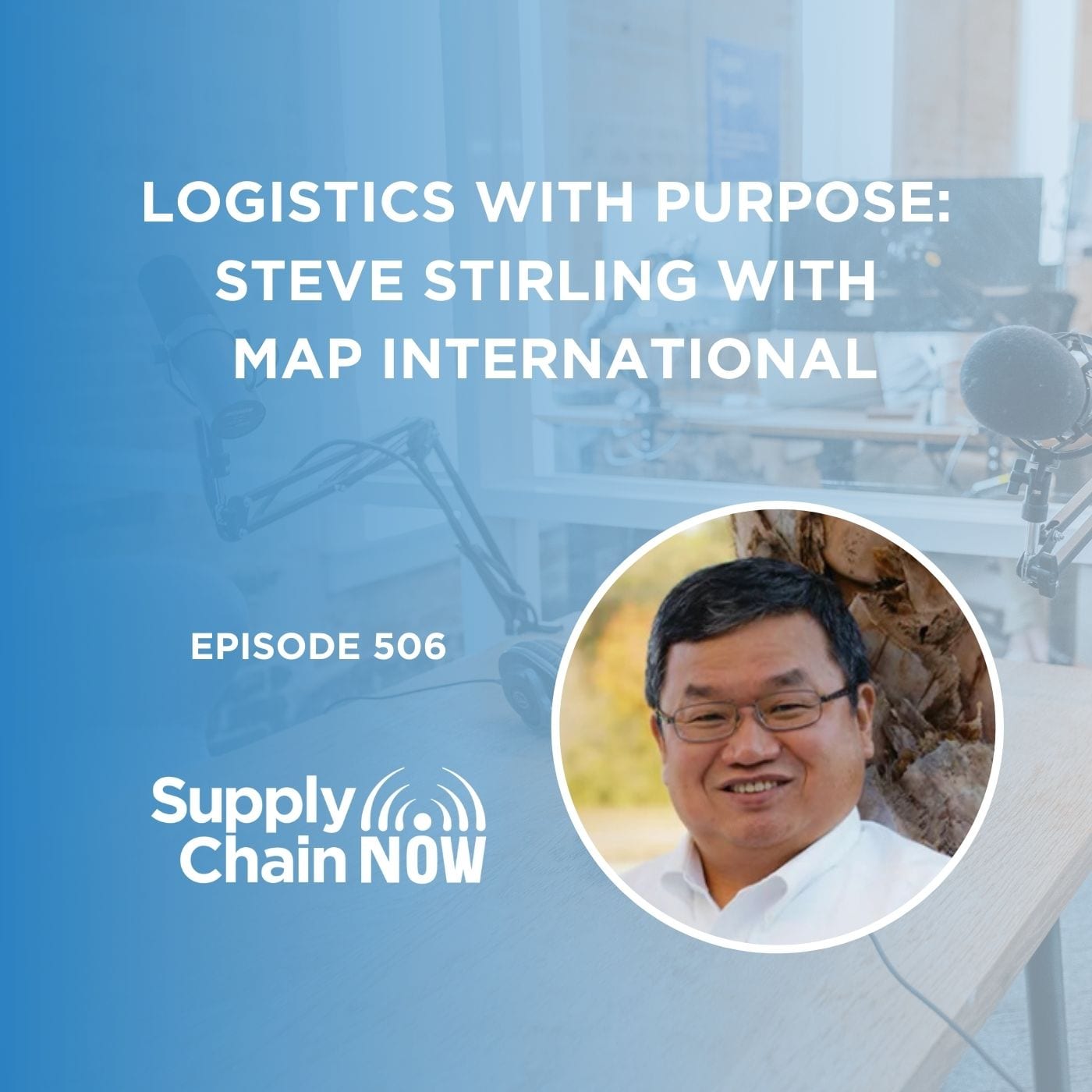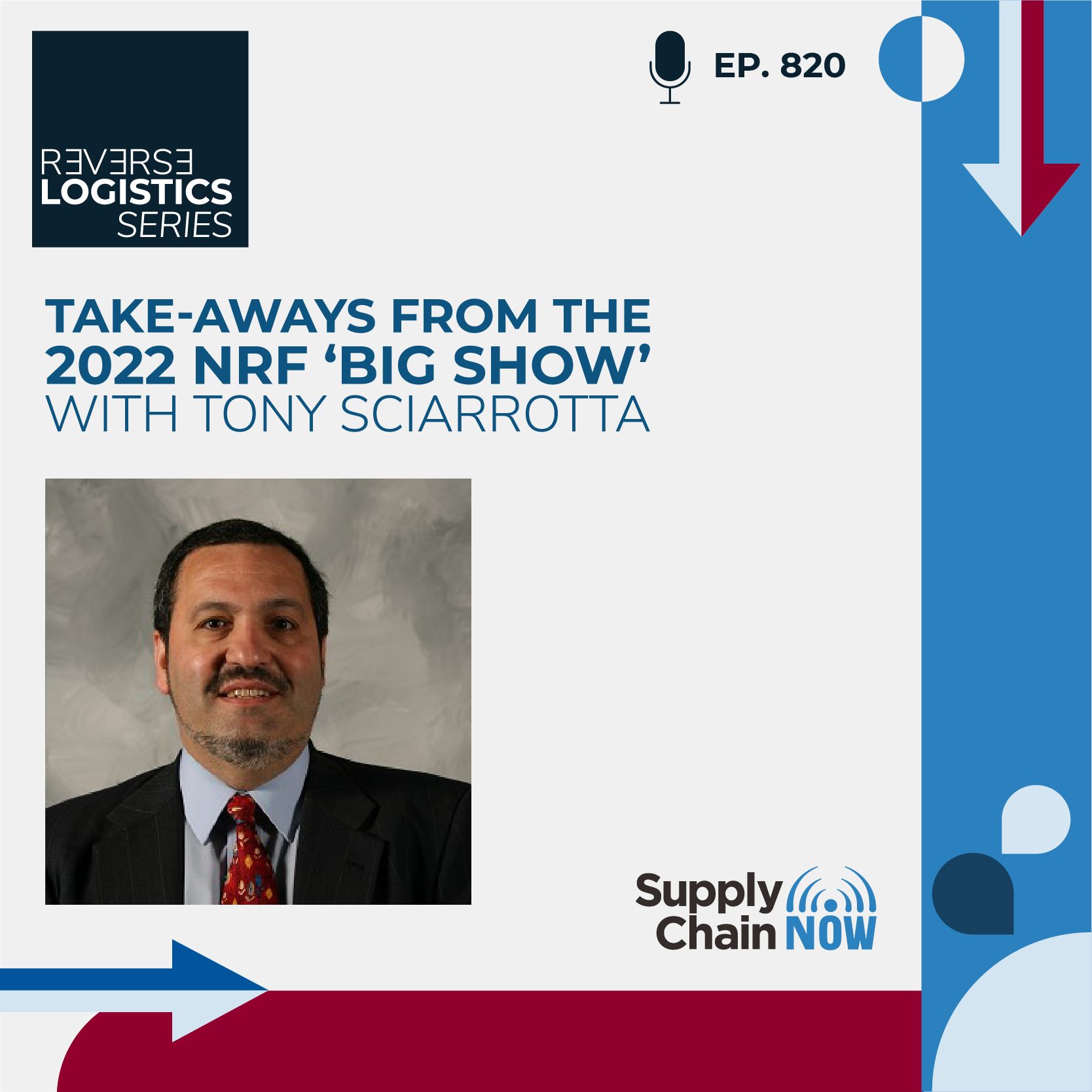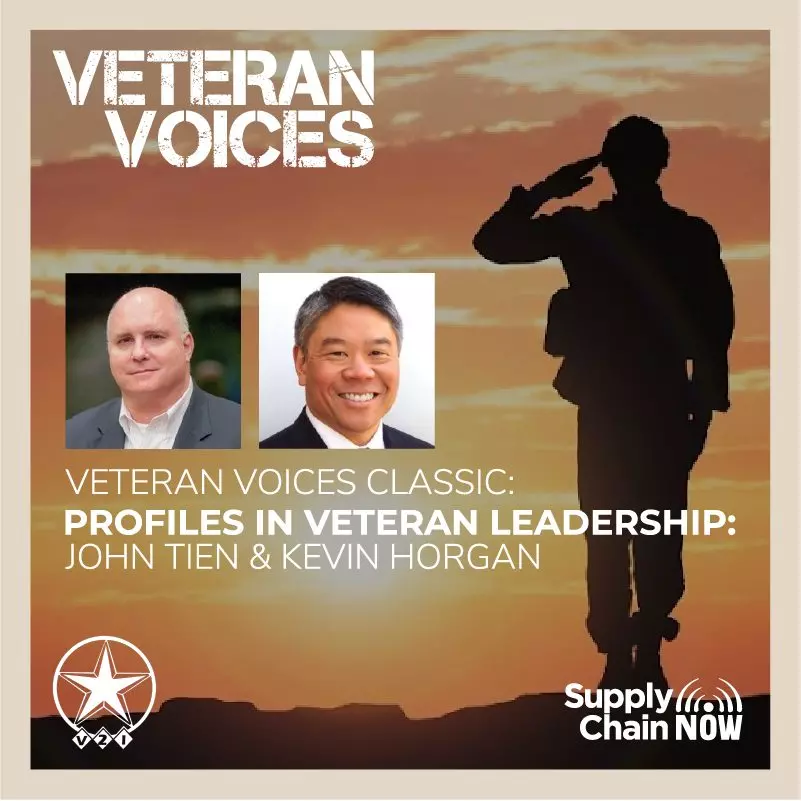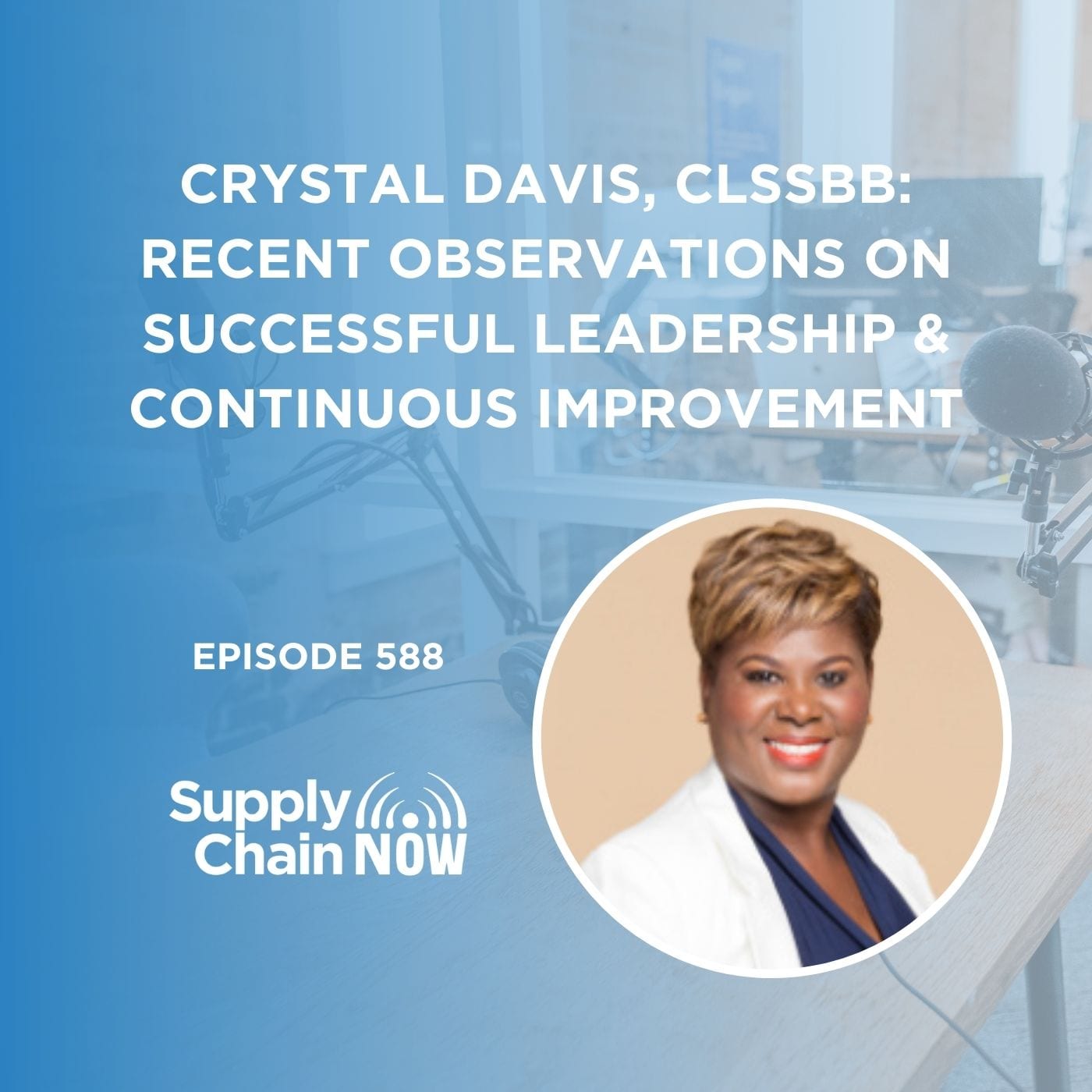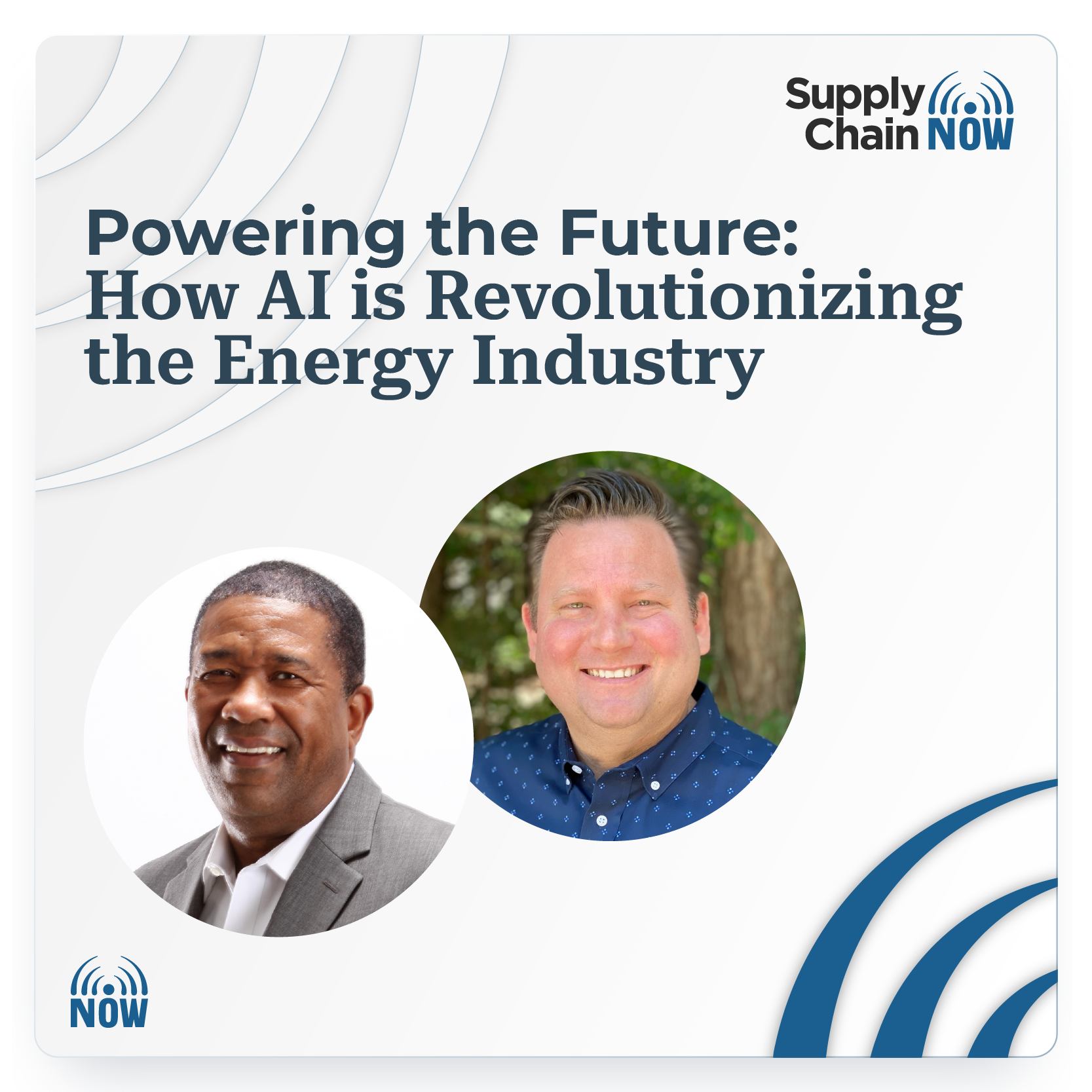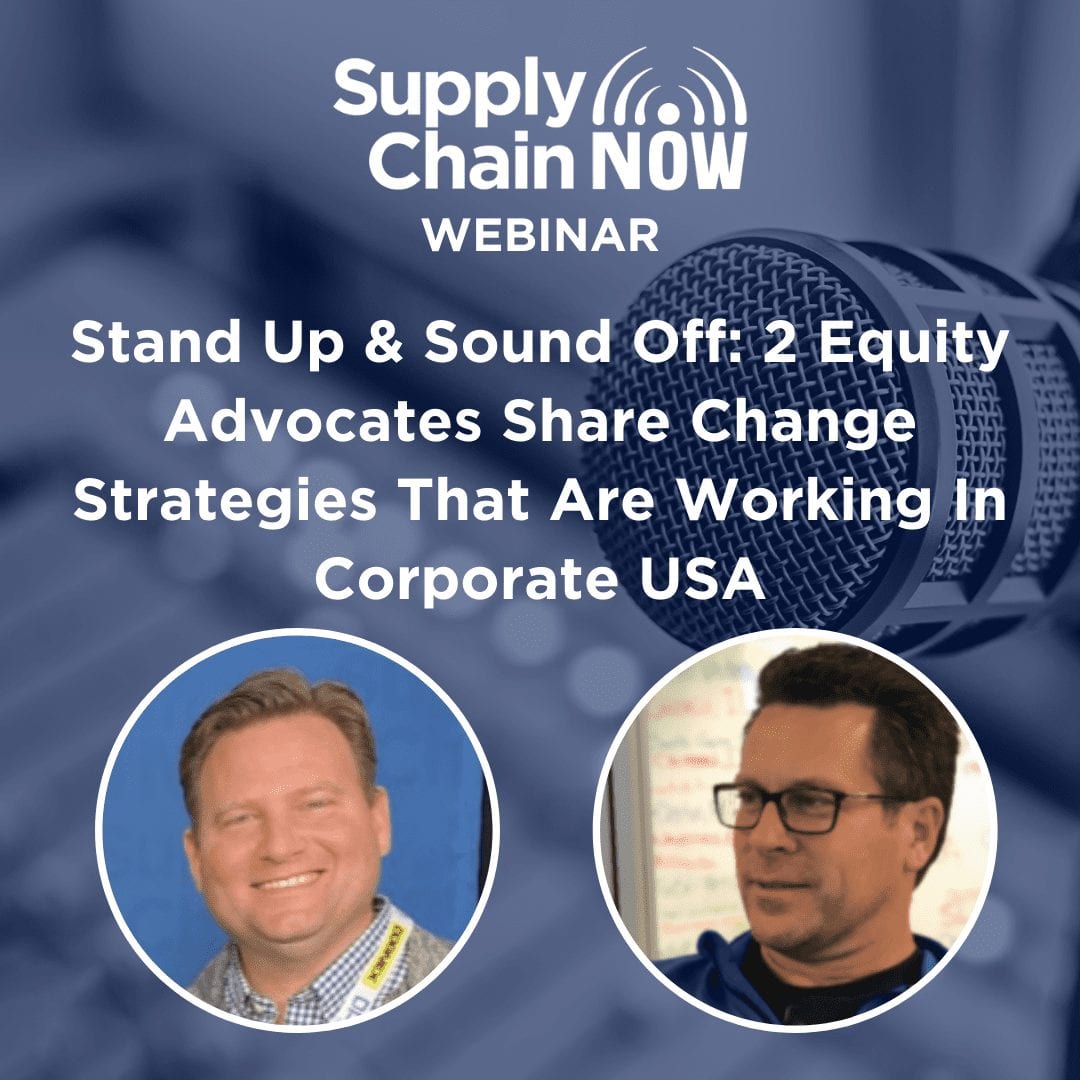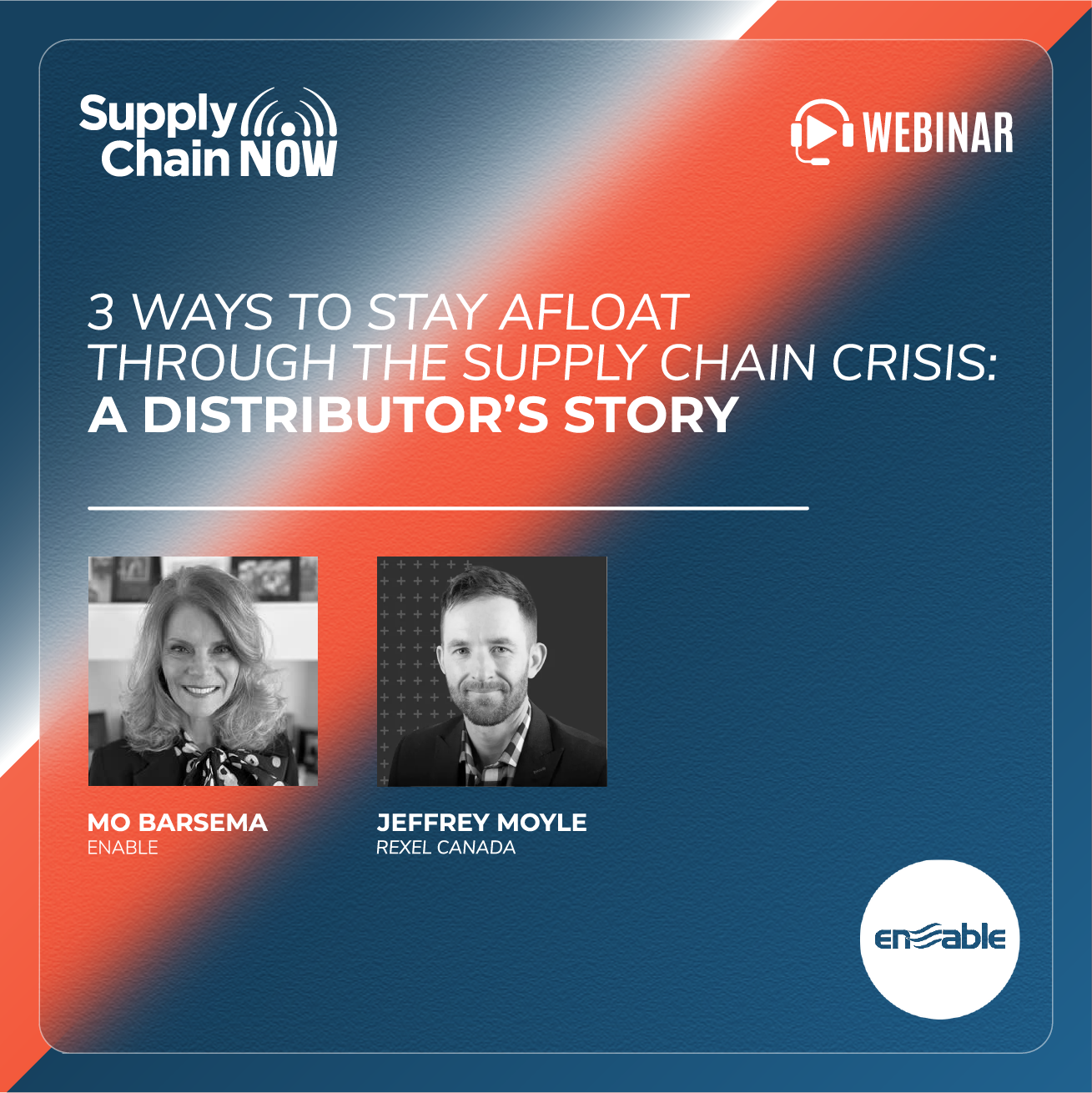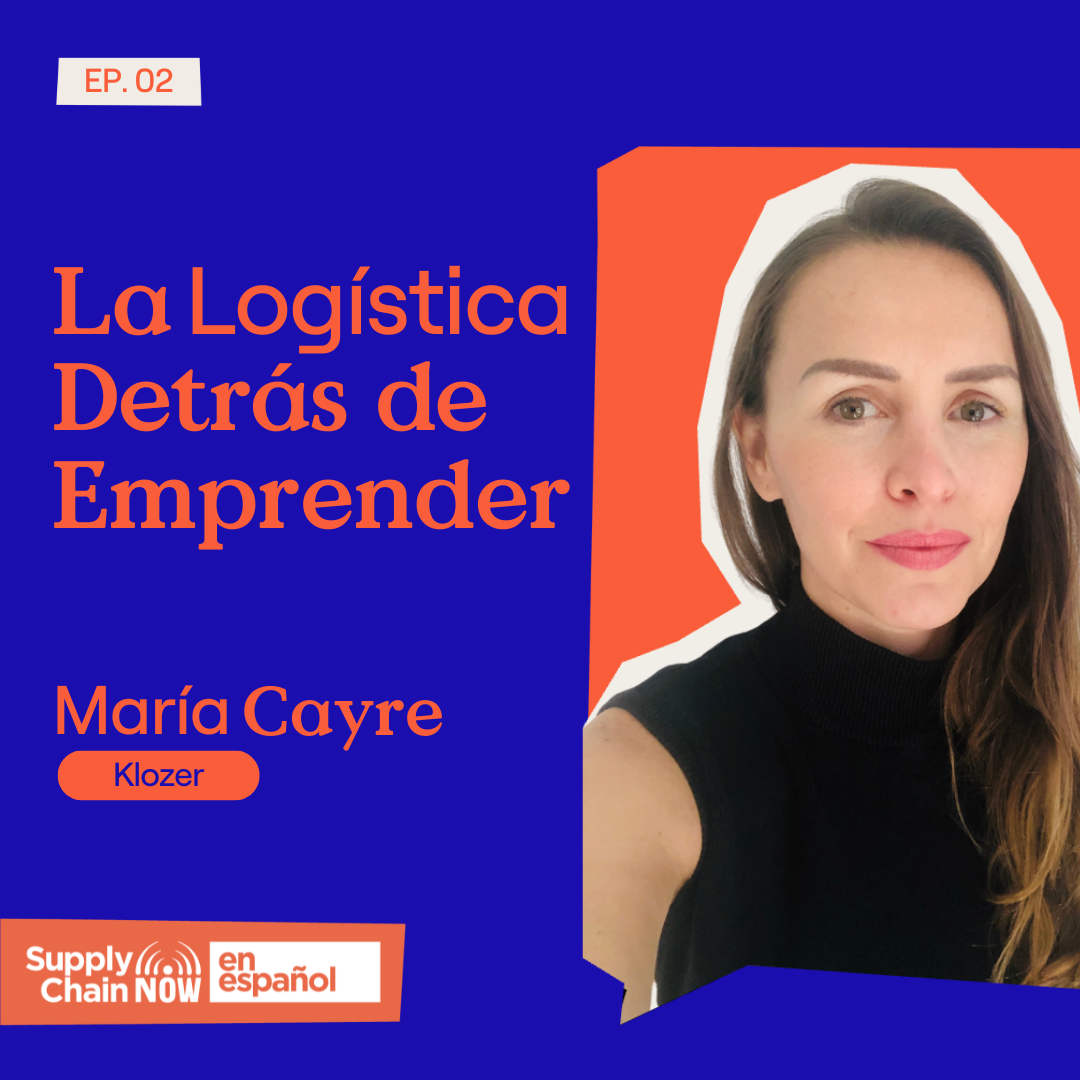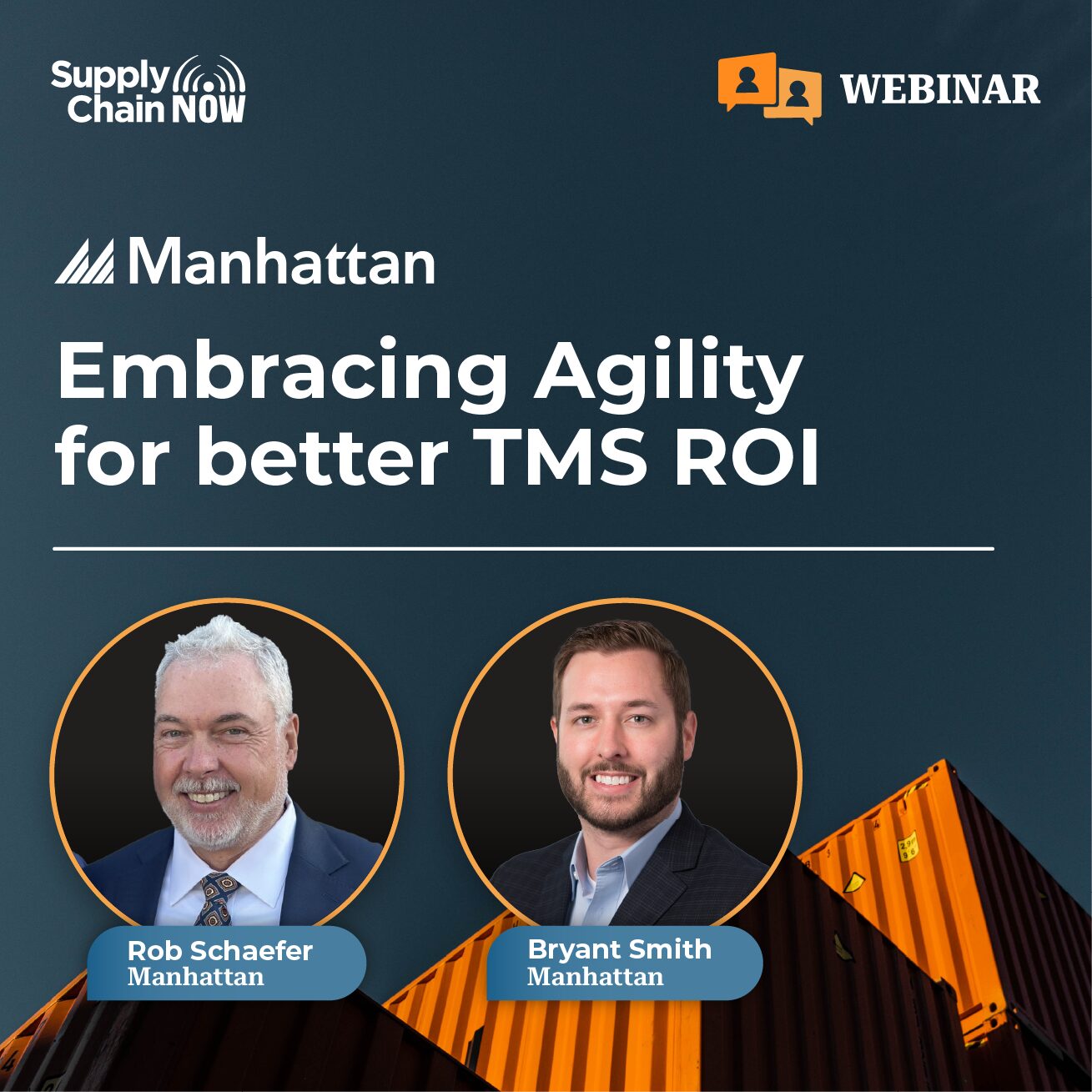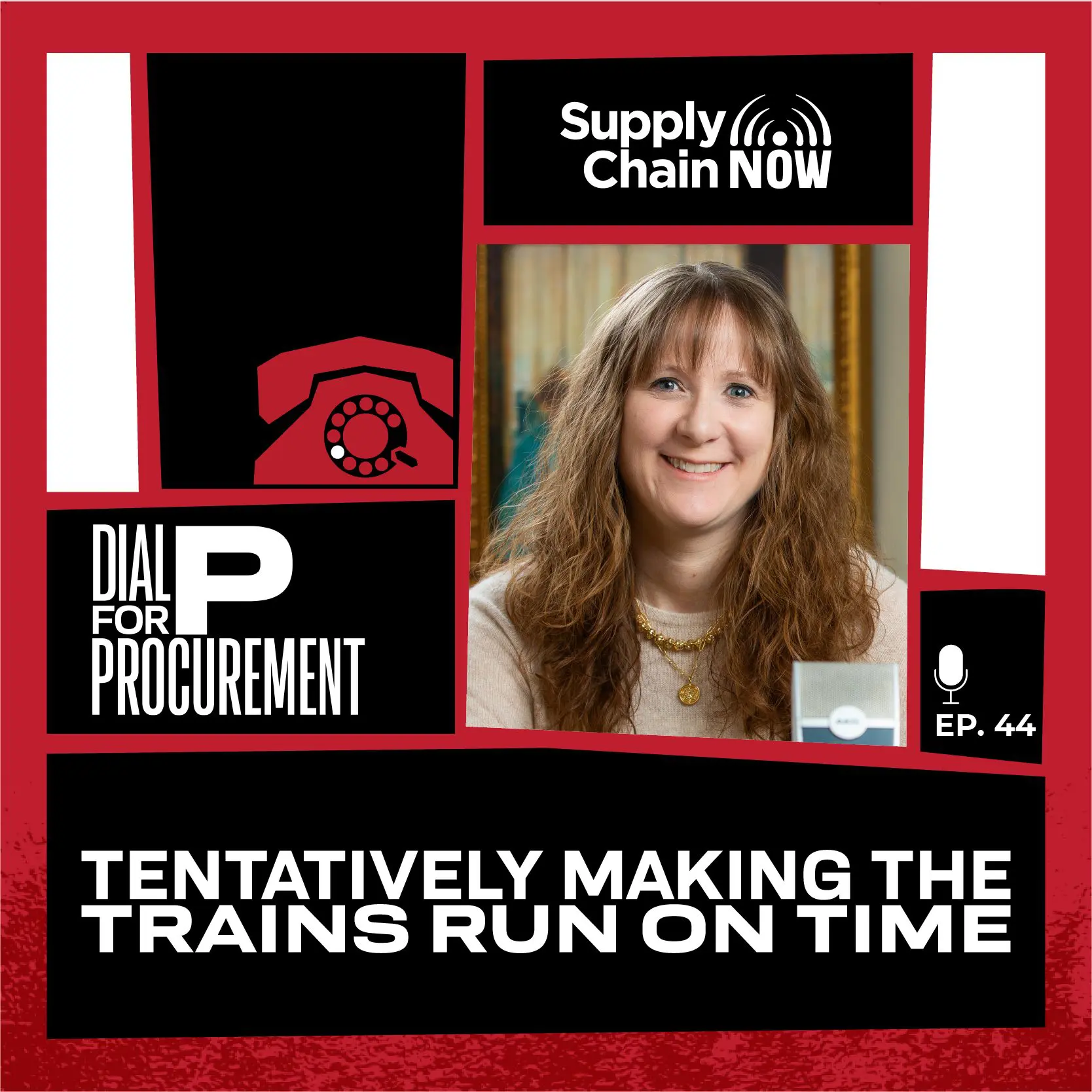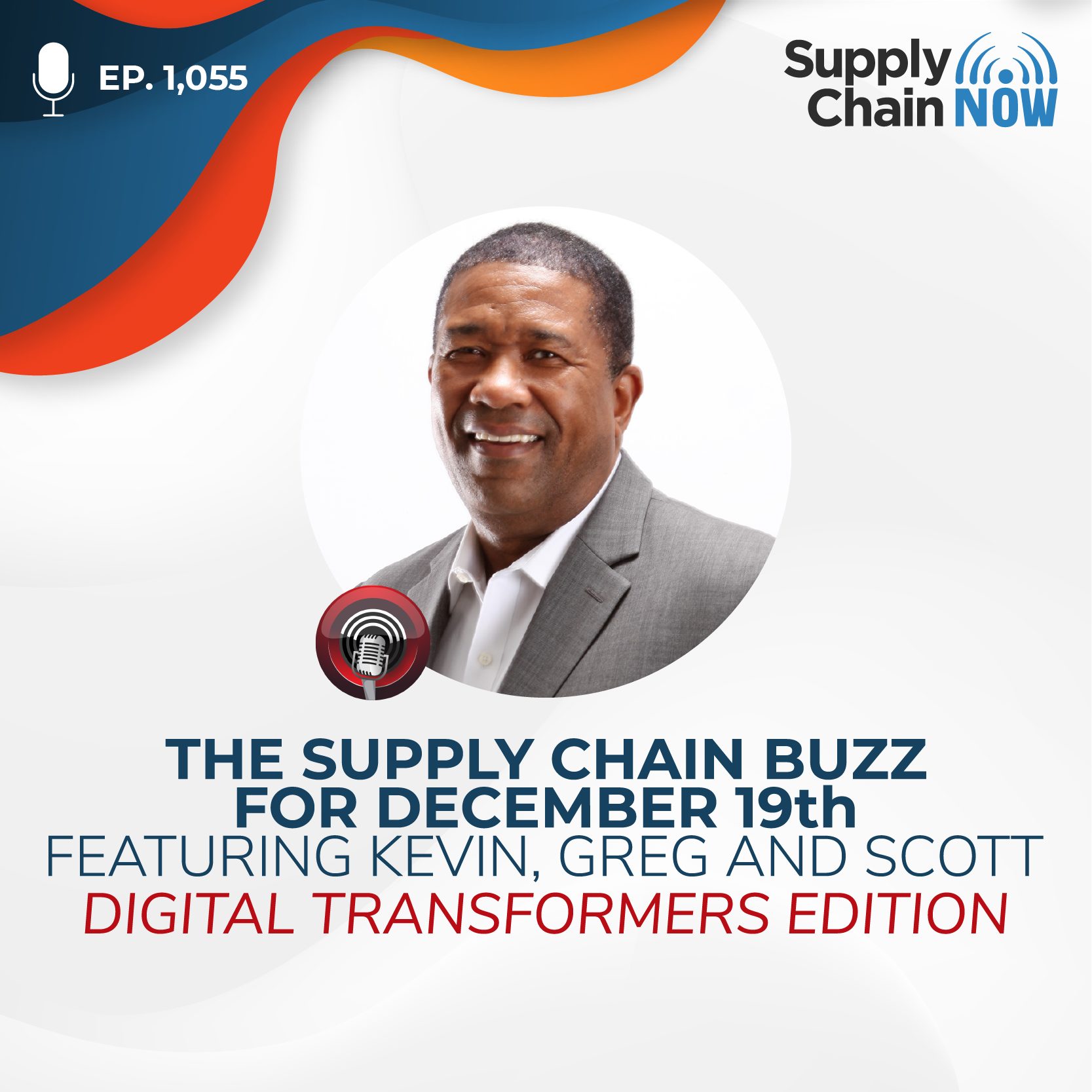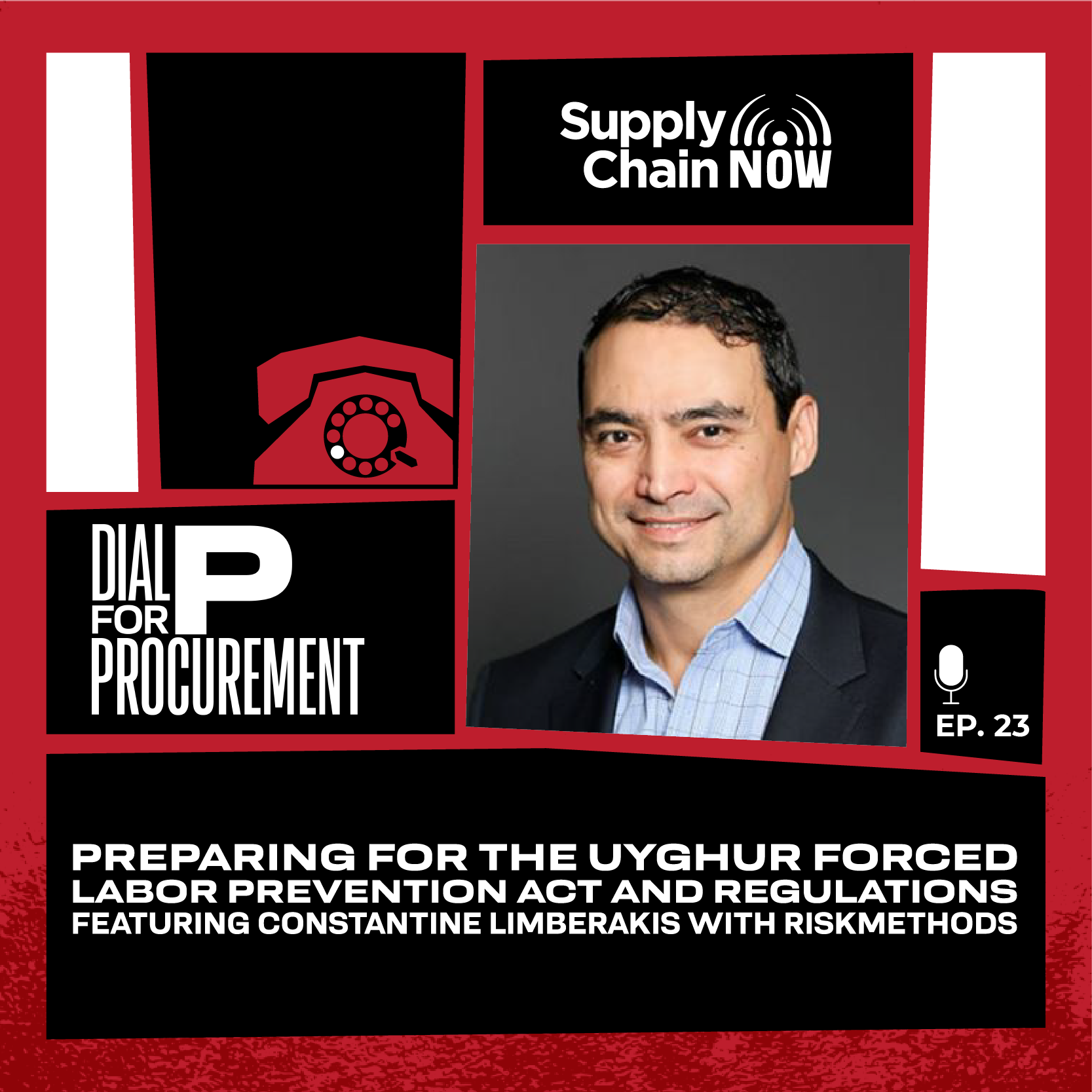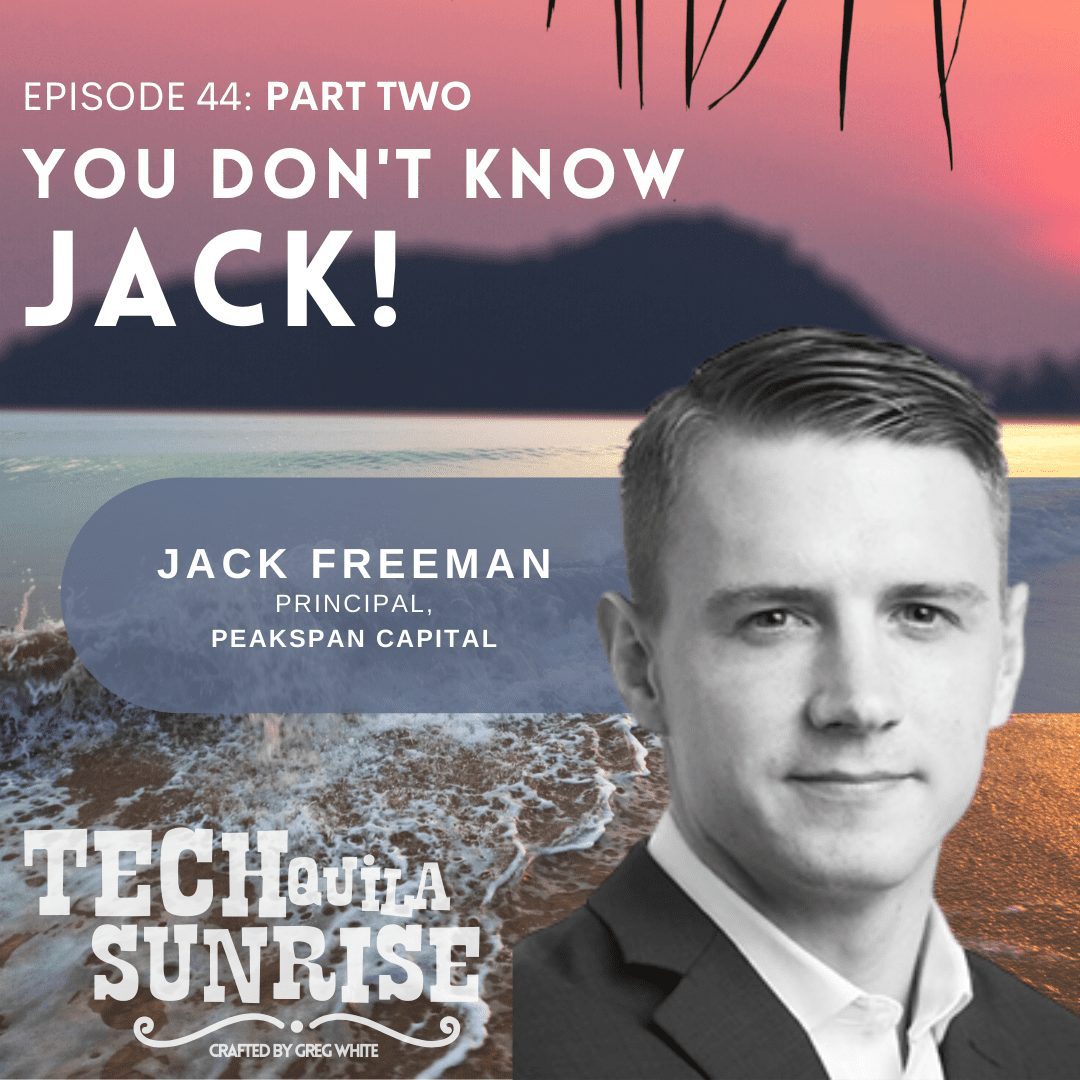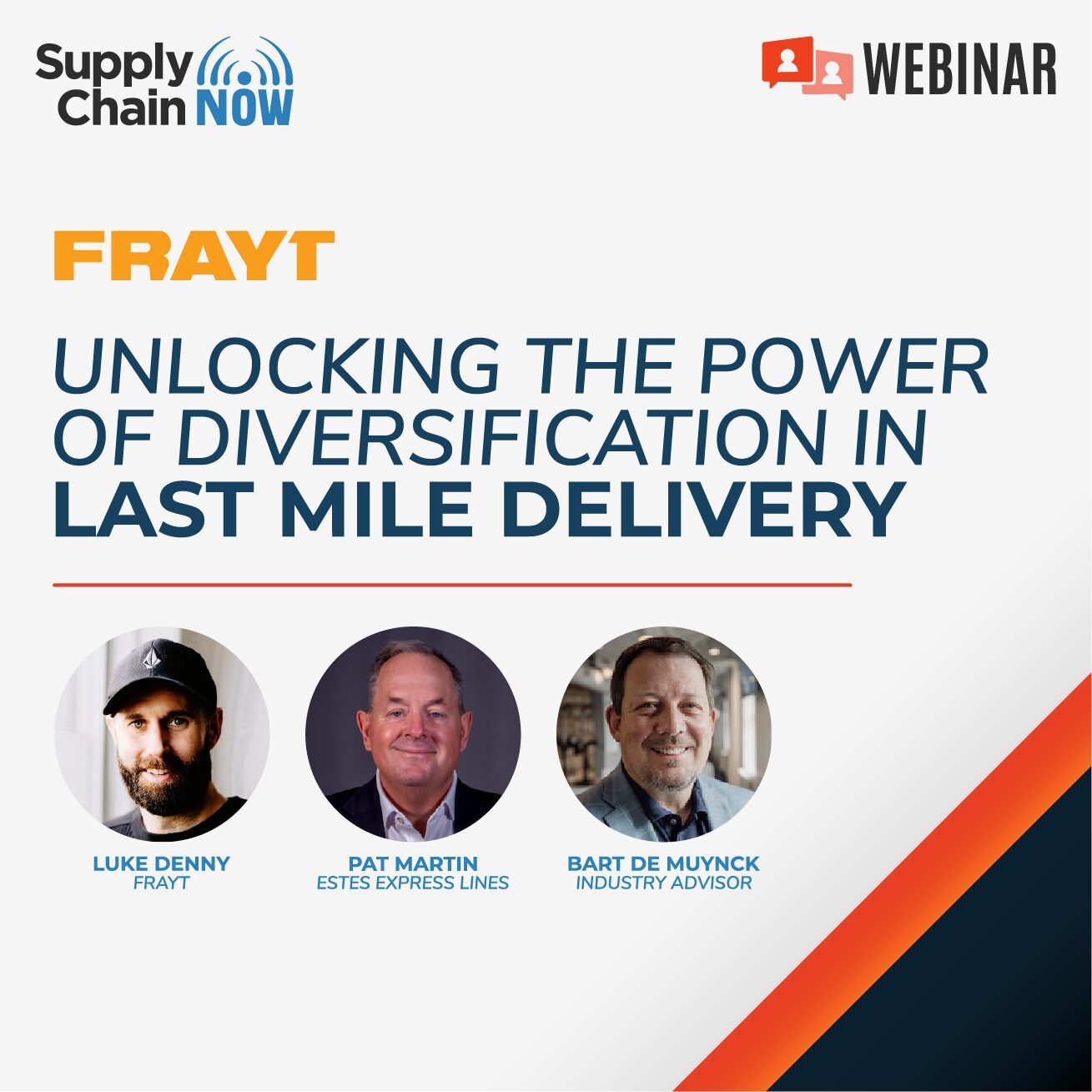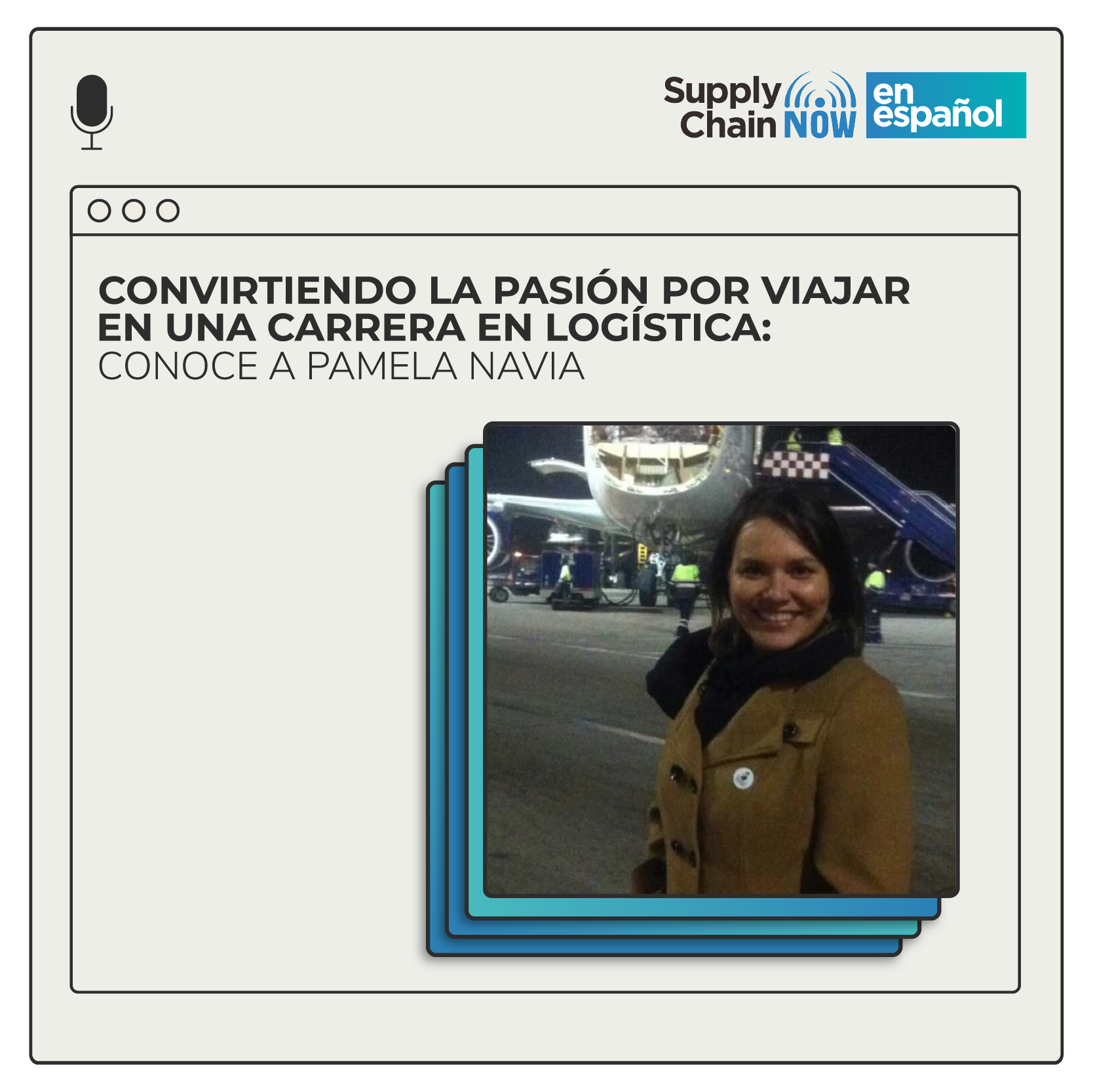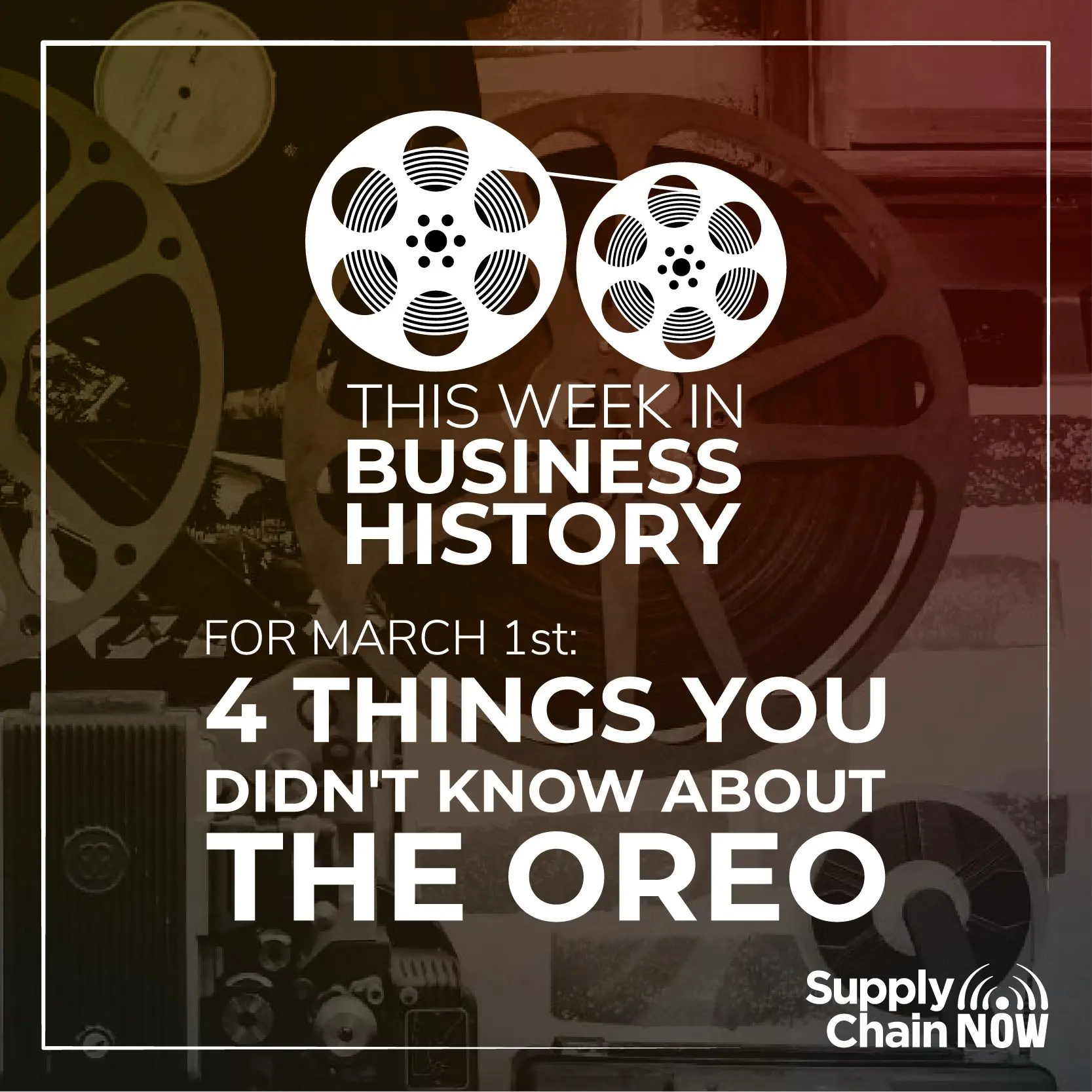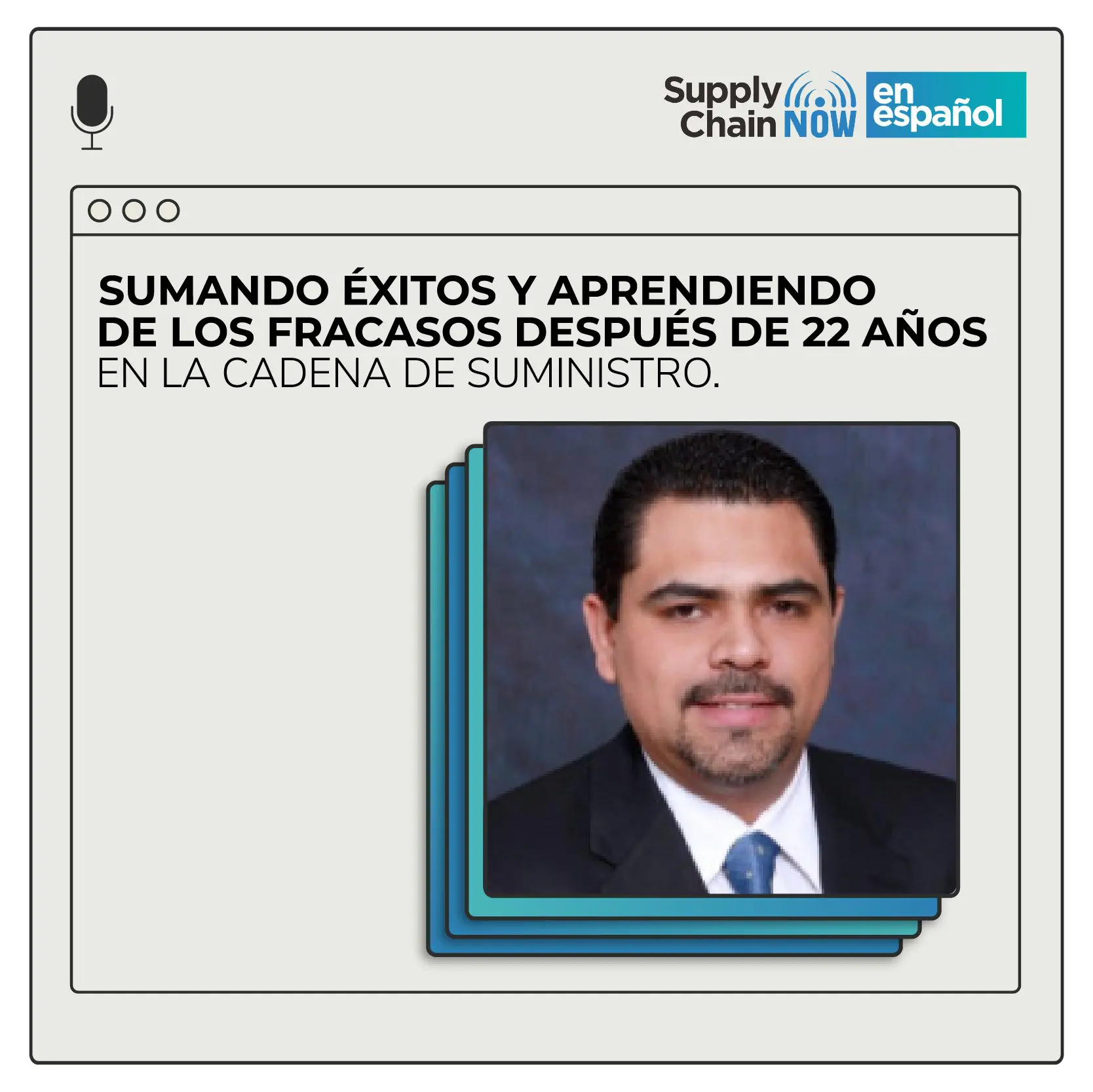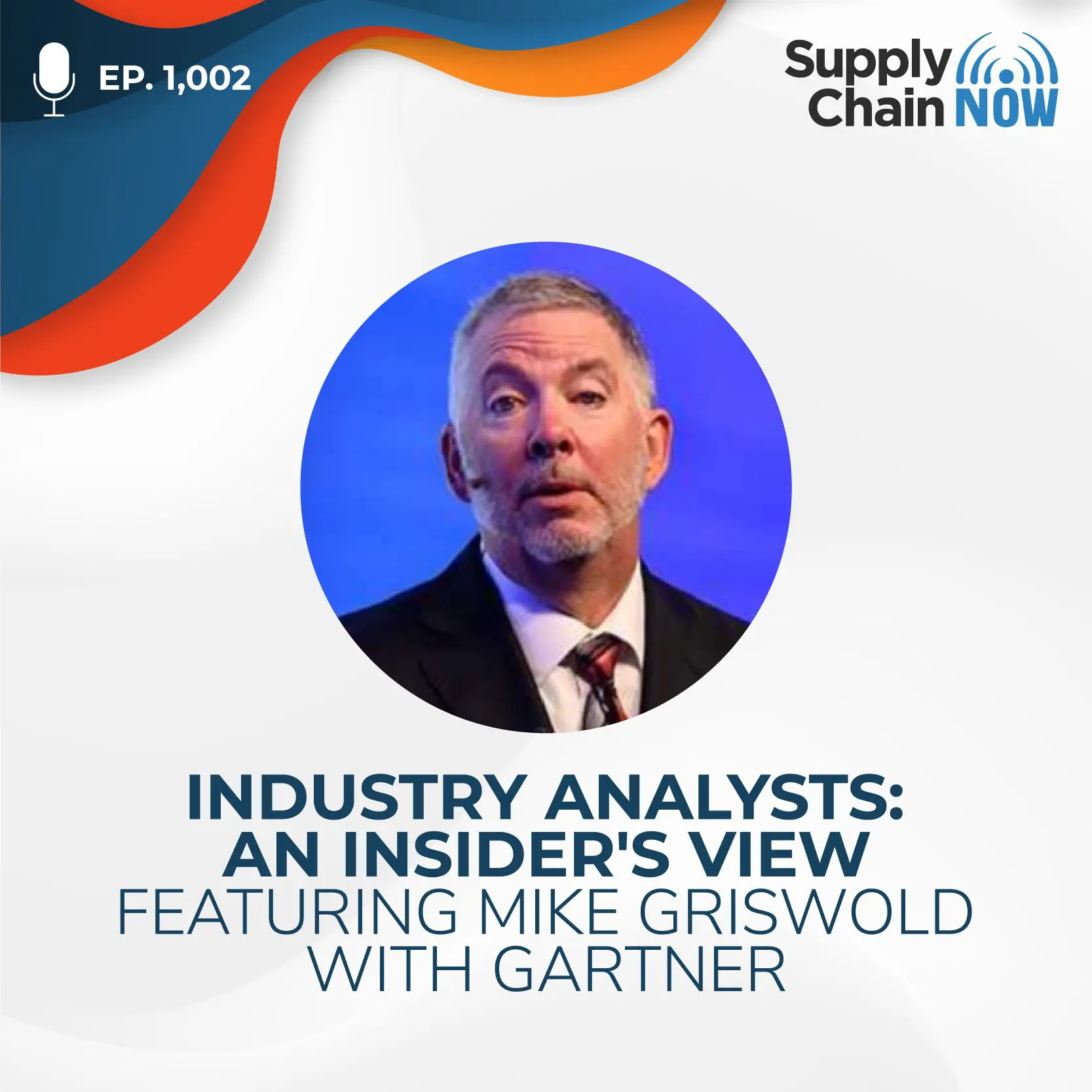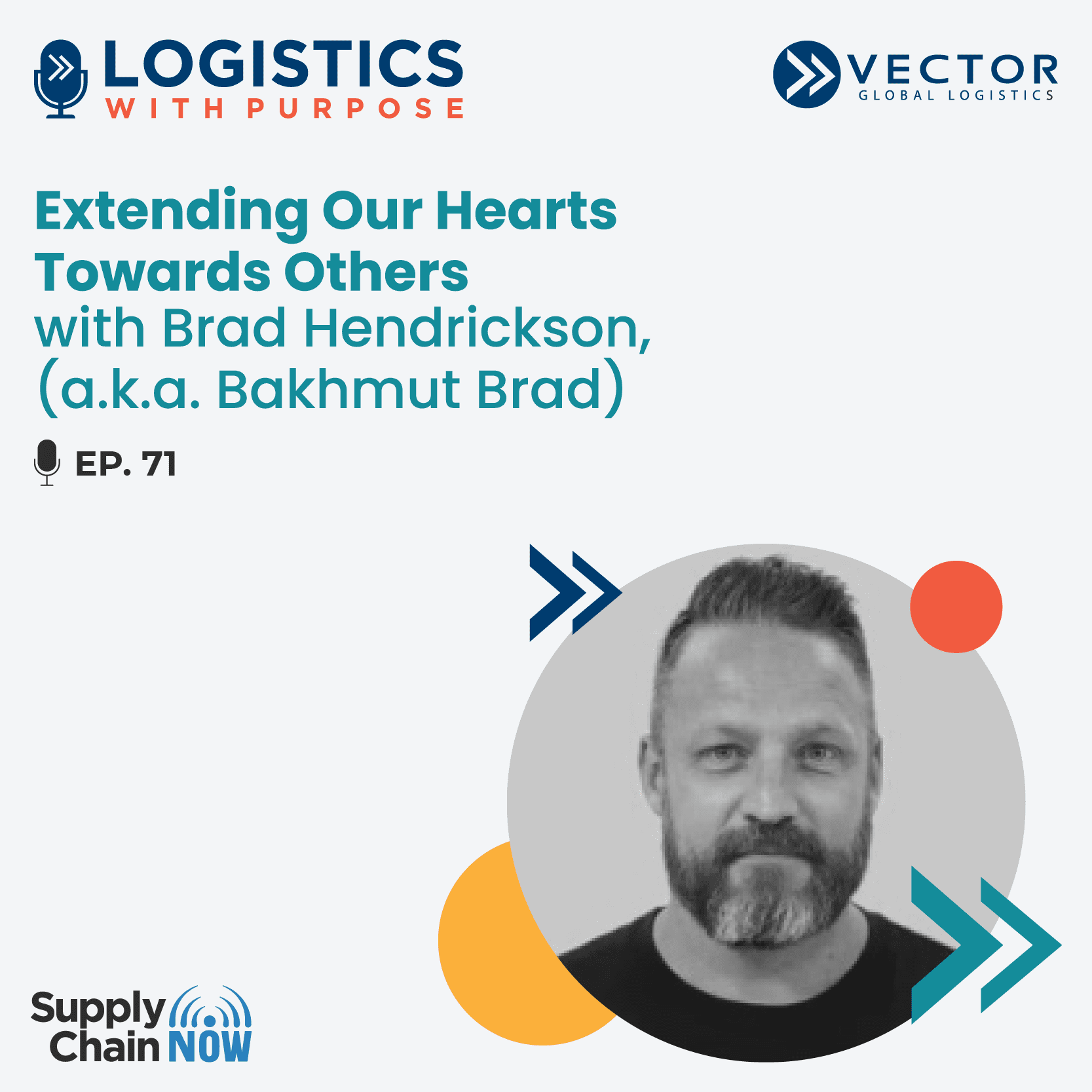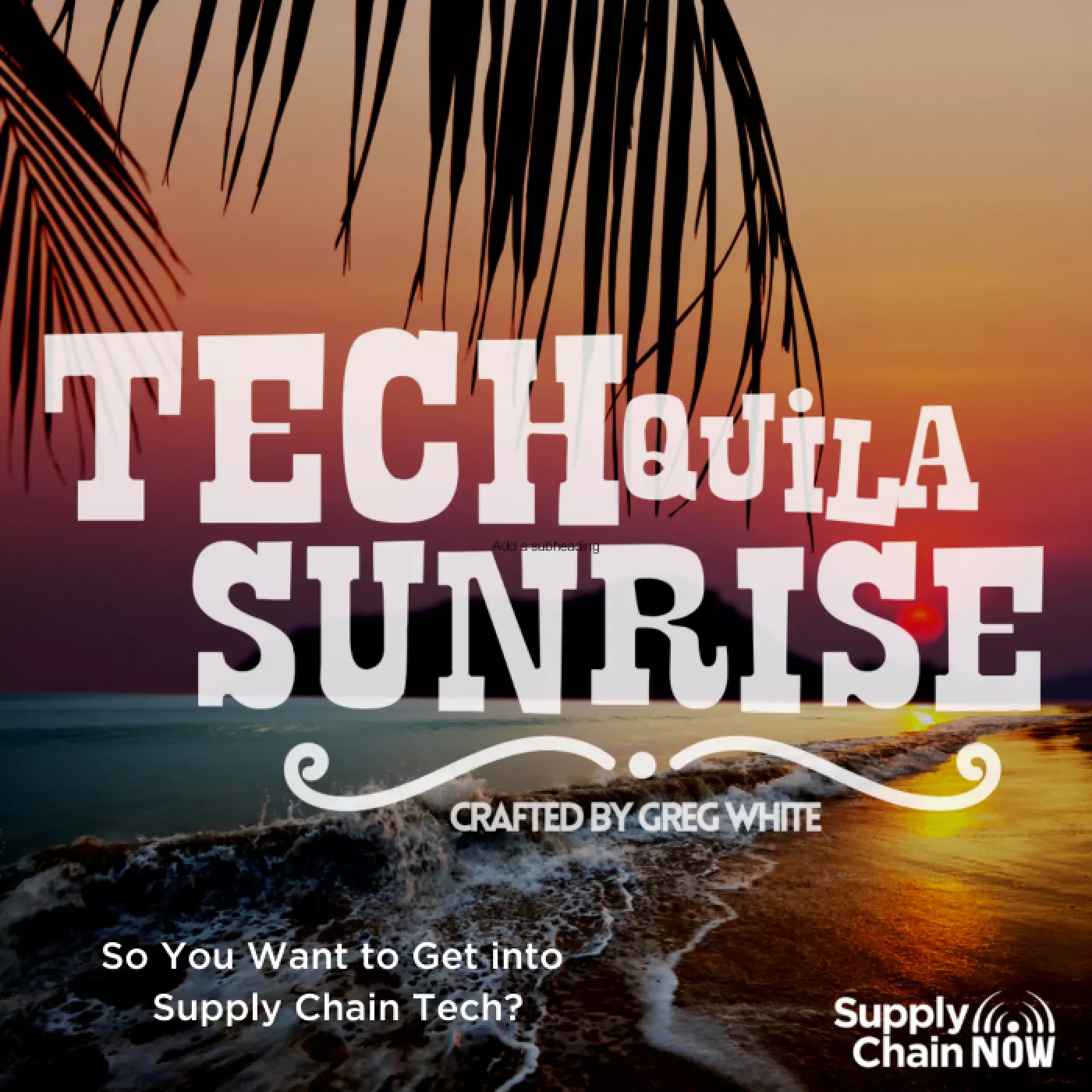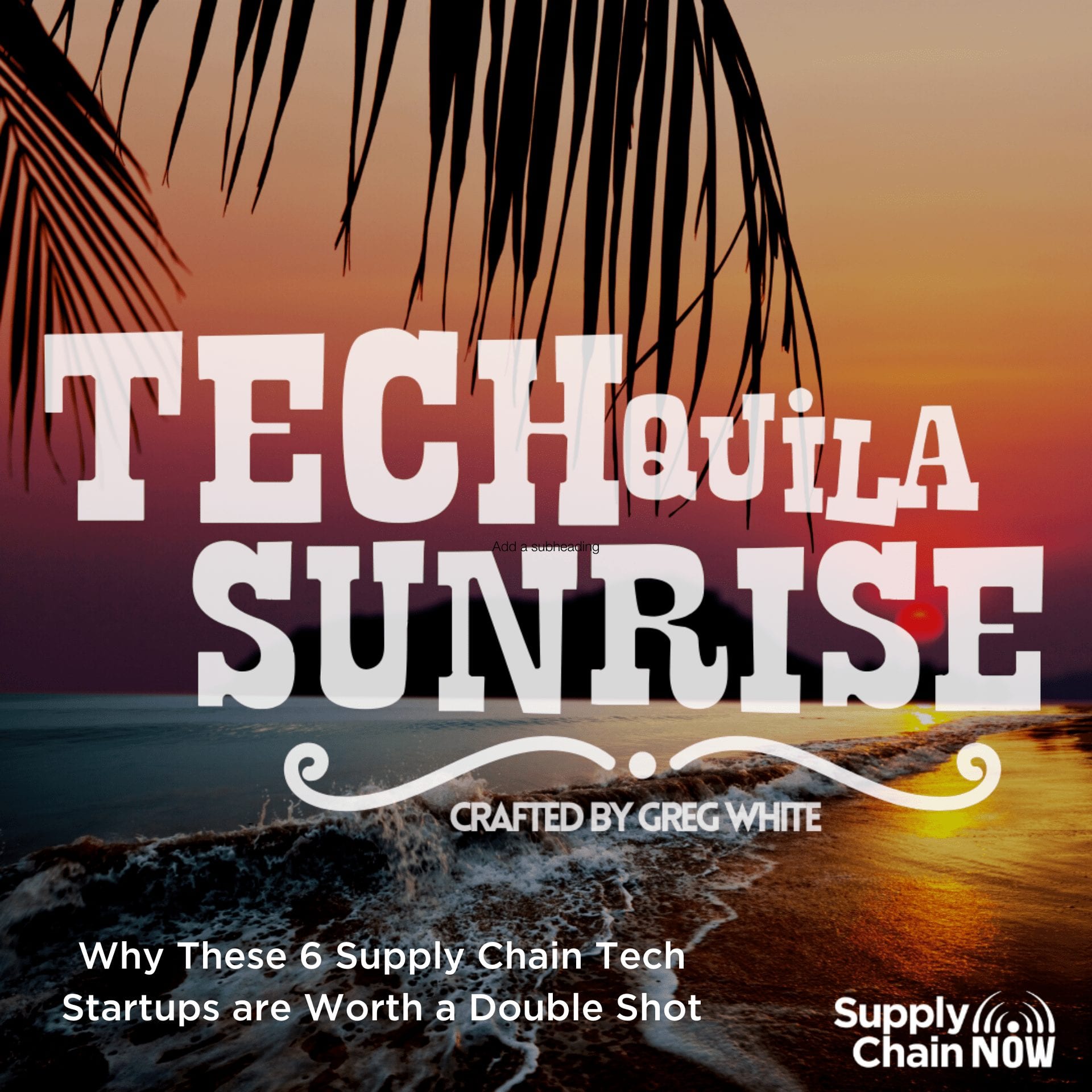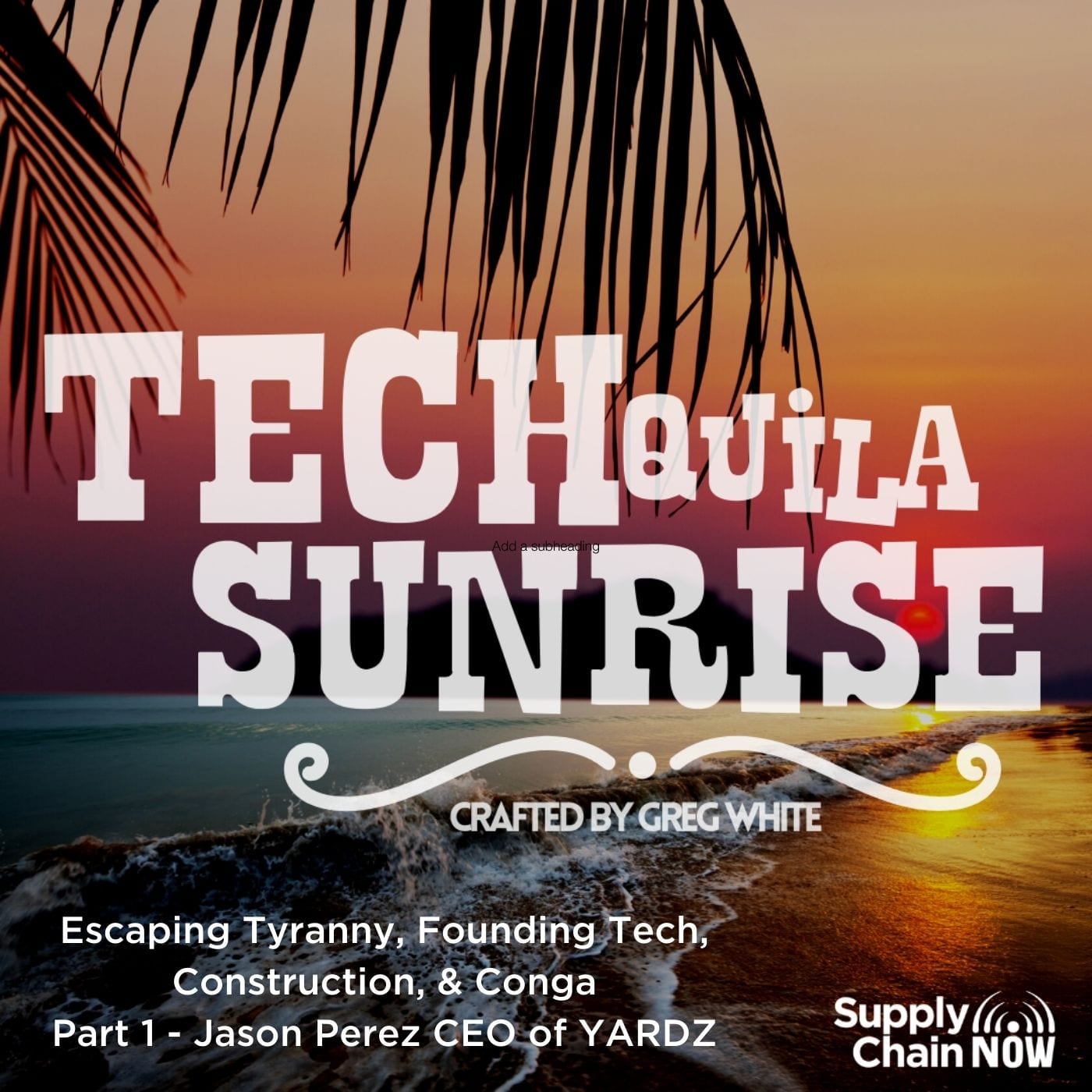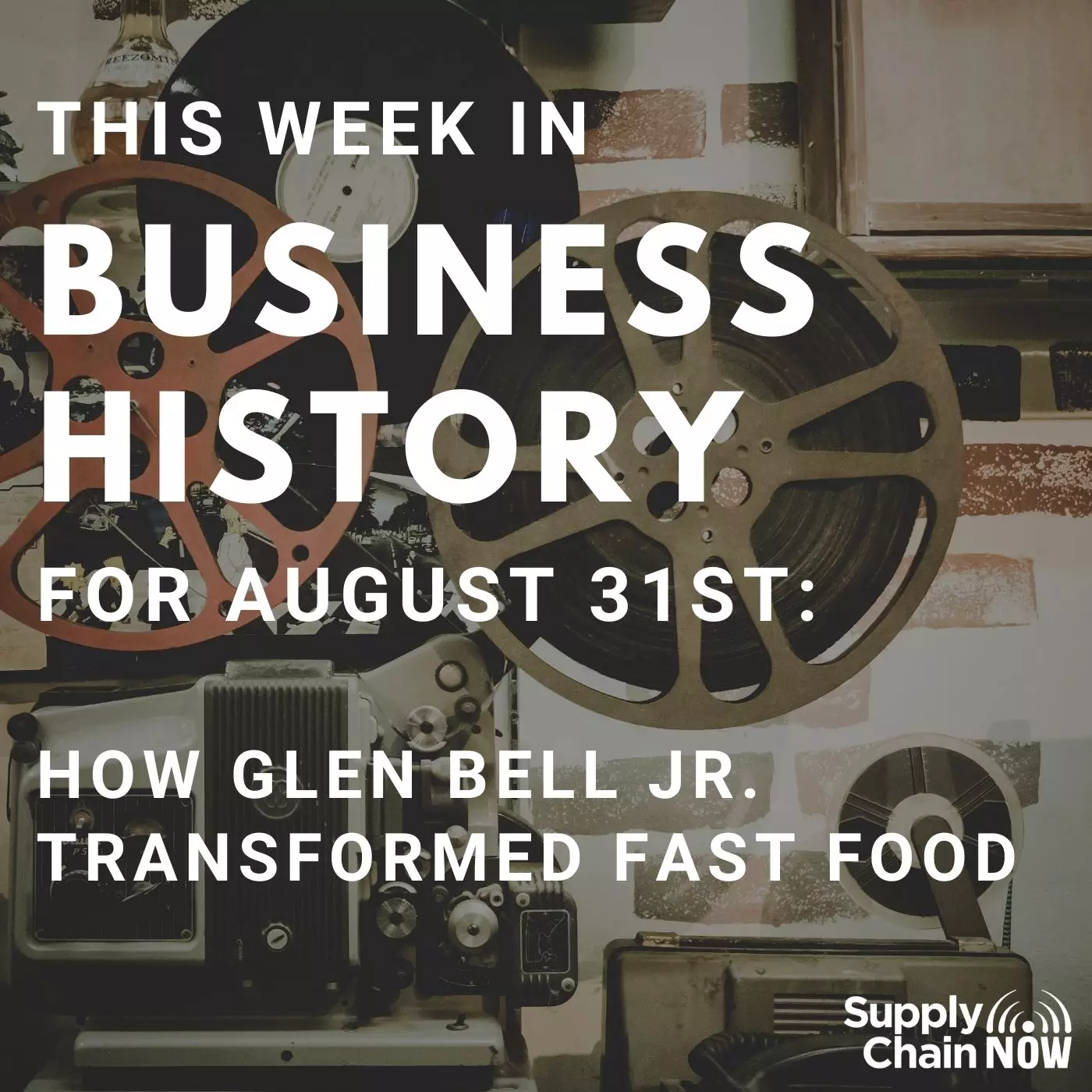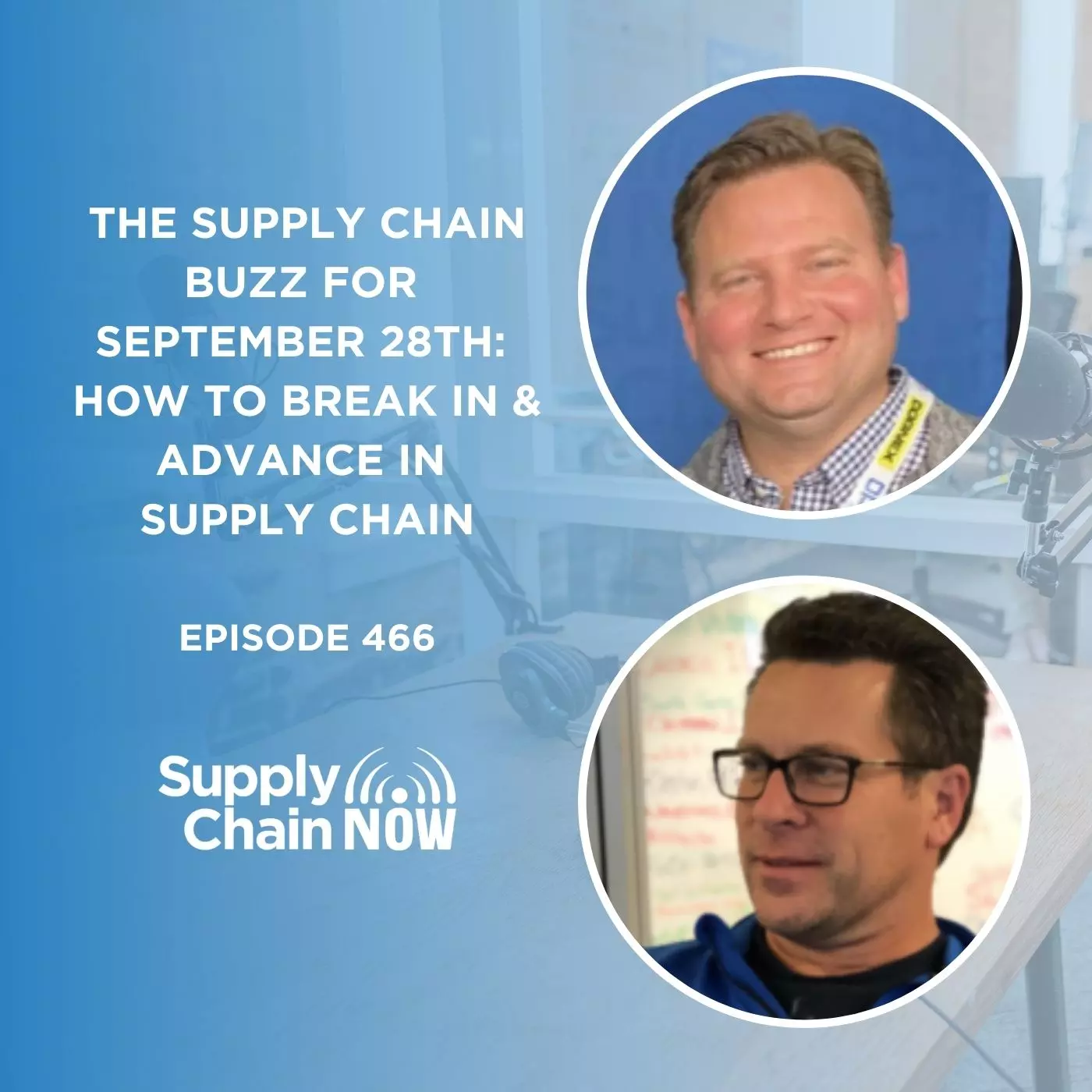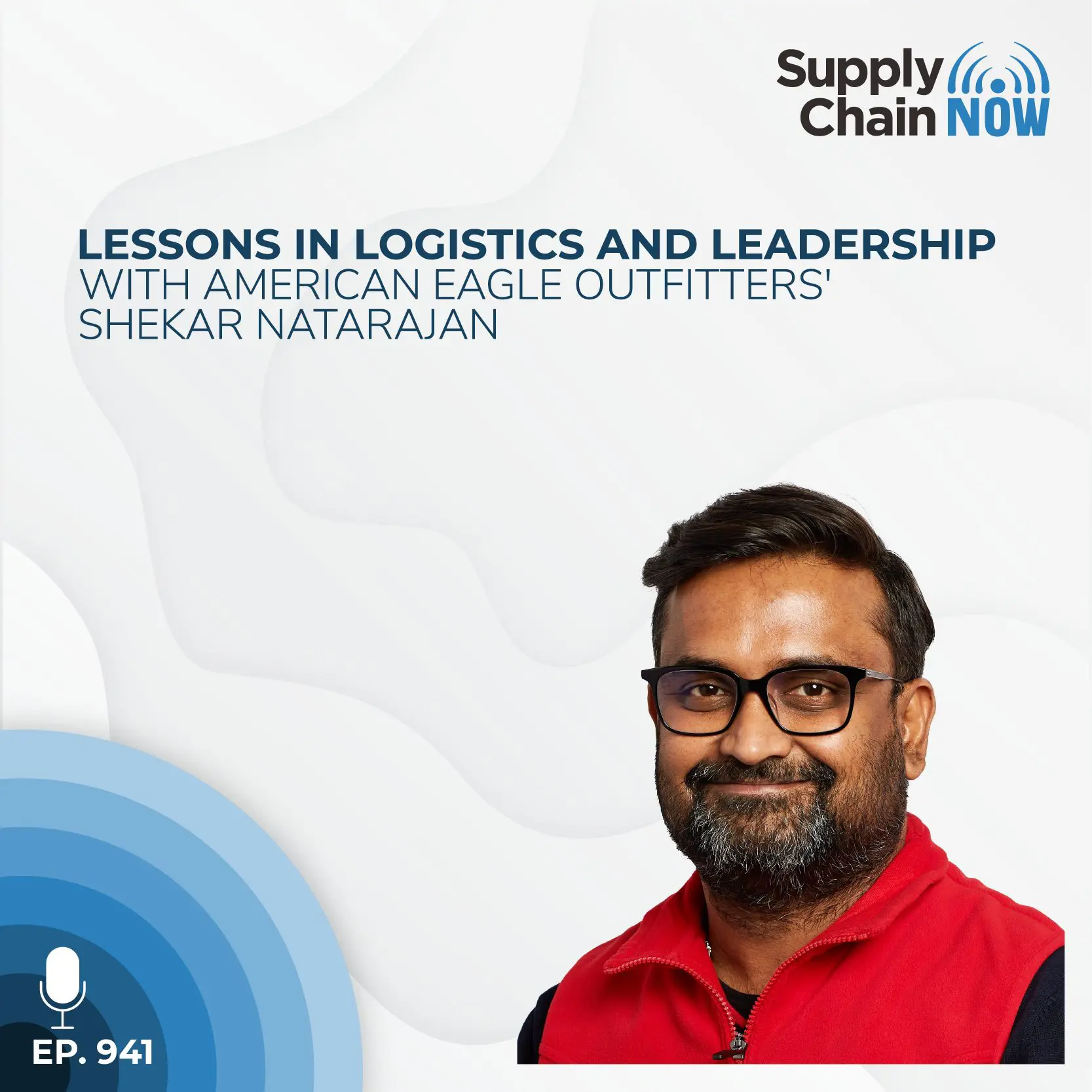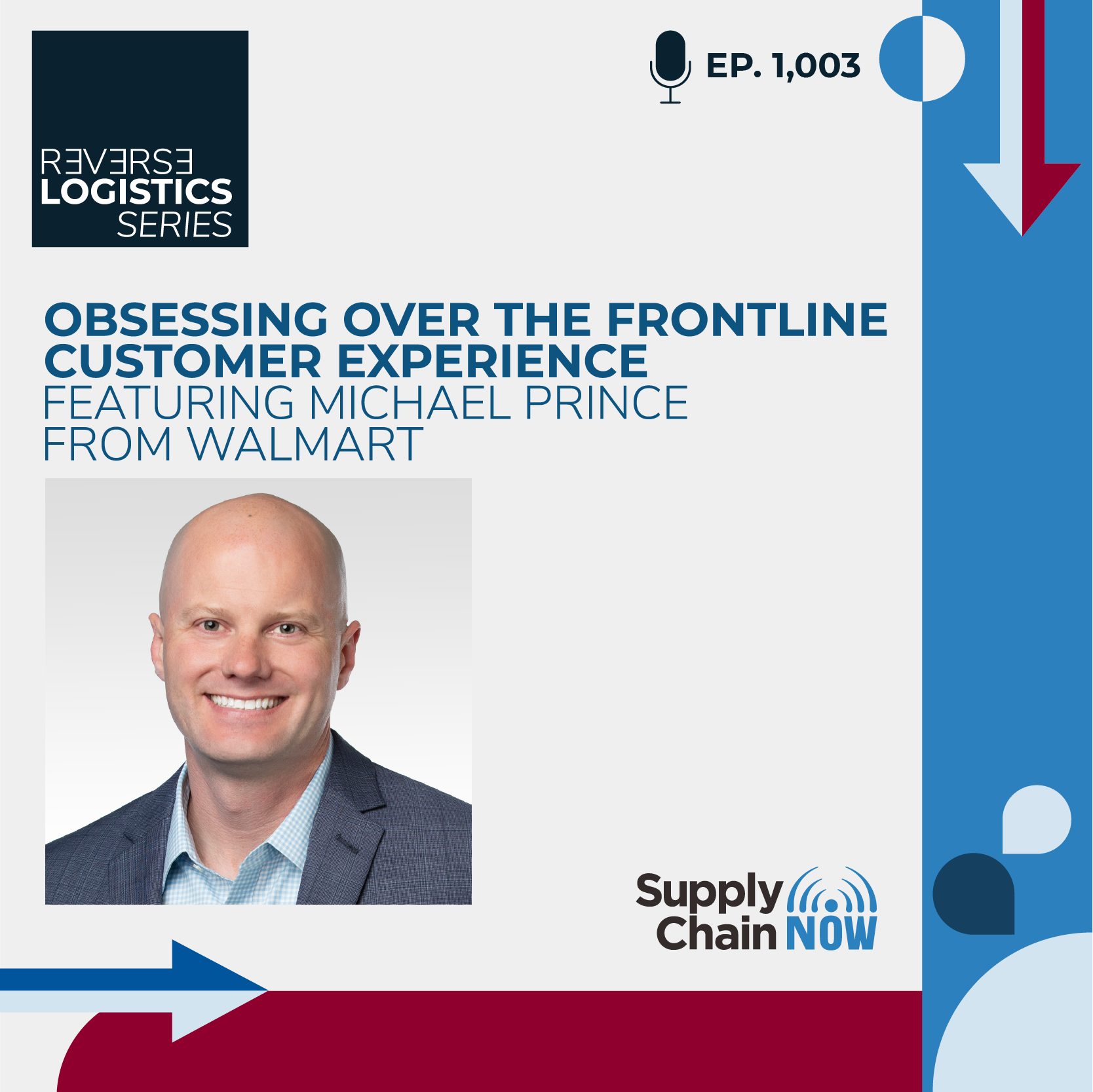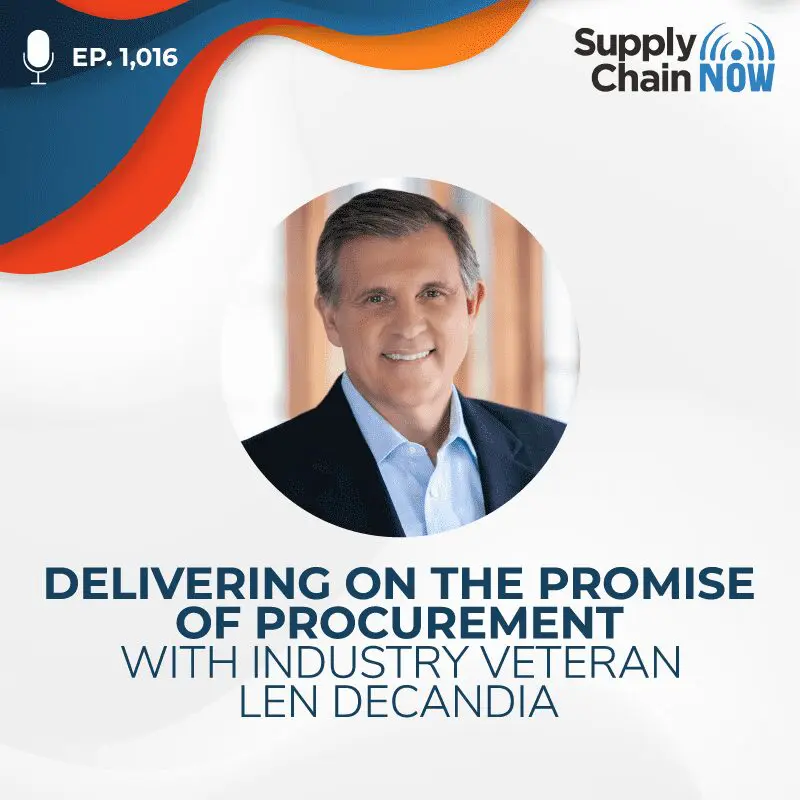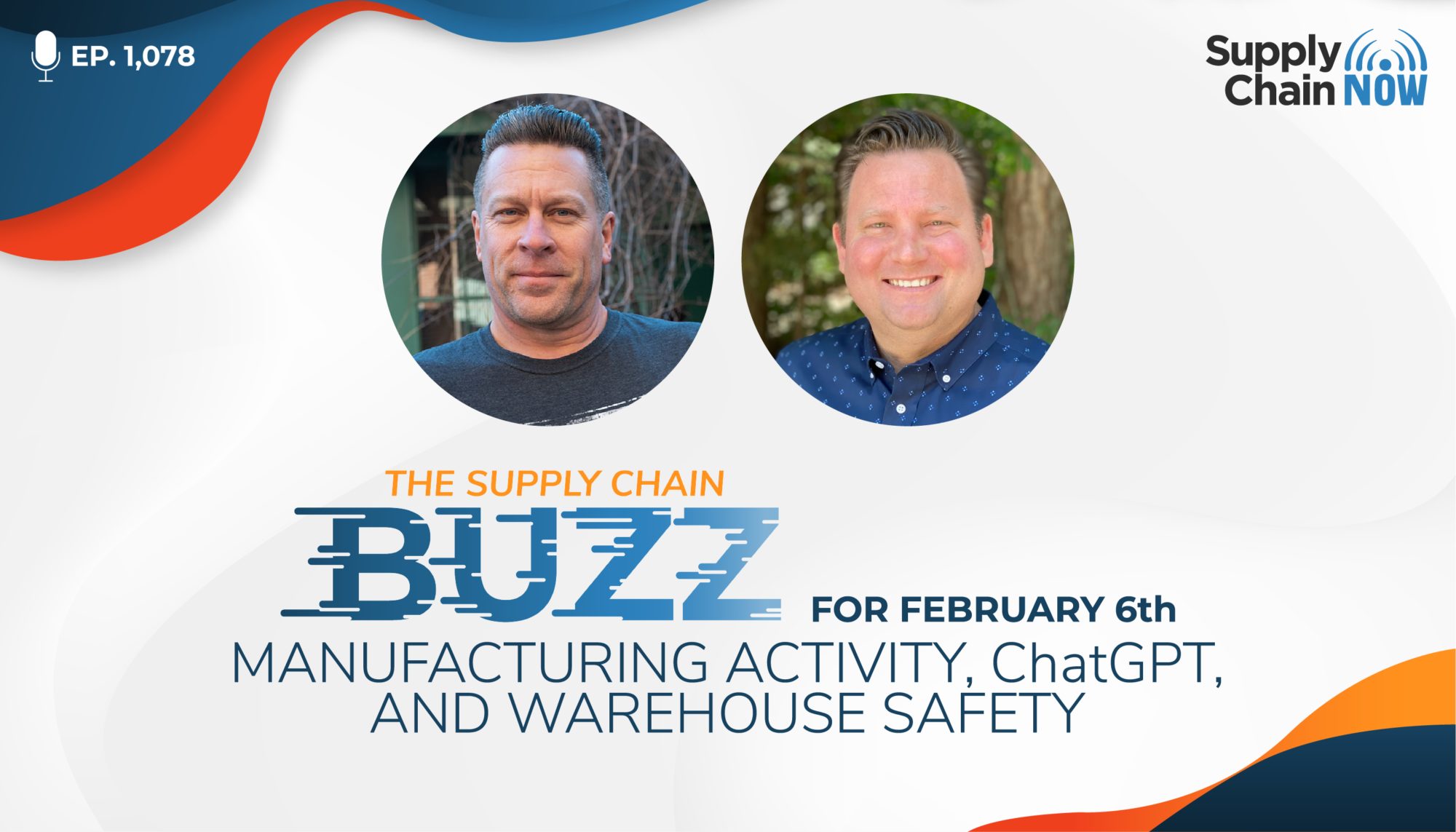
ChatGPT cannot represent new or innovative or even disruptive ideas because there isn’t enough data around those ideas. So even generative AI won't be able to create an AI that forecasts consumers and their influences. That will have to come from actual mathematicians.
-Greg White
Episode Summary
The Supply Chain Buzz is Supply Chain Now’s regular Monday livestream, held at 12n ET each week. This show focuses on some of the leading stories from global supply chain and global business, always with special guests – the most important of which is the live audience!
This week’s edition of The Buzz featured hosts Scott Luton and Greg White. In addition to taking on some of the hottest topics in business and supply chain, Greg offered up his thoughts on the Kansas City Chiefs’ likely performance in Superbowl LVII against the Philadelphia Eagles.
In this livestream, created in collaboration with a live Supply Chain Now audience, Scott and Greg discussed:
• Recent negative news from the ISM Manufacturing Report on Business and what factors may be responsible for driving three straight months of contractions
• Greg’s recent commentary on Amazon’s warehouse safety violations – and why the news isn’t as bad as it sounds
• The upcoming response from Google to OpenAI’s ChatGPT generative AI, which has taken the world by storm, and in some cases by surprise
• The tech skills that are in high demand from companies despite the frequent news of layoffs from this sector
Episode Transcript
Intro/Outro (00:03):
Welcome to Supply Chain. Now the voice of global supply chain Supply chain now focuses on the best in the business for our worldwide audience, the people, the technologies, the best practices, and today’s critical issues, the challenges and opportunities. Stay tuned to hear from Those Making Global Business happen right here on supply chain now.
Scott Luton (00:31):
Hey, good morning, good afternoon, good evening, Scott Luton and Greg White with you here on Supply Chain. Now welcome to the Buzz, Greg. How you doing?
Greg White (00:39):
I’m doing quite well. Seems like it’s been a minute since I’ve been on here, <laugh>.
Scott Luton (00:44):
Well, you’ve been, we, we’ve been calling it, you’ve been on assignment, uh, for a hard-hitting industry story. Is that right?
Greg White (00:49):
Yes. Uh, the su the supply chain of the Super Bowl
Scott Luton (00:53):
<laugh>. Yes, that’s right. So we gotta start there cause it’s Super Bowl week. You got the Chiefs and the Eagles, of course. You’re, uh, a longtime, uh, chiefs fan that is enjoying this incredible run. They’re on. Uh, your thoughts for this coming weekend?
Greg White (01:09):
Uh, uh, cautiously optimistic. I mean, I wanna say, you know, we talked about this before we came on. Um, every time we face a new defense, they say it’s the best defense in the league. This one might actually be, I, I didn’t believe ever that, and I think we talked about this too, that San Francisco was the best defense, cuz we stomped their guts out early in the season. But we haven’t had a chance to play the Eagles, and they don’t depend on defense because they have a great quarterback in Jalen Hertz. So, so, um, if we were playing in Kansas City, I’d be a lot more confident because the fans in Kansas City can melt down just about any quarterback, but it’s gonna be a relatively neutral crowd. Philly fans travel well, I’m sure. So if I was in Philly, I’d want to get out. So, and especially to Phoenix
Scott Luton (02:03):
<laugh>. Well, folks, hopefully, uh, y’all are gonna be, uh, getting with your friends and family members and, and enjoying the Super Bowl. And, uh, Greg, I’m sure you will too. And we’re gonna, we’re gonna, uh, hear all about it, especially come next week, uh, as we perhaps revel in. I don’t wanna jinx anything, but a certain Midwestern teams win. How about that,
Greg White (02:24):
Greg? So, uh, one of the biggest, um, chiefs fan clubs in America is right here in Atlanta. They meet at the Hudson Grill, and the grill has dedicated the entirety of its, I think, 1100 capacity to the Chiefs for the Super Bowl. Wow. No, Philly fans allowed,
Scott Luton (02:45):
Man, how about that? Well, we’re looking forward to a great game regardless. And hey, looking forward to a great supply chain buzz episode here today, where, as y’all know, uh, every Monday at 12 noon Eastern time, Greg and I walk through some of the leading stories, really, across global business, global supply chain, you name it. We’ve got a, a variety of news and development. Today’s gonna be a big, big tech, uh, uh, theme, uh, throughout the day as, as frankly as there is oftentimes when you talk about supply chain these days.
Greg White (03:12):
I wore my vintage tech t-shirt in this company existed, but it’s a good example of how to make 40 million, uh, not me, the founder.
Scott Luton (03:24):
Oh, I was about to say, sign me up,
Greg White (03:27):
<laugh>. Yeah, right. Sign me up
Scott Luton (03:29):
<laugh>. So folks, but get ready. We wanna hear from you as well, and we’re gonna, we’re gonna, uh, share y’all’s perspective throughout the hour. Um, on a side note and a very serious note, uh, of course, our team’s collective thoughts and prayers are certainly with the good people of Turkey and Syria and wake of those devastating earthquakes that took place, um, over the last, uh, 12 hours or so, Greg, just, uh, some, um, horribly heartbreaking imagery come out of, uh, the earthquakes, huh?
Greg White (03:54):
Uh, yes. Uh, 2300 people of perished already is Wow. Was the last I heard. And that was earlier this morning. So it’s a serious earthquake. Um, yeah,
Scott Luton (04:05):
So folks find ways, there’ll be plenty of organizations, nonprofits that’ll be getting aid that in that direction. So, uh, join us in, in, in helping to support those for sure. Um, now on a much, much, much lighter note, uh, I wanna share a couple programming items here. Um, Greg, over the weekend, we published our latest with that said, yeah. And we focused on, uh, black History Month, um, and really, um, one of my favorite parts of that newsletter focused on, uh, Dr. King’s, um, letter from Birmingham Jail. And, um, some folks may not know that that was his response to, uh, I think it was eight members of the clergy there in Birmingham, um, took a, um, um, a letter out in a local newspaper to oppose some of the protests that Dr. King was leading. And he crafted his response there in jail. And we’ve got that iconic image of him, um, you know, deep in thought behind bars, just, it’s just, I know it’s been a long time, but man, we cannot, can’t remember these lessons we’ve learned years ago. Your thoughts quick, Greg.
Greg White (05:10):
Uh, well, that, that incident, and frankly, Dr. King’s crusade in in particular, I think was just so perfectly founded. I mean, um, you know, take action, peaceful action. Right? Don’t, um, and, and, you know, take action to make yourself equal, right? Don’t complain about being unequal, which I think was an important statement for him to make. And the, um, it, it was the foundation of, of what he was trying to do. Yeah. So, cut. Way too
Scott Luton (05:49):
Short. Agreed. Folks, if you haven’t yet, man, read, um, read what he composed there in Birmingham Jail. It really is. Um, it’s, it’s captivating. Um, okay. Uh, also coming up, uh, in other programming news, uh, we’ve got a new webinar coming up, March 21st. Greg, this is different than so many others. Whenever I say that, I always think of that little skit on Sesame Street back in the eighties. I can’t remember that tune, but it pointed at one thing was different. This is a different webinar for us, right? We’re
Greg White (06:18):
Focusing one of these things is not like the other.
Scott Luton (06:19):
Yes, <laugh>. That’s it. Yeah. That is it. There’s a jingle there. I
Greg White (06:23):
Do know the same, but I, there is no way there.
Scott Luton (06:26):
Well, folks, uh, March 21st, we are focused on a great webinar session, five tips for creating effective, successful, uh, captivating digital content. And Greg and I are gonna be joined by our dear friend Ursula Ringo, with s a p and Brandy Boatner, uh, with i ibm, two legendary figures, uh, in, in my book, at least, I said, tune in for that conversation, Greg. Everyone, uh, whether you’re in Hollywood, whether you’re in global supply chain, who isn’t Creighton digital content these days, huh?
Greg White (06:56):
Well, and I mean, the webinar, it’s funny because that was sort of the genesis of supply chain now, right? Educational, and in, in many cases now, particularly for, I mean, when I think about the supply chain, particularly for service providers and technology providers, um, and even, you know, other, other, other kinds of services throughout the industry, it’s how they get their word out. Because, you know, the statement, <laugh>, early in my, in my career when I was selling printing of all things <laugh>, um, you wanna talk about competitive industry, walked into fellows office and he had a sign on his that completely enunciates why you need to get the word out and why it’s so valuable to have, um, industry experts to do that. And the sign said, I don’t know you. I’ve never heard of your company. Now what is it you wanted to sell me? <laugh>, right? And that’s, that is the plight of virtually every company out there. I mean, if you’re not s a p, I mean, even, even if even s a P is doing it. So if, if you’re not s a p, you have almost no voice. And this is a great, the webinar is a great opportunity, but you gotta do it the right way. And we have done it, what, 25 or so times in the last year. So let us show you how. Yeah,
Scott Luton (08:16):
Well said Greg. Well said. And man, if I could be a fly on the wall back in those days, uh, <laugh> when you’re rep the printing industry, but we’ll save that for another show that
Greg White (08:26):
Dude, read me the riot out. I’ll tell you what, it made me a better salesperson and I got the business. Believe it or not, I still don’t know how, but <laugh>
Scott Luton (08:36):
Mean
Greg White (08:37):
People like me. I don’t,
Scott Luton (08:39):
Oh, <laugh>. Well, everybody likes Greg White. So y’all, folks, y’all join us on March 21st, I promise you, you’ll walk away, uh, informed, uh, educated, uh, entertained. Of course, we welcome your feedback.
Greg White (08:50):
Yeah. And you know, we got,
Scott Luton (08:55):
Greg, before we get into our first news story, let’s say hello to a few folks, uh, across the ecosystem here. Josh, good morning from Seattle. He also, uh, congrats to your hot Spurs, Greg. I think they must have won over the weekend.
Greg White (09:06):
Yeah, thank you. I’m not as attentive a fan right this moment. Um,
Scott Luton (09:12):
Kinda preoccupied,
Greg White (09:12):
Yeah, a little bit preoccupied right now by the more proximate football. But, uh, but also, Josh, how about a weather report
Scott Luton (09:20):
That’s right
Greg White (09:21):
There? So,
Scott Luton (09:22):
Uh, Katherine, uh, over on YouTube, happy Buzz Day to you as well, folks. YouTube’s a great channel, easy channel. You know, you may not have one of the other social channels that, uh, that we live stream lacrosse. YouTube’s easy and easy for everybody.
Greg White (09:35):
And where a ton of people are, are taking in their podcasts too. I mean, that’s right. It’s kinda like the old days when you could peek into the radio studio right? Where you can see them just talking into the mic. I still, I’m not sure I understand or get the attraction there, but that’s what people are doing. It’s pretty cool.
Scott Luton (09:57):
All right, so I’m gonna, you, you have, you’ve kind of triggered a memory for me and my mom is with us here today, Lee Luton. Hello from Aiken. And go chief, I told you Greg. Uh, thanks
Greg White (10:06):
Mom.
Scott Luton (10:07):
<laugh>, great to see you, Bob. Well, so, um, my dad used to be on the communications committee of our church growing up, and they would take, uh, um, the, the previous Sundays sermon, and they’d get the tape right to do all the editing, and there was a real tape. And then we would take that to the local radio station, uh, the physical tape, and then they’d play that, um, I don’t know, a few, few days later. And I would be sent in as an Aaron, one of my chores, uh, occasionally with the tape and get, and I’d walk right past that window you described with the DJs in there, and I’d hand it to the program director. And I had forgotten about that until what you just shared. So, who knows, uh, maybe I was born into, uh, being a communications, uh, and, and digital media guy. I don’t know what, Greg, what do
Greg White (10:57):
You think? Oh, unquestionably, <laugh>. Yeah, absolutely. <laugh>. So I had a job oh, um, where I worked at a radio station in our window into the studio, faced the parking lot, so people would come out and, um, try to entertain us by doing stuff in our parking lot while on the air, really? And yeah, and it was funny. So, um, I got in trouble with Rod Stewart’s promoter, the singer Rod Stewart.
Scott Luton (11:24):
Oh,
Greg White (11:24):
Really? Because he, he canceled a concert, uh, purely out of inconvenience, I think, for him or something. And everyone was angry about it. So I was like, Hey, if you wanna protest Rod Stewart come down to K i c t 95 <laugh> and people, they painted his face on a soccer ball and kicked it around the parking lot. Really? Yeah. That’s, that’s one of the things I almost got fired for. I got fired for two other things, but <laugh>,
Scott Luton (11:53):
Man. Yeah, I could see you. Uh, you had a knack. I can see you being a DJ Greg ramp. We’re gonna have to sit down and, and really interview you on all those, that earlier part of your journey.
Greg White (12:05):
Those were the manual boards too, man. Right? Right. The analog boards. Woo.
Scott Luton (12:10):
One last thing. And, and folks, uh, sorry to nerd out on, on some on memories here, but you know, speaking of that age, uh, my dad and the communications committee would reuse those tapes. And they had a device, and I, I don’t know how the anything worked, but they plug it in, it made this, uh, sound, and, and they would, they would erase those tapes with some kind of like magnetic device. Yeah. So they can reuse them. So we’ve come a long way, goodness gracious, since then. How about that? Um, okay. Uh, and good. I know we’re getting behind. Uh, folks, welcome everybody. Brandy’s in Houston, great to see you, Jonathan from Louisiana, great to have you here. Uh, Chris Stout, uh, from Chicago, the great to see you, Chicago. Chris, great to see you. Uh, Gino is back with us. Uh, good to see Mr. White. I agree with you,
Greg White (12:57):
Gino. Yeah. Good to be black back. <laugh>
Scott Luton (13:00):
<laugh>. Gloria Mar is a big Eagles fan. Fly. Eagles fly. Hey, good luck to your team. Uh, as always, we dropped a lot of links. Not
Greg White (13:08):
Too good luck, though. True.
Scott Luton (13:09):
That’s right. We dropped a lot of links, folks for checking out those things we mentioned earlier. Uh, Tom Rafter, good to see you here today. Congrats on you being, um, uh, making the list that you were sharing earlier today. Uh, and it is sunny in Seville, south of Spain. All right. Wonderful. Uh, oh. Josh, 44 and rainy up there in Seattle, seven degrees Celsius.
Greg White (13:32):
Look at him using the metric system and everything. Thank you, Josh.
Scott Luton (13:36):
He’s
Greg White (13:36):
On it. He knows who our audience is.
Scott Luton (13:39):
<laugh>. That’s right. All right. So, Greg, you ready to get to work?
Greg White (13:43):
Yes.
Scott Luton (13:45):
All right. Let’s get to our first story here, folks. I wish I had better news, but, uh, we’re gonna give you the news regardless of what it is. We wanna start with my beloved industry love manufacturing. Um, as reported by Reuters, the US manufacturing industry, uh, cons, uh, contracted rather, once again in January. So according to data from the Institute for Supply Management, a K A I S M, many, many y’all folks may be familiar with that. The manufacture industry has contracted three straight months, and the numbers in January reflected its worst number since May, 2020. So some, uh, almost three years ago now. Wow. As part of the data, I a m also publishes a new factory orders metric, which has decreased five straight months now. So some of the usual suspects are at play, for sure. Lessening demand for goods. Everybody’s heard that a thousand times in part fueled though by those interest rate hikes. Mm-hmm. <affirmative>, uh, the stronger dollar, of course, has an impact on exports, making them less competitive in the, in the international market, amongst other things. Greg, love to get your take on what we’re seeing maybe in the manufacturing industry.
Greg White (14:48):
Well, uh, you know, a lot of, a lot of this is driven by automotive, of course, and they have caught up with demand with a vengeance, um, and demand has tailed significantly. And I think that’s, uh, you know, that’s important to note is that, uh, whether we’re gonna face a recession, uh, or not, generally in the economy, people are starting to treat it like that. Mm-hmm. <affirmative>, I mean, it was long ago that the upper crust slowed their spending pretty dramatically. But that’s such a small portion of, um, of commerce that it didn’t make a huge impact. But you can see it every day. Now, people are tired of $13 eggs, let’s just put it that way, <laugh>,
Scott Luton (15:28):
Right?
Greg White (15:29):
And, um, and cars had gotten quite expensive. Uh, I had seen even before the end of the year discounts, right? A advertisements for discounts on cars starting to come back. And of course, the lead times for European cars are significant here. And, and Asia, let’s just say foreign cars are significant to get here. And as they catch up and demand tales, it’s the classic whiplash effect. Um, and it’s not just cars, right? It’s all, all sorts of things that are, um, that are facing the downturn.
Scott Luton (16:02):
So, yep. Agreed. Uh, by the way, folks, uh, speaking to those $13 <laugh> eggs, Gregg mentioned, we’ve got a great episode we’re gonna be publishing on the podcast, uh, later this week, or maybe early next. Uh, I interviewed someone that spent almost 30 years in the food industry, including a big chunk of that at Whole Foods, where, um, and he is in the know You, you won’t believe everything that goes into the egg industry, all the segmentation and, and the layering. So stay tuned, y’all check out Supply Chain now. Forget your podcast from, for that episode. Um, speaking of helpful perspective and expertise, Greg, we’ve got a great show coming up, uh, Wednesday. We were just talking about the manufacturing industry. Mm-hmm. <affirmative>, I assume this great work, um, publishing data, data-driven perspective there, and what’s going on. Well, similarly, US Bank publishes outstanding data and perspective every quarter called the Freight Payment Index. And Bobby Holland with US Bank and Enrique Alvarez with Vector Global Logistics are joining us to talk about what’s going on in the domestic freight market. Greg should be a great conversation, as always, right?
Greg White (17:05):
Yeah, I mean, the, you know, the data that they compile is impeccable, and of course, I think they do, what is it? Over 30 billion worth of transactions just on, uh, domestic freight. Wow. So, it’ll be really interesting to see how things have changed. Uh, if I recall correctly, it wasn’t that long ago that we were saying, no, we’re not in a freight recession. In fact, uh, a few US ally, we’re not in, and we are not headed for a freight recession. Right? So, again, not an economist <laugh>, but Right. As often as they’re so, um, which is ne almost never <laugh>. So, um, y yeah, I think it is gonna be interesting because this will be something that I, I think, uh, signals a bit of, you know, a bit of, of a balance in, in the economy, right? Right. I think we’re coming back to sanity in, in some regard.
Greg White (18:08):
We’re not up against big numbers from the pandemic, right? Um, there aren’t all of these additional restrictions and things like that. It’s more back to the usual things. But that doesn’t mean that the disruption ceased because, and I think that’s important for people as they watch this next, uh, presentation around the freight payment index, is that disruption is supply chain, right? Supply chain is disruption. And it’s important to understand that the disruptions that we talk about very often occurred before the pandemic. It’s just that nobody gave a before the great toilet paper crisis, right? Of 2020, right?
Scott Luton (18:48):
Oh, man. Um,
Greg White (18:50):
Nobody cared about supply chain. And, and frankly, supply chains were, um, a able to kind of shield themselves by not being known,
Scott Luton (19:00):
Ask Good point.
Greg White (19:01):
But it’s a different world now. It really is a different world. So it’s, it’s a new perspective more than a new age of disruption, though. You hear a lot of pundits out there saying, there’s more disruption than there’s ever been. I mean, come on guys, it’s always been wars. That’s right. But ever, ever drunk or whatever that ship was called, was never, was not the first ship to get stuck in the Suez Canal. Right? We’ve had freezes before and since in Texas that have impacted demand. All of those things have always occurred. Yep. Right?
Scott Luton (19:35):
World has certainly changed permanently in many regards. Makes me, uh, always, always brings you back to the great philosopher, Michael. Stipe is the end of the world, as I know it, <laugh>, and, and I feel fine. Um, so, hey, a couple, uh, speaking of eggs, eggs got a lot of attention right now. Gloria Mar Sa says, when we thought that Easter during Covid was bad, hello? $13 egg carton that is making this Easter the worst. Now, get this and
Greg White (20:03):
What’s our alternative plastic eggs?
Scott Luton (20:05):
Well,
Greg White (20:06):
So the, at least they’re reusable,
Scott Luton (20:11):
Right?
Greg White (20:11):
Plastic eggs are reusable.
Scott Luton (20:13):
Well, Amanda says, we might be hiding potatoes for the kids, uh, this year, uh, for the kids. Um, and Josh, the only constant is change. Well said. True as always. Okay, so f folks, join us Wednesday 12 New Eastern Time. Uh, the team has dropped a link there, by the way, big thanks to me and Catherine for making production happen. As always, Greg, we’re gonna move right along. Uh, we have got an interesting, i, I think, interesting story here. You know, your popular supply chain commentaries, which you do every Monday, Wednesday, and Friday. This, this generated a lot of, um, uh, a lot of, uh, feedback on this one. Yeah. So we’re talking warehouse safety as Amazon is once again in the news for safety violations at its facilities. Greg, tell us more.
Greg White (20:57):
I’m gonna say something that, uh, people probably haven’t thought of in terms of this. This is supposed to be, uh, an expose, sort of slam article on Amazon. But frankly, for the quant, for the value of the penalties, it’s a relatively low, uh, percentage, which means I think that Amazon is actually doing better. And they’re, they’ve committed 300 million to improving safety in their warehouses. And a lot of that includes automation. So, you know, they have, they have several warehouses that are virtually lights out. They’re 2 million, 2 million square foot facilities where six human beings work, and the rest is done by robots. So, of course, safety is a big concern. Um, I’m not saying by the way that Amazon is handling it completely or as even as, as impactfully as they should, but I feel like they’re going the right direction. And the truth is, the generational change that we’re going through in, in, um, fulfillment and warehousing in general, is gonna contribute significantly that to that.
Greg White (22:08):
Because your, our generation gen, uh, why millennials and, and Gen Z, they don’t want these jobs, right? Because they are dark, dirty, dangerous, and dull. And, um, and even if only marginally dangerous, right? Why would humans continue to do things that automation can do faster, more effectively, cheaper in often cases, more reliably for sure. Cause robots don’t get sick, um, or stoned. And, um, it’s a warehouse. I mean, it happens. <laugh>, you’ve worked in a warehouse, um, or hungover, let’s just call it. Okay? Um, never called in hungover, but I have wanted to <laugh>. Um, but I think that there’s a, there is a, we’re in a, a good place to create a transition that allows human beings to elevate their performance by doing things that are either automation assisted or that are completely outside of automation, and let automation do the dark, dirty, dangerous, and dull jobs in a warehouse.
Greg White (23:17):
So, um, I know this is gonna shock you. I’m, I actually applaud Amazon for the significant effort that they’ve put into it. They’re trying to cut their cut, um, injuries by 50%, uh, by 2025. Yep. So, and clearly considering the number of workers and facilities that they have, um, that’s, that’s gonna be a significant impact because for these types of fines, which are relatively low, they must not be having many incidences, right? Is all I can say. Now, look, we don’t need to pretend either, and this is part of the article that I, and I addressed this in, in my commentary. We don’t have to have to pretend either that Amazon or any other company addresses safety out of altruistic purpose. But now, I mean, you can see it’s not even about the dollar impact. If you look at this article, the dollars are minuscule, but the impact to the brand equity, right? And the brand, uh, reputation is substantial. So if only to protect their brand reputation, which is worth billions, maybe trillions of dollars, right? Um, they will do it. And as I close the article with, and Kelly Barner and I and others had a discussion about, we don’t care why you do the right thing, just do the right thing. Yeah.
Greg White (24:43):
Right? And, you know, if it, if it improves their profit and improves the livelihoods of their workers, then go for it. As long as it improves the livelihood of the workers and the safety of the workers, I, I think we should applaud it.
Scott Luton (24:56):
Yep. You know, uh, you mentioned the 300 million investment that Amazon committed to or announced, I think it was June, 2022. Uh, and their goal of trying to reduce injuries in half by 2025, I think him hit on both of those. I didn’t realize the other point of this article that, uh, by supply chain died great, great, great work they do, um, is where they were in spring of 2022. Now, this study was put together by labor unions. We all know the angles involved there, but still,
Greg White (25:26):
Right. That’s an excellent point,
Scott Luton (25:28):
Right? They reviewed OSHA data and they’re finding showed that Amazon’s injury rates at its warehouses were about twice that of non-Amazon facilities. So to Greg’s point, they’re putting, you know, they’re putting, taking action investing, and we’ll see, we’ll see the progress they make over the next, uh, few years. So, good stuff there.
Greg White (25:44):
We have to acknowledge that because the unions are pressing hard on Amazon to be completely unionized. That right there may be a little bit of cognitive bias to no doubt, this report. And of course, there is an agenda behind it, regardless of it. Yep. Just remember folks, there are lies. There are lies. And then there’s statistics
Scott Luton (26:08):
<laugh>. Oh boy. All right. So moving right along. Moving right along. And folks, again, we’re dropping links to all of that, including, uh, links to Greg’s Amazon commentary. Again, you can find Greg on LinkedIn every Monday, Wednesday, Friday. Uh, and we’d love to get your take. You know, those comments are fooled with gold golden nuggets.
Greg White (26:28):
They are. I mean, you can learn as much from the commentary, from the comments, frankly, as you can from my commentary. That is an absolute fact.
Scott Luton (26:37):
That’s right. That is not a lie. Okay, <laugh>. So let’s switch gears. So I’m looking forward to really picking, you know, we’ve got a, um, Greg brings a ton of tech expertise to the table. Um, and not just here every Monday at 12 noon all the time. Uh, so our friends at cnet, uh, Greg say Google will be rolling. Google will be rolling out its answer to a little, little thing y’all may have heard of by now. Chat, G p T. So Google’s <laugh>, Google’s rolling out it’s alternative, uh, competitor to that in next few weeks. Now, if you’ve got a pulse, as I kind of alluded to, you’ve undoubtedly heard all about chat G p t just about every hour of the day. And last few months, it was launched. Little background here. It was launched by open AI in late 2022. And the pace of adoptions and applications have really been dizzying.
Scott Luton (27:26):
It’s been used to pass Wharton n b a exams like our friend Enrique Avarez. I’ll have to get his take on that. Uh, judges, so, you know, judges in courts have used chat G P T to draft your judici judicial opinions. Even the Associated press, Greg has recently used chat G P T I wish that was a little easier to say for me to draft a state of the union speech to see how AI would communicate in contrast to the leader of the free, free world. Um, now one last thought I’m gonna get looking forward to getting your take here. Google has been navigating a more challenging landscape recently, and company leaders say that investments in AI is a big part of Google’s future, such as it’s Lambda. Uh, also, uh, that is the language model for dialogue applications, AK Lambda. All right. So Greg, we, we, you know, let’s cut through all this, you know, PR and executive speak. What’s going on with chat G P T and Google’s efforts to offer an alternative?
Greg White (28:25):
Yeah. Well, I think, uh, first let’s acknowledge that only weeks ago did a Princeton student, uh, create an algorithm that can identify AI generated text, which, ah, must be really smart, because I’ve seen some chat G p t text, and it is fluid, it is, um, concise. I mean, it is, it is very well written, much better written than I am spoken, um, or written, by the way. And, um, and I have not used it, which should be obvious by <laugh> looking to anything I’ve written. Um, and, and now open AI has come out with something that can identify that as well. So that’s a pretty smart move on their part, right? Because what happened was college students flooded to cheat on their exams and, and use AI to write, write these articles. Um, and of course, Google, um, seeing the popularity of this has come out with this, I hope this is, uh, more like Gmail than, uh, whatever Google’s social network was, which was an abject disaster.
Greg White (29:43):
Mm. Not only from a perform, um, not only from a, uh, uh, assimilation by the, by humans, but also it was a terrible, terrible system. So I hope that Google’s is, is much better. But the truth is, the real genius behind this is this thing called generative ai, where the, the ar the AI can learn so fast from reference materials that it can be as knowledgeable as a human, um, in a matter of moments after, after read, reading, whatever knowledge, articles, whatever is out there in cyberspace, because it can literally go through everything and identify the most salient, most salient, or at least the most popular points, because it’s already been being dinged for being highly biased based on, on some things. I’m not sure exactly what, but highly biased based on the predominance of a certain type of message out there, where as the secondary message may be more accurate or balanced, right? Mm-hmm. <affirmative>. Um, so there’s, there’s a, there’s a lot of work to do there, but the, this generative AI learns so very fast that, particularly in supply chain, this allows us to put things together, right? If a truck got to Detroit full of cigarettes and left Detroit empty of cigarettes, it could e it may be able to fill in the blanks as to who offloaded the cigarettes in the middle of the night, and where might they have gone to, ah,
Greg White (31:15):
<laugh>. Um, so I mean, seriously, I mean, that’s a fun, but attention getting example, that’s exactly the kind of thing that it can do, right? It could say that these goods are predominantly made, or this cotton is predominantly, um, harvested in China. China predominantly, or almost solely uses slave labor to do that. Ergo this is slave labor product and therefore should not be shipped to the us or cannot be, frankly, shipped to the US cause custom standards in the US So it can start to identify those kind of things in your supply chain, and not just, not just bad actors, right? But who might perform less effectively or more effectively, or filling in gaps if you have, if you have a sh a ship point here and a receiving point here, you must have a transportation facility or, you know, means in between those two, right? What is that? And it can start to infer what that is learning. Maybe even nail it, right? Oh, it’s Billy Bob’s trucking. <laugh> is who goes between these two points?
Scott Luton (32:26):
Well, it sure will be an interesting time, uh, in, in the weeks and months to come as we see more and more, um, artificial intelligence applications and meaningful, real AI driven solutions to problems, uh, old and new, uh, all across global supply chain. So I appreciate your take and I wanna share a couple of, um,
Greg White (32:45):
Jonathan’s particularly. I’d love to address that.
Scott Luton (32:48):
Yeah. Uh, let’s see. We’ll, we’ll get there. T squared holds down the Fort force on YouTube. Ain’t nothing new under the sun. He says, great to see you here. Uh, Tom’s used chat and G P T, and there’s amazing, initially now because of its popularity, it’s heavily throttled leading it to far less success, uh, useful.
Greg White (33:04):
And if you’re not already a member, you can’t join, right?
Scott Luton (33:07):
Right. Uh, let’s see here. Um, uh, T squared chia seeds are the egg substitute if you’re into that approach. All right? Uh, Gino puts some, an interesting take, uh, there, uh, a link there, y’all. Check that out. Jason, great to see you, Jason. I’ve seen professors incorporate chat G p t into their syllabi to encourage students to familiarize themselves with AI technology, but not to rely on it, and always fact check. Jason says, love that. And then there was one that you, um, Jonathan here, Jonathan says, maybe tongue in cheek, maybe it’ll get my forecast right,
Greg White (33:43):
<laugh>, so it won’t, and, and lemme tell you why that is, because it can only refer to the, um, knowledge that exists today. And I think we all know that that is the fatal flaw of forecasting today, as we are forecasting the wrong thing using ancient methods. Literally, literally ancient methods. I mean, the most recent methods we’re using have been adapted from forecasting methods from most recently, 1903. That’s 1,903 ad. So, um, while there are adaptations, of course, that have have advanced, we’re still forecasting the wrong thing. We’re forecasting items based on history, not forecasting those who will consume those items or select those items based on the influences that cause them to do so. So all you’ll get is a faster, horrible forecast, <laugh>. Um, so, and I think that’s a good point to the point that I made earlier around, it can only select from the text that exists. So chat, g p t cannot represent new or innovative or even disruptive ideas because there won’t be enough data around or enough, um, commentary around those ideas to adapt that. So even generative AI won’t be able to create an AI that forecasts consumers and their influences. Mm. If that will have to come from actual mathematicians. There are very few jobs where we can say, um, humans will never be replaced. But that sort of innovation seems to escape ai, at least for now. I won’t say never. At least that’s right. But at least for now,
Scott Luton (35:27):
At least for now. And folks, anytime we talk neck deep on ai, it always remind, brings me back to the great movie from 2013 called Her with Joaquin Phoenix, if you haven’t seen that. Oh
Greg White (35:39):
My God,
Scott Luton (35:40):
Yeah. And the ending is just so it’ll make you think. Um, and Gino, thank you for dropping that link. I think I read through that earlier today and it was a good read per, uh, Tom, his comment above. So y’all check out that link and I’d, I’d forgotten about this. Greg, you mentioned Google’s social media. I’d forgotten, as Tom pointed out, Google plus <laugh>. I never used
Greg White (36:00):
It. Yeah, that was the one. Yeah. Awful. Tom. Tom, did you ever join that? I mean, I think I tried, but I, it just, it never took off. Did you, Scott, did you ever join? No,
Scott Luton (36:10):
I don’t think I did. And, and it
Greg White (36:12):
Never really took off.
Scott Luton (36:14):
I mean, it was kinda like the clubhouse on some similar notion, kinda like clubhouse. I think I was on one clubhouse, uh, my, the entire time, I think Paul Noble from Baron, one of our dear friends invited me. And, uh, it was all the rage. I mean, it was everywhere, everywhere. You turn around for about two weeks and we don’t hear it so much.
Greg White (36:32):
You know, that Twitter put out a version of Clubhouse, um,
Scott Luton (36:36):
Ah,
Greg White (36:37):
I forgot what they call it. Twitter rooms or
Scott Luton (36:40):
Really? Yeah. Well, Tom says he did join and it was a hot mess.
Greg White (36:46):
I, I mean, <laugh>, I couldn’t figure out how to make it useful. And it just never, never reached an adoption level that that would allow, allow it to evolve. Yep. I mean, and it’s common, by the way. Google has a history of doing sort of Johnny come lately, half-assed projects like that, that never get off the get off the ground. But then again, they’re also making a pile on or bird as says.
Scott Luton (37:16):
Uh, um, alright. So folks, by the way, we’re gonna move on to the next, uh, story here. Let us know any creative applications especially. Does it really work with impact that you’ve seen chat G P t, uh, applied to? I’d love to get your thoughts, what you’re seeing. Mm-hmm. <affirmative>. Okay. So Greg, we’re gonna stick with tech here. We’re gonna stick with tech. Um, cause I wanna pick your brain here. And, and of course, we’re all very familiar, painfully we’ve got many friends in the industry that have been caught up in these rolling layoffs that have, uh, impacted various aspects of the job market, in particular the tech industry. Yeah. But hey, there’s some good news, um, in this article, Gilley Linsky, I think, I think I said that right? At cn, CNBC says that despite what you hear, there are seven tech tech skills that are in high demand. I’m gonna list these. And I got a question for you, Greg. Full stack development, mobile app development, web design, ux UI design, c m s, content management, system development, manual testing, and script and automation. So, Greg, out of all those, you’ve been there and done that, uh, built companies, sold companies, all focused in the tech industry. What do you think is the hottest tech skill in demand? And maybe it was something that they left off this list.
Greg White (38:33):
Uh, I would say it is by far full stack development. And if you can get full stack development, really, really good senior full stack development for 135 bucks an hour, do it. Um, because, you know, the, be the benefit of contract contractors is the flexibility. If you need ’em today, you know, and you don’t need ’em tomorrow, you use ’em today and you don’t use ’em tomorrow. And they also get economies of scale because they’re not just working for you, for you, which apparently is what a bunch of the laid off workers were also doing. They’re not just working for you, they’re working on their YouTube channel and they’re working, they’re working with other companies. So it, it’s a relatively small impact to them. Um, and a relatively good savings still oversees the usual places. India, Argentina, Eastern Europe, those are still far, far less than $135 an hour.
Greg White (39:26):
Um, but if you’re, you know, if you’re, depending on what you’re looking for and maybe you’re looking for someone more permanent, that’s a great place to look for the rest of these. Frankly, if you’re paying $250 an hour for web design, you are getting ripped off. Wow. Um, web design is, uh, the, uh, well, let me, let me discern that. They say web designers build websites. So if you’re getting a website built for $250 an hour, absolutely overpaying. Now people who design and, and create the wire frames and then create the, the design language for a website, that’s different. But that’s a shorter project. Mm-hmm. <affirmative>, absolutely. Do not pay $250 an hour for, for web design, for the actual building or coding of a website. There are too many templates out there. Um, and you, you almost would never start from scratch for a website.
Greg White (40:24):
Now. Mm. So, um, UX and ui, I don’t know about the rate, Scott, but don’t you wish more people would use UX and UI design? Absolutely. There’s some websites out there, and I’m not saying ours is, is gonna win any awards, but the, uh, you know, there’s some websites out there that you really, really could use that. And that to me, because it represents your brand identity, is really, really important. So, um, you know, some of the rest of these I think are, uh, you know, manual testing, by the way, jumps out at me because that’s the cheapest thing you can get done in India, Argentina, or, or, um, Eastern Europe. And it’s certainly not 50 bucks an hour. So manual testers are the people who literally go through on the keyboard and try a bunch of combinations of keystrokes to try and break your system, really.
Greg White (41:22):
So, yeah, it is not a high brow job, and it is definitely not 50 bucks an hour. Think of all of you people out there. Think about if you broke down your salary or maybe your hourly rate or, or monthly rate, however you bill or are paid. Um, do you get paid 50 bucks an hour? I doubt, I doubt that many people do. And somebody who’s just thinking around on a keyboard, absolutely not. Hmm. They’re, again, there are much better places to have that kind of work done. So I, I do believe that these are all things that are, um, in high demand. Some of these are kind of sucker rates because they are, um, you know, big companies who are finally coming in to, you know, into the web or into, um, a digital transformation space. And you can take advantage of them because they’re used to paying high prices, right? Or the jobs are, are brokered by the big four accounting firms where they charge high prices and then they step on it, step on the whatever they’re paying, the, uh, sorry, they add, they add step on it, they add, uh, you know, a, a cost on top of what they’re paying these very talented people as well. So, um, a lot depends on your situation, but that’s the thing that really jumped out at me, is some of these rates are just unbelievably excessive for, um, gig workers.
Scott Luton (42:49):
Yeah, I agree. Especially if you look at, uh, if you’re on Upwork and Fiber and, you know, comparing some of what you see out there, even real vetted, um, yeah. Candidates with the rates we saw in the article. So let’s get a lot of good stuff there, Greg. Appreciate your perspective. So, uh, and again, y’all can check out the link, don’t take our word for it, y’all. Check out the link and let us know what your take is here. Um, and speaking, Tom, we’re talking about what chat G p t does. I think it’s just those letters together. G p t, they give me, uh, uh, mouth Olympics
Greg White (43:25):
<laugh>. Yeah, no, you’re right. It’s hard to say fast for sure.
Scott Luton (43:28):
Um, yeah, especially fast. Uh, but Tom says, Hey, you can use chat g p t to code a website for you. So check out that link. Um, alright, so, Greg, man, we, we are just, uh, it used to, when there’s two of us, we’d go 10 minutes over easy. But we’re gonna give our audience a little bit
Greg White (43:47):
Of, we’re getting a lot more efficient, I think.
Scott Luton (43:49):
I think so too. I think so too. Uh, but we’re gonna give our audience a few minutes back. Uh, but I wanna touch on one thing before we leave, cuz folks, if there’s any, there’s so much need out there, uh, across industry. And, you know, we talked about, uh, uh, the good people in Turkey and Syria that are undoubtedly are gonna need our help already. Uh, so find vetted nonprofits really critical. You know, make sure you vet anytime you’re given money and resources. Make sure man, the, the, the group is, uh, it’s got a, uh, a pristine reputation for the aid going to where it needs to go. Uh, along those lines, uh, talk about a vetted group that Greg and I know deeply, especially the leaders here, uh, with Vector Global Logistics, Maureen and Enrique and Christie, their whole team. This thing has been, uh, re regardless if Ukraine, the Russian invasion of Ukraine has been top headlines or those days, unfortunately, where it slips down, you know, you don’t hear, you go hours without hearing about it.
Scott Luton (44:46):
That hasn’t impacted these folks. Constant leadership outcomes, focused leadership, one iot, ota. Now we’re really proud to, to support this, to, um, be a part of it and certainly promote what they’re doing. And Greg, this leveraging logistics for Ukraine. Uh, it’s been around, I think they launched about eight, nine months ago. Over 670,000 pounds of humanitarian aid has made it to folks desperately in need. Wow. So the next planning session is tomorrow February 7th, 11:00 AM Eastern Time folks, we got link in the, in the chat. You don’t have to commit anything. You don’t have to sign anything. You don’t have to give anything. You can show up, just get a sense of what’s going on. But I can tell you, I can personally vouch for what Vector does in with this initiative and many others. Uh, and we need, we need more Vector global logistics across, uh, the landscape. Greg, your thoughts here around, uh, the need, the initiative, Enrique and the team
Greg White (45:42):
Impact. So I just did the math real quick. 16, that’s 16 trailer loads at 42,000 pounds a trailer load. So 1653 foot trailers Wow. Worth of goods. So now they’re, it’s going in 20 or 40 foot containers, of course, cuz it’s going by ocean. But, um, still that’s a ton of stuff and that’s a huge impact for basically a, a bunch of like-minded professionals who kind of cobbled together to, um, you know, to get, get these goods to these people in need. So yeah, I would say just observe it. Just sit in and listen. I mean, even if you’ve already given or you feel led to give or you don’t, and you’re just curious, just pop on and listen because it’s a really, uh, fascinating discussion. You never know. You might just have a groundbreaking idea. And, and if that’s all you contribute, that’s perfect.
Scott Luton (46:40):
Yeah, well said, well said. Uh, and folks, we got the link right there. It’s easy. Uh, you, you do need to register for the monthly session, but again, they’re not gonna hound you, they’re not gonna twist your arms. They’re doing it and they’re leading it. Uh, so y’all can just be a part of the conversation and soak it in. Greg. Um, I know that you, uh, not that you support a lot of great efforts out there and, and you’ve been, you’ve given me advice over our time working together about how to do that due diligence. Yeah. Um, when, you know, whether it’s related to the devastating earthquakes or this one, or all the, you know, nonprofits out there, how would you advise folks to do their homework?
Greg White (47:21):
You saw me do this, didn’t you? <laugh> Charity navigator.org is a really, really good one. There are others, but Charity Navigator does great job scoring. Um, you know, they’re, they are the best of the best. Uh, put 86% or more of the donations to work for the people in need. That means they keep their administrative costs low. It has become quite the thing out there for, and it’s actually become a thing from people on YouTube to create your own 5 0 1 [inaudible] [inaudible] and pay yourself a whole bunch of money and give a little money away. But these, those can be exposed very easily by going to Charity Navigator and understanding that rating. Um, they do a rating as far as overall efficiency, and then they can report all the way down to the dollars that are, um, that are given versus received. So, uh, every legitimate charity has to fire file a Form nine 90 with the, the Internal Revenue se service and, um, so that all the, all their information is out there.
Scott Luton (48:28):
Wow. Y’all check that out. It’s a great site. Charity navigator.dot org.com. I can’t remember. I’ve been using it for
Greg White (48:34):
I said org. It isn’t dot org. I’ll check. Keep talking. Scott. Uh,
Scott Luton (48:39):
<laugh>, first off, thank you, Nathaniel. Uh, he says, thank you for the chairman, the content you put out super helpful as a college student studying this field with Nathaniel. Thank you for feedback. Let us know if you’re, yeah, if you’re open to it, where are you matriculating through, try to say that word 10 times fast. Where are you going school, uh, and what do you wanna do in supply chain? I’d love to kind of hear some of your responses there. And Gino comes through, I should have known it was a acronym for something generative. Pre-trained Transformer is what the course, its g p t stands for. Thank you for that. Gino. Uh, Greg, I think you were looking up, uh, that site.
Greg White (49:17):
It is.org charity navigator.org.
Scott Luton (49:22):
Check that out. And, and a little side note, sometimes if the nonprofits are newer, um, uh, there might not be as much information, you’ll have to find some other ways of doing your homework. Right. Greg,
Greg White (49:33):
An excellent point. You can always ask them for their nine 90. So, um, if, if you don’t go to Charity Navigator, um, you can always ask them for their nine 90.
Scott Luton (49:43):
That is an excellent idea. I need to, um, that’s great. Great to know. Great to know. Um, alright folks. Um, thank You’all. Greg, any final before I sign off here before I sign off? <laugh>? Oh, mark, mark <laugh>. We didn’t, we, we went almost a whole hour without mentioning the Chinese fire balloon. I couldn’t believe it. Mark says, was that a gender reveal balloon that flew over the US this week? Yeah, <laugh>.
Greg White (50:09):
Alright, let’s go there. Just, just because of this point. Okay. And that is cause um, some of you know that I have a place in, uh, South Carolina and off the coast of South Carolina, although upstate Redneck Riviera, near Myrtle Beach is where it was shot down. Scott, it was hilarious. I can’t believe we didn’t talk about this before we came on the air. Hilarious. The text messages that I got of, Hey, I’ll send you a bottle of scotch if you shoot it down. Wasn’t this thing flying at like 50,000 feet? What was it?
Scott Luton (50:47):
65, 60 5,000 at its peak is what I
Greg White (50:48):
Saw. So approximately 25,000 feet above where any aircraft flies any airliner aircraft, right? Wow. Commercial aircraft flies. Can you believe that that was way up there? It’s a wonder we could see it at all. And it also makes you wonder, how big was this thing <laugh>, right? I mean, 65,000 feet up there.
Scott Luton (51:10):
Oh, we could, we could go, we could talk
Greg White (51:11):
About, oh man, the memes.
Scott Luton (51:13):
Oh, the memes have been so,
Greg White (51:15):
Oh yeah, the memes have been classic. Look, if you’ve missed the memes, go look. They, they’re all over Twitter, but, uh, the memes are hilarious. One is a love letter from to Eric Swalwell, who’s a congressperson who was involved with the Chinese spy, um, and, um, just others, you know, uh, Trump, Trump ones and just all, it’s hilarious. There’s a meme of this couple husbands throwing a
Scott Luton (51:46):
Beer’s a prevalent one.
Greg White (51:47):
I doubt if anyone’s missed that one.
Scott Luton (51:49):
You know, so one, so I I longtime Saturday Night Live fan. I don’t watch nearly as much as I used to, but they had a great skit, uh, uh, on Saturday night about the Chinese balloon. And I, and I’m not even gonna give, I can’t, I’m not gonna try to imitate, but y’all, y’all Google that. They put a all their shorts on YouTube. So y’all check that out.
Greg White (52:08):
Can I just say one more thing on this point? Cause many years ago I got to fly in an F 16 simulator and, um, it was the Air Force Air Force’s version of the top gun for the Air Force who introduced us to this. And of course, you go into a situation room before you go into the simulator, and he was talking to us and he, he get, he went through all of the other topics and he said, now let’s talk about things like, um, what’s your favorite ice cream? And I’m like, how is this relevant to the flight, the upcoming flight? And he says, it’s not. But I need to delay you for about 14 more minutes while we detune our, um, the simulator because this is the, this is the secret of espionage. We already assume that our enemies have, all the infor have information on what we, on what we do, what they don’t know is what we know about what they do. And we’re programming that out. Ah, so I, I, ah, while the uproar has been huge, and of course this was a catastrophic failure on the part of the d o d, um, the damage is, is relatively minimal. There are satellites scanning us at all times. So don’t panic people. This balloon, it didn’t, it didn’t <laugh> They didn’t do much damage.
Scott Luton (53:31):
I, I was having to pinch Greg. I was having to pinch myself over the weekend with some, some of the coverage was just so, uh, cartoonish. Yeah. And I, I was like, this is 2023. Is that right? Am am I dreaming this? Is this real? Right? Um, but hey, really quick, um, let’s, I wanna mention this. So Mark showed up. I just, uh, you know, mark is a longtime friend, former colleague doing big things out in the industry. And I had a chance, Greg, to sit down with Mark one-on-one, uh, a week or so ago, two weeks ago maybe to pick his brain on, uh, five tip tips, five tips for, uh, reinvigorating your continuous improve initiatives. I mean, mark has done this for, uh, well, you know, Greg, you and I don’t say over 20 years, but Mark’s done it a long time driving industry-wide, right?
Scott Luton (54:20):
Um, uh, continuous improvement initiatives, especially in manufacturing, right? One of my favorite, favorite sectors, and it was wonderful. I I, I did a write up on Friday about his rattlesnake hunts, which I’ve been a part of seen in action. And so I can, I can testify to its effectiveness, not just from a driving results and wins, but man, the camaraderie and the spree decor that brings anything that, that instills that in teams. So then they can go on and, and move other mountains. It was a great episode. We dropped it today. Amanda, if you could drop the link in the chat to the episode, that would be wonderful. Mark. Home run. Home run. Um, all right. So Greg, I think I, I’m, I’m, I’m checking out my checklist here. The Chinese spy balloon was the very last thing on my list of 372 things.
Greg White (55:08):
That was the one we were hoping not
Scott Luton (55:10):
To talk about. Right, man.
Greg White (55:12):
Right down the Grammys. But I guess we had to talk about ’em both. So
Scott Luton (55:15):
That’s right. And by the way, congrats to Beyonce. Yes.
Greg White (55:19):
32.
Scott Luton (55:21):
32 Grammys. Who
Greg White (55:22):
Did, who was first before that?
Scott Luton (55:24):
So it was a gentleman by the name of, uh, let’s see. He, he was, I think he was a conductor of the, of the Chicago Symphony. Cuz I, I, I, that was part of what I shared, uh, yesterday as a matter of fact. Okay. Um, he led at 31, I can’t remember his name. We’ll see if, uh, Amanda and Katherine can hook me up. But Beyonce winning her 32nd last night. She’s the all-time winningest. Anyone at the Grammys think about all the big names and then the bands and the producers and the artists. I mean, holy cow setting, all-time history. Very, very special.
Greg White (56:00):
Unbelievable musical talent there.
Scott Luton (56:02):
Agreed. All right, folks, we dropped a link there to the episode I was just talking about. Um, it’s a great practical, uh, primer on how to drive improvement some great ideas by someone who’s been there and done that time and time again. Uh, Greg enjoyed the episode here at Supply Chain Buzz folks. Yeah, likely always a pleasure, Greg, to knock out this conversation with you. I appreciate your expertise on all things tech in particular. And, uh, look forward to, uh, not next week’s. You’ll, we’ve got some, you’re gonna be on assignment next Monday, right? Mm-hmm.
Greg White (56:33):
<affirmative> <laugh>. Yes. Hopefully traveling back from Phoenix.
Scott Luton (56:38):
Oh man.
Greg White (56:39):
If not, um, my voice will be recovering from screaming at the television.
Scott Luton (56:45):
Oh, that is awesome, man. That is all. Uh, and by the way, good luck.
Greg White (56:49):
Thank you. Thank you. Very
Scott Luton (56:51):
Good luck to the Chiefs. Now you ask and we shall deliver George Salty. S o l t i. Was it all time, uh, winner prior to Beyonce, uh, let’s see. Throughout his four decade long career this British Hungarian had received 70 nominations of which he won three, or, uh, I’m sorry, he won 31. Uh, good stuff there. All right. All right folks. Uh, Greg, safe travels to you. Uh, thanks for being, with being with us here today. Big thanks to Catherine and Amanda, folks behind the scenes making production happen and a little bit of research there. Thank Quick, yeah, very quick research. Hey folks. <laugh>, thanks to everybody that showed up and dropped your perspective or resources, or you name it in the chat that makes the buzz so enjoyable and fulfilling on our end. Uh, but whatever you do, folks, whatever you do, hey, find, find a way to move the needle and help those in need. There’s so much, you know, and, and, uh, terrible earthquakes are just the latest example. But do, as Greg and I are talking about, do your homework. Make sure, you know, we really limit waste, right? And, and make sure the aid gets to where it needs to go. And on that note, Scott Luton signing off for now. Challenging you to do good, to give forward and to be the change. And we’ll see you next time. Right back here at Supply Chain now. Thanks buddy.
Intro/Outro (58:17):
Thanks for being a part of our supply chain now, community. Check out all of our programming@supplychainnow.com and make sure you subscribe to Supply Chain now, anywhere you listen to podcasts. And follow us on Facebook, LinkedIn, Twitter, and Instagram. See you next time on Supply Chain Now.
